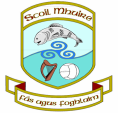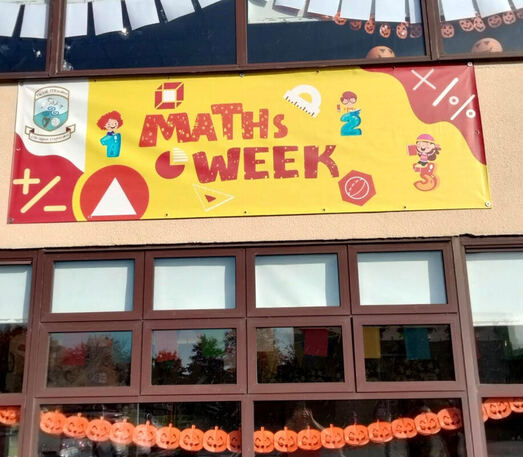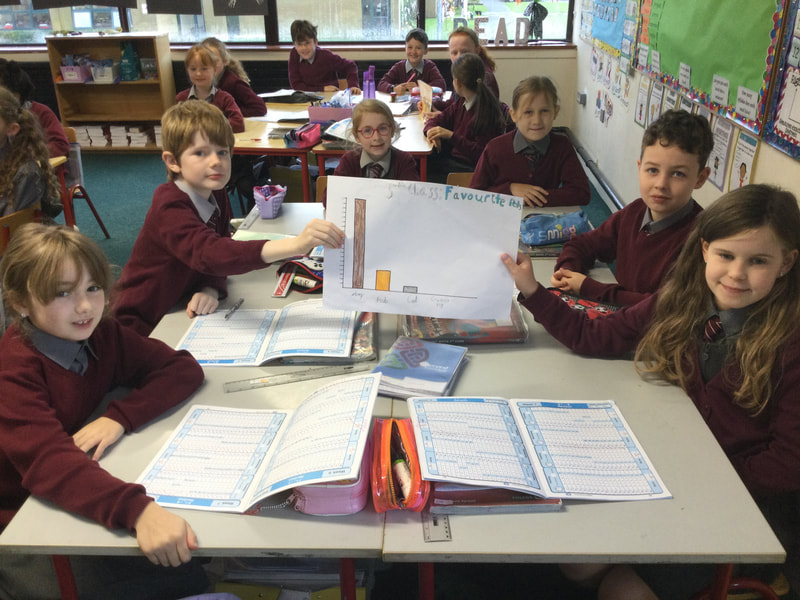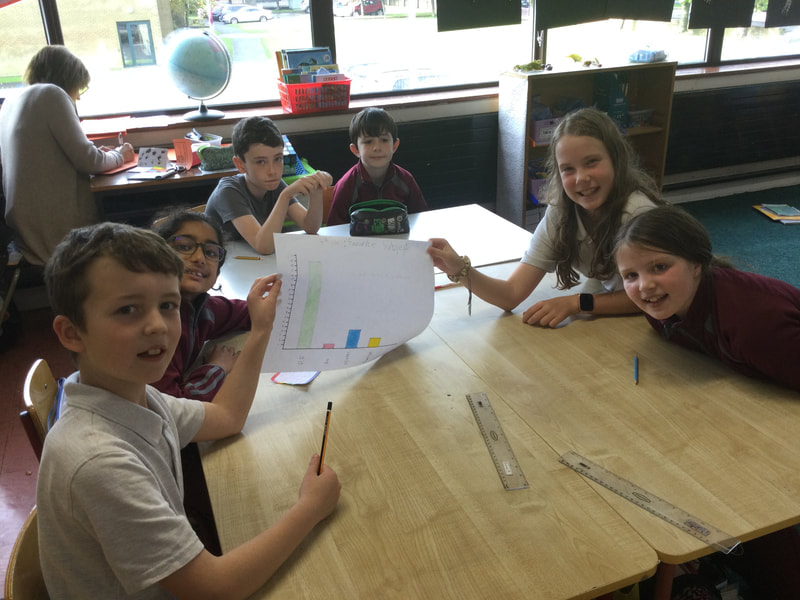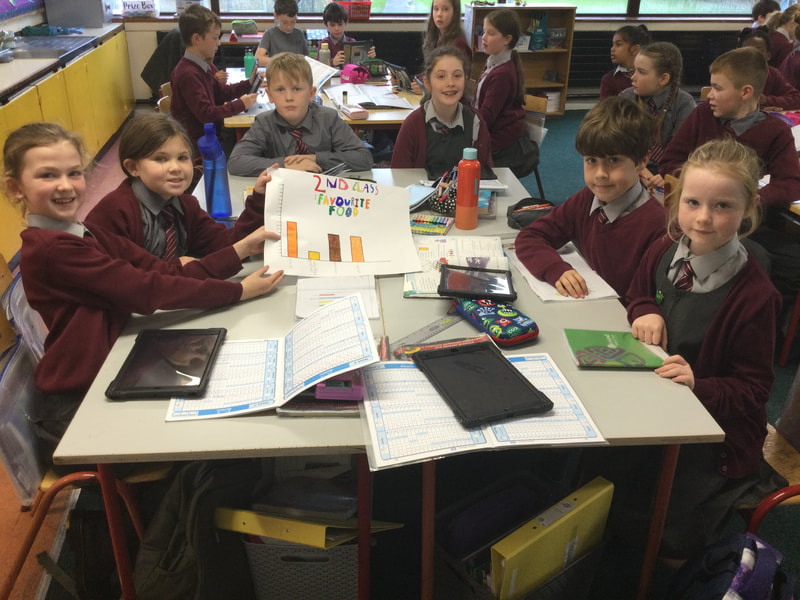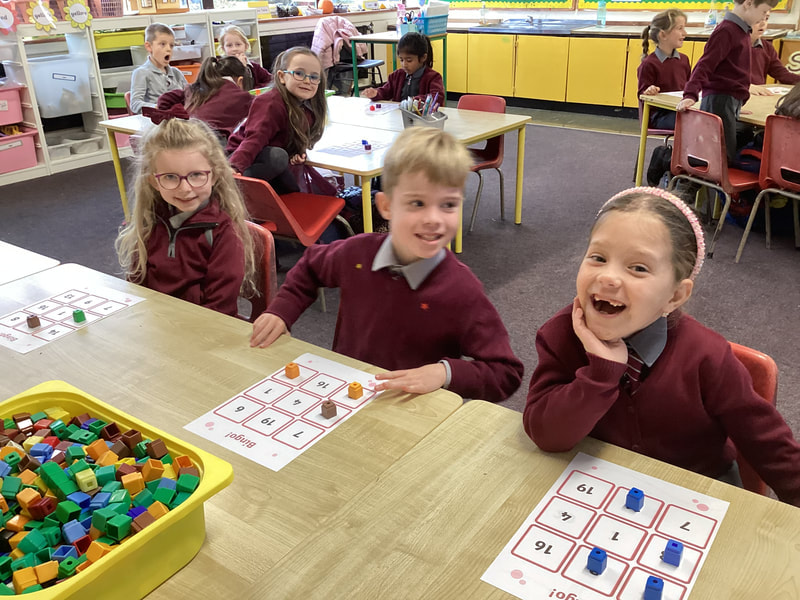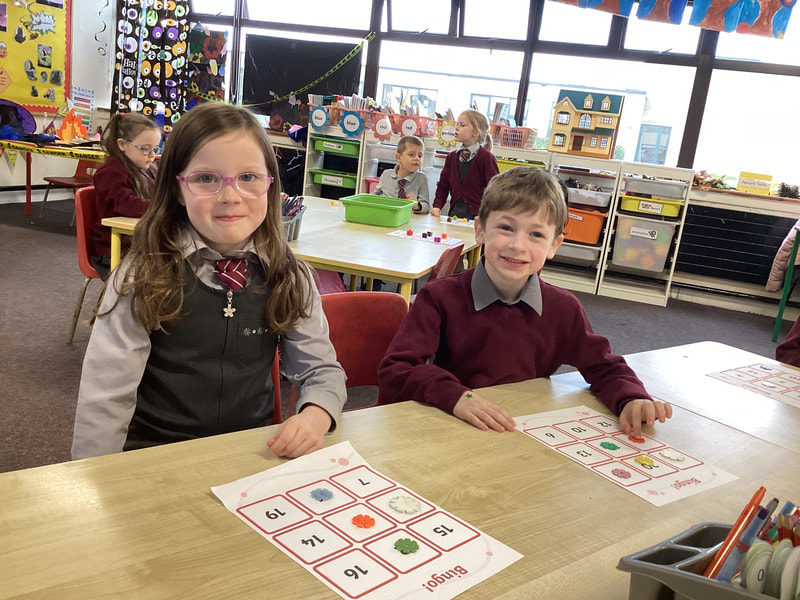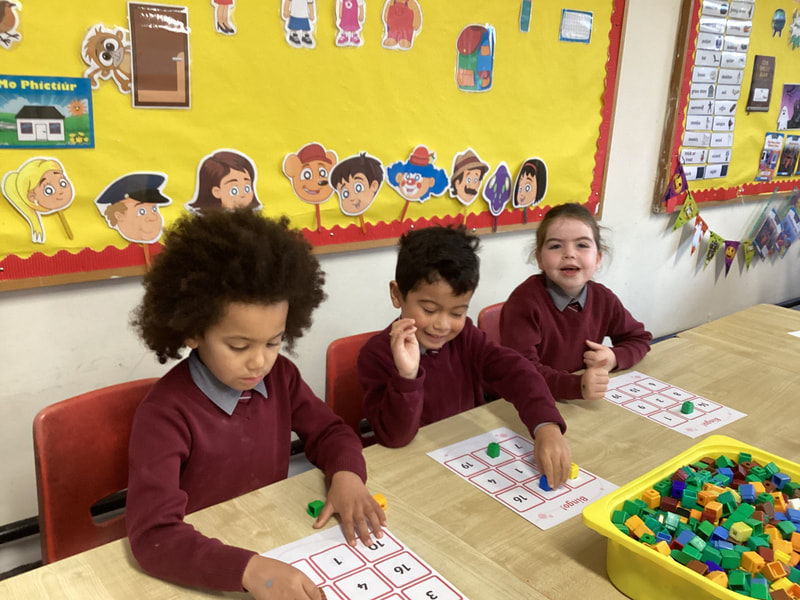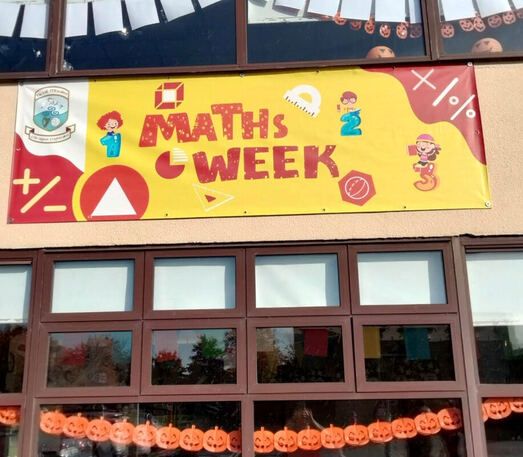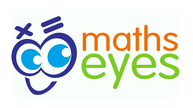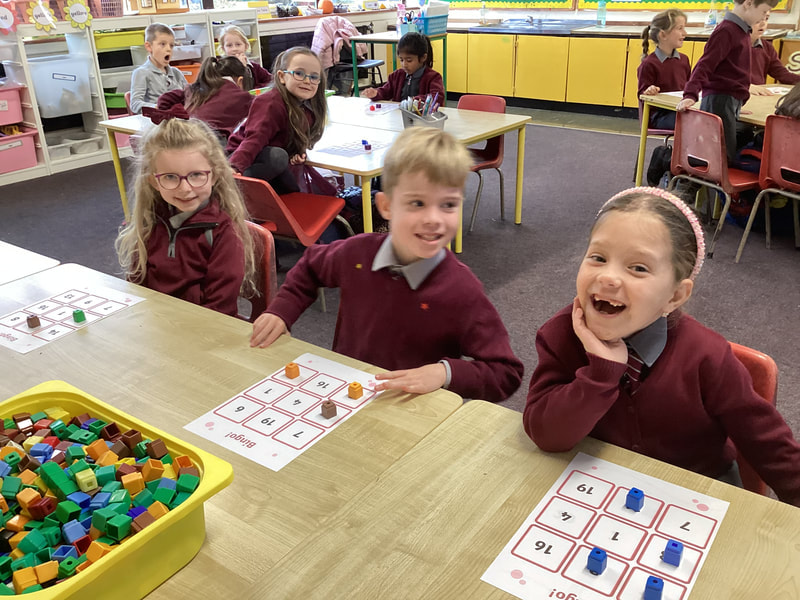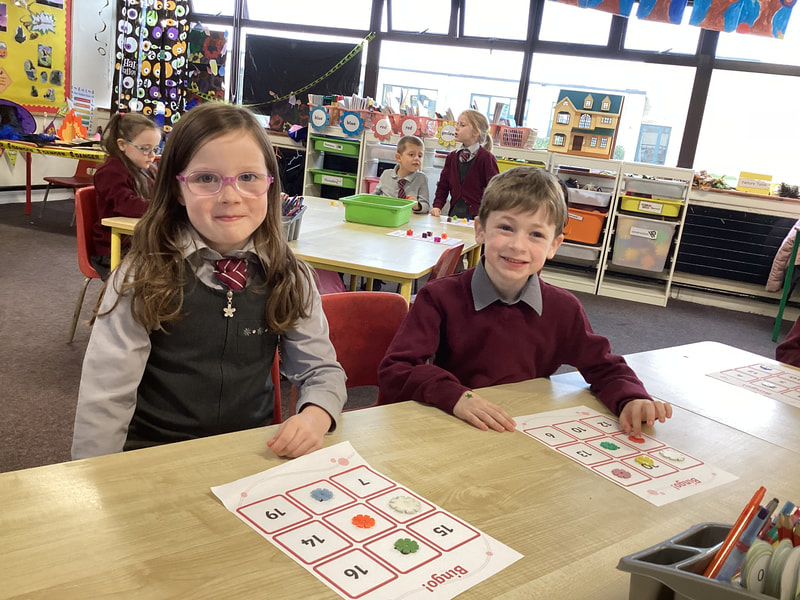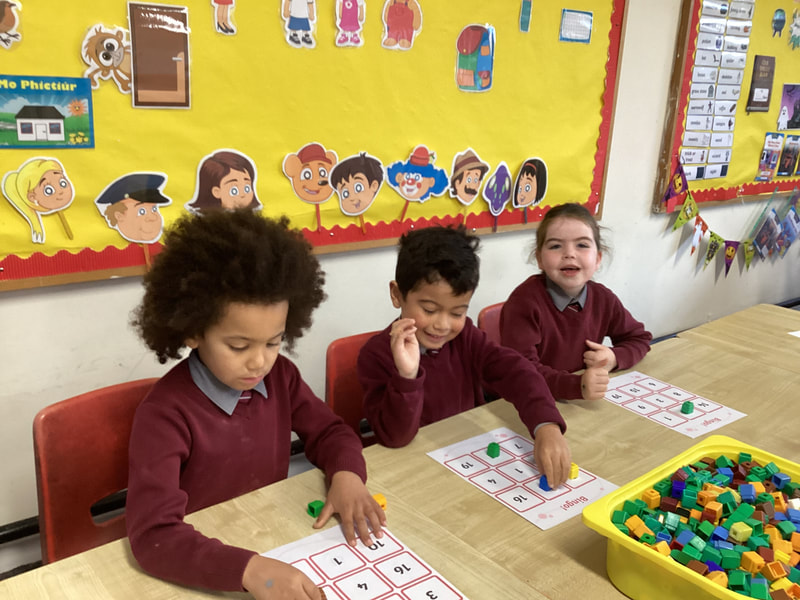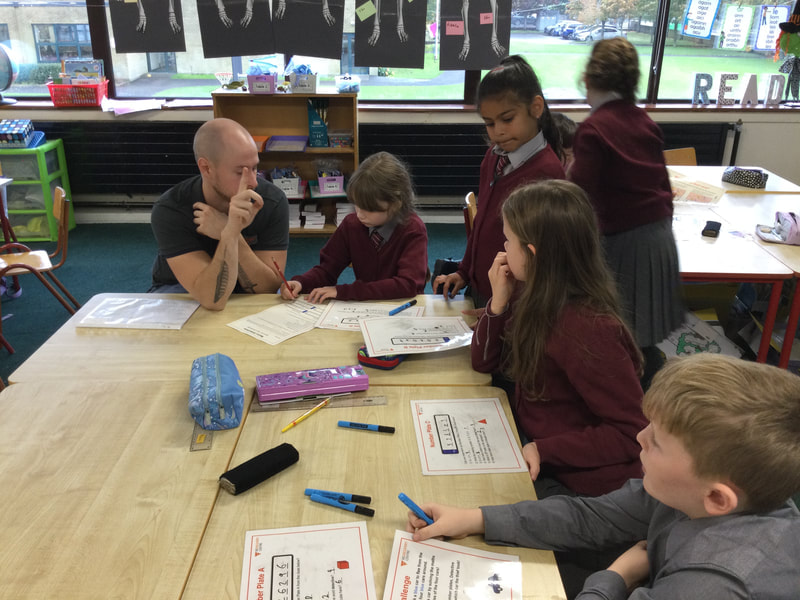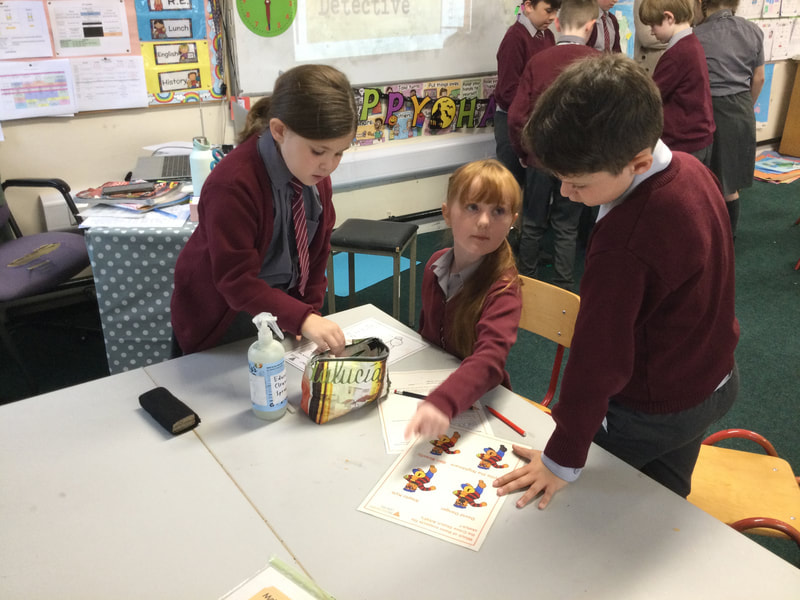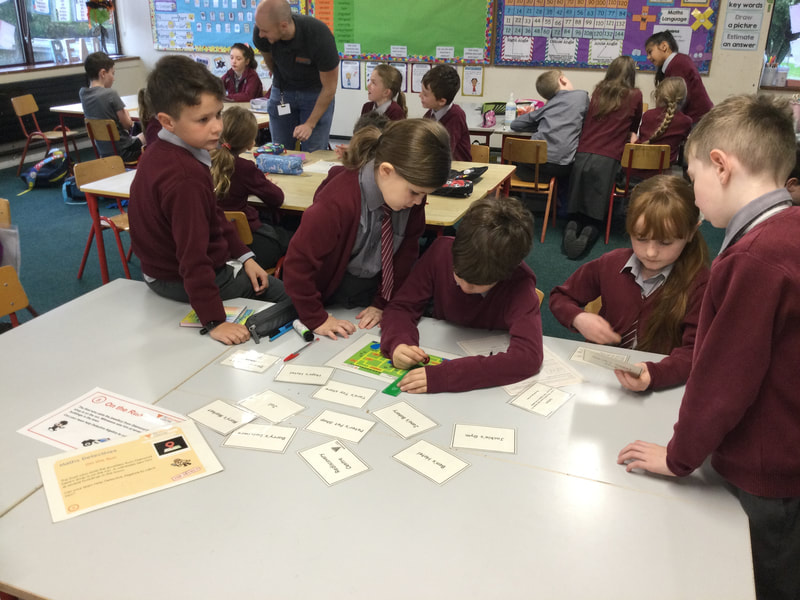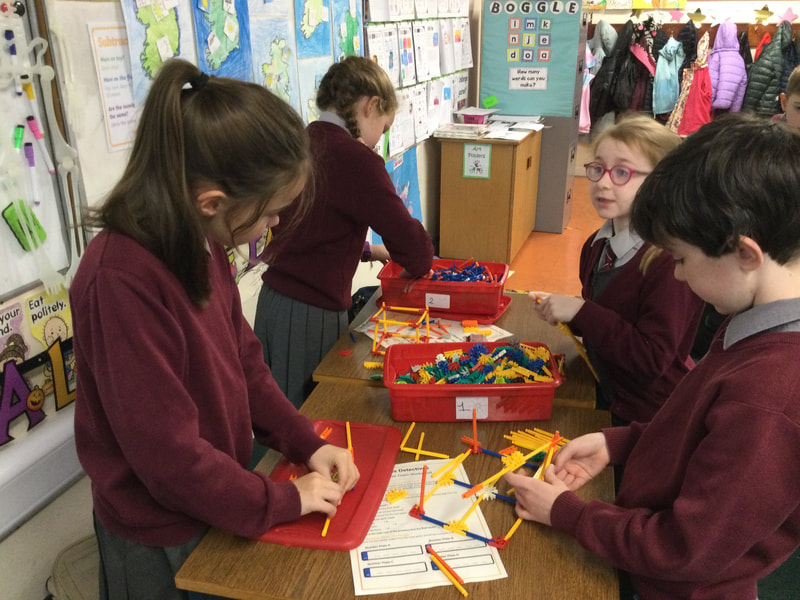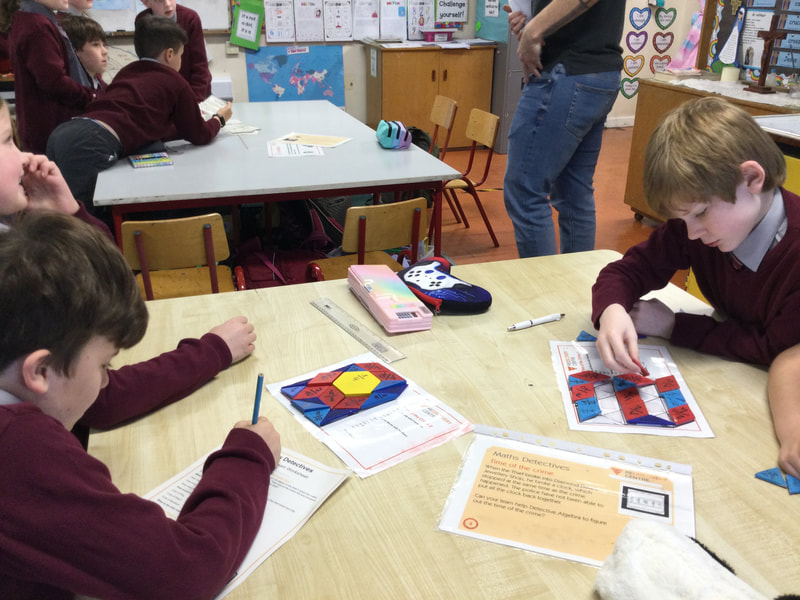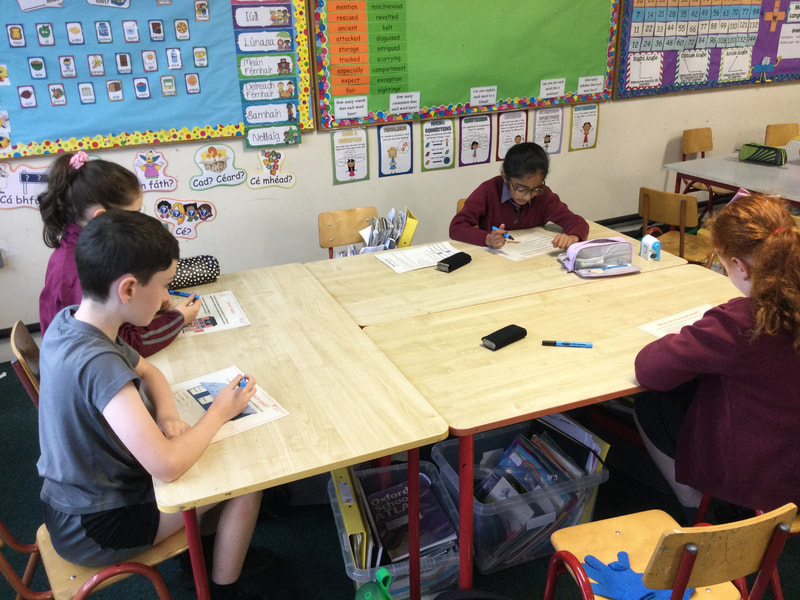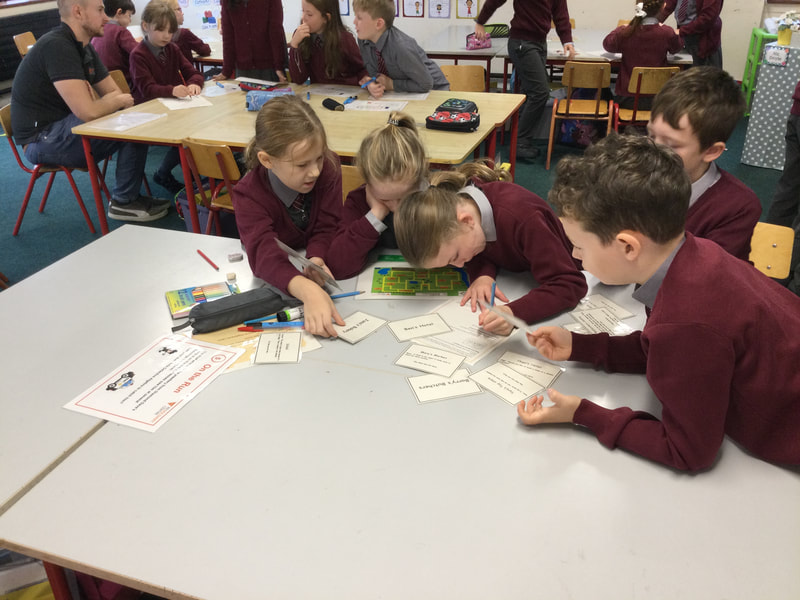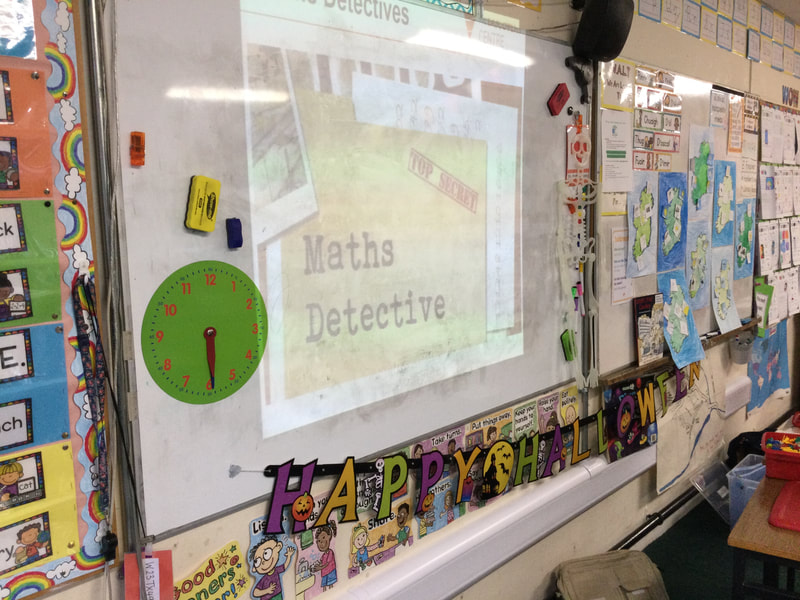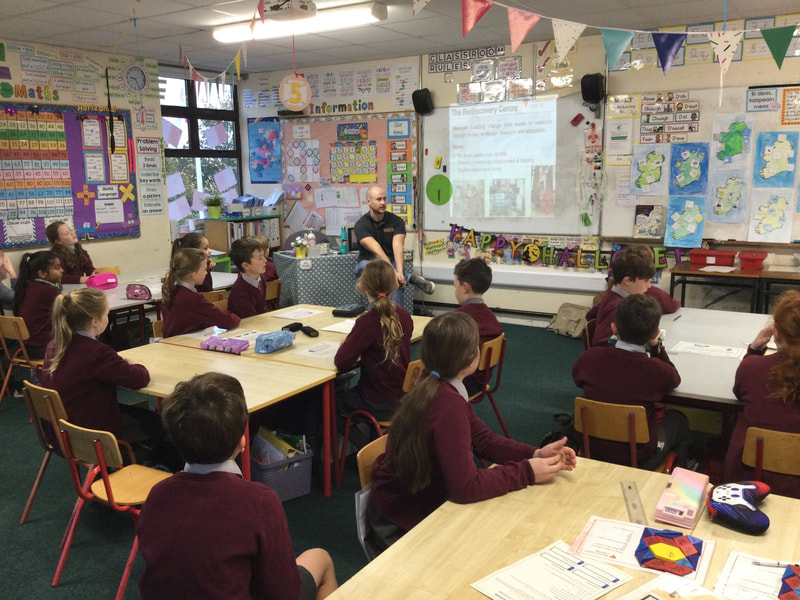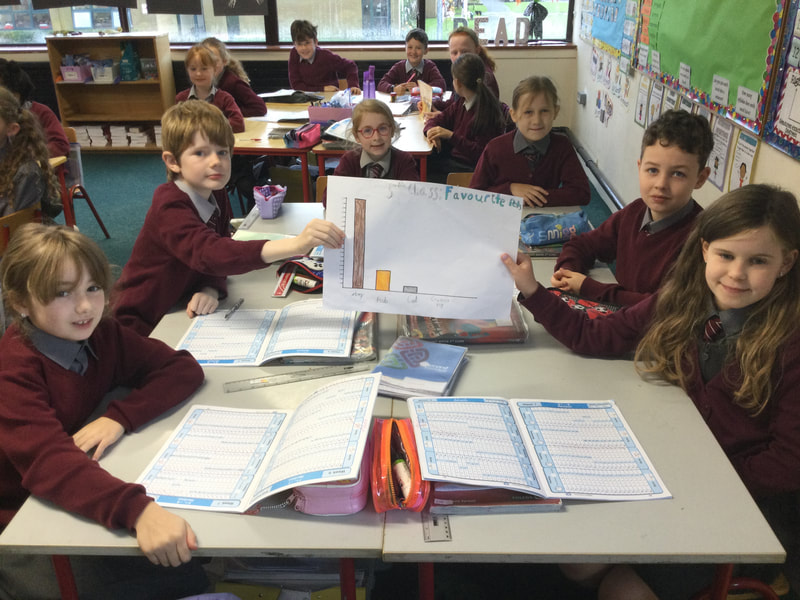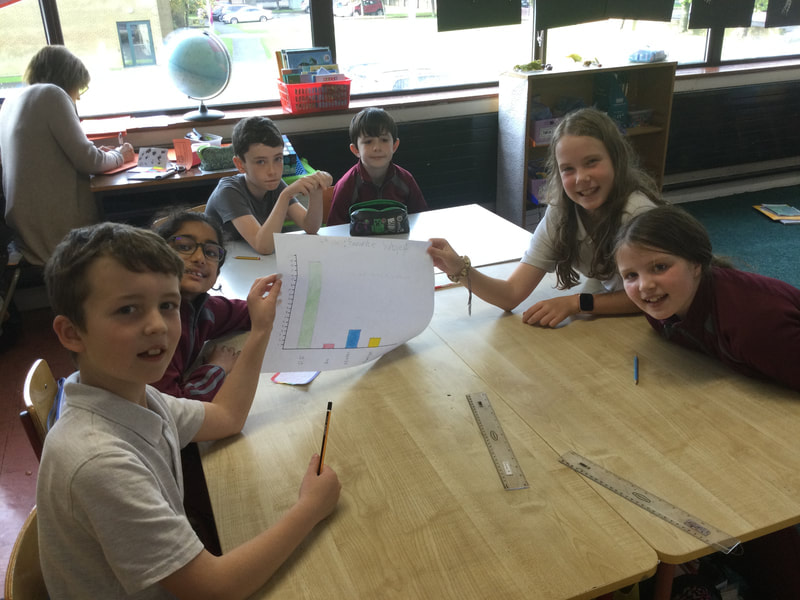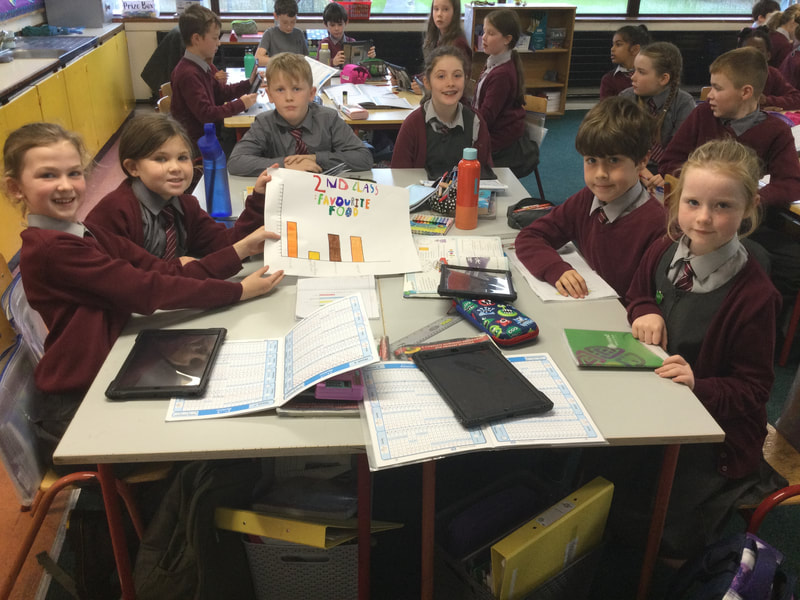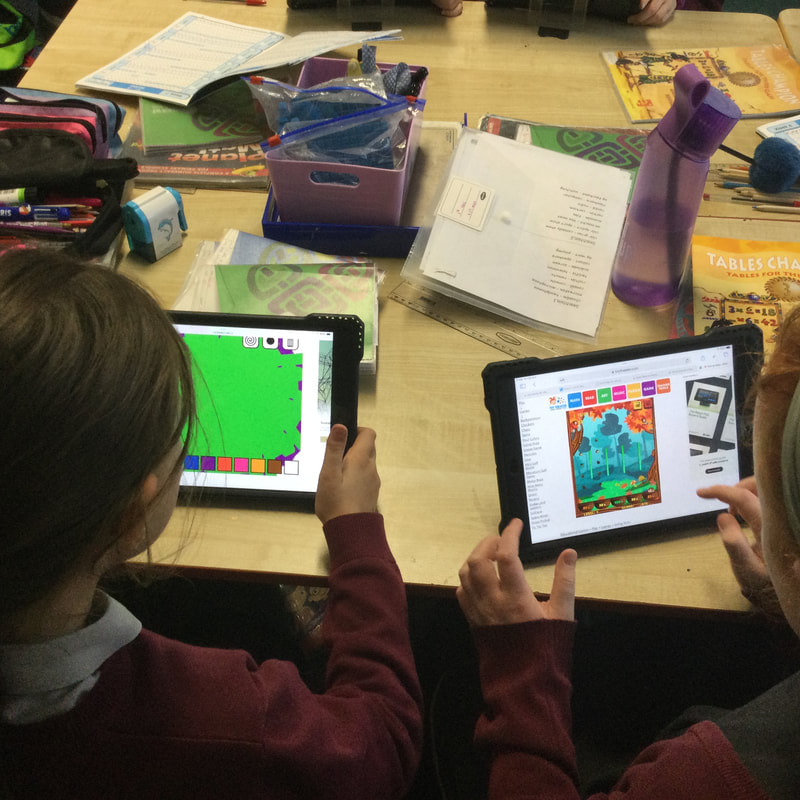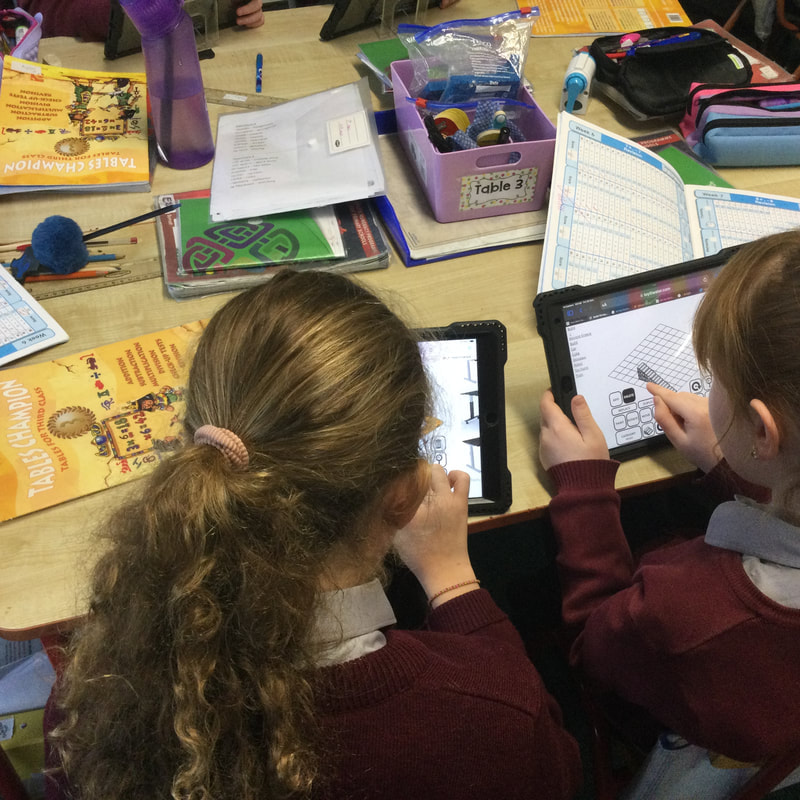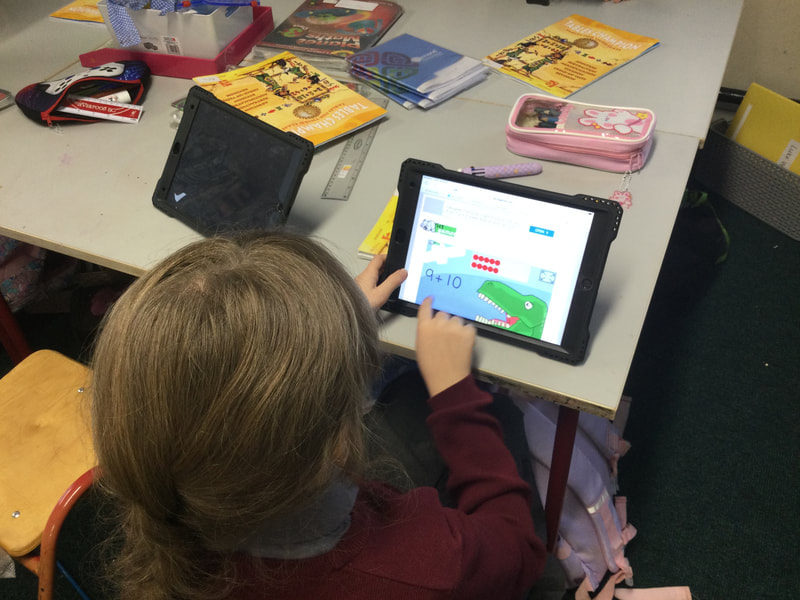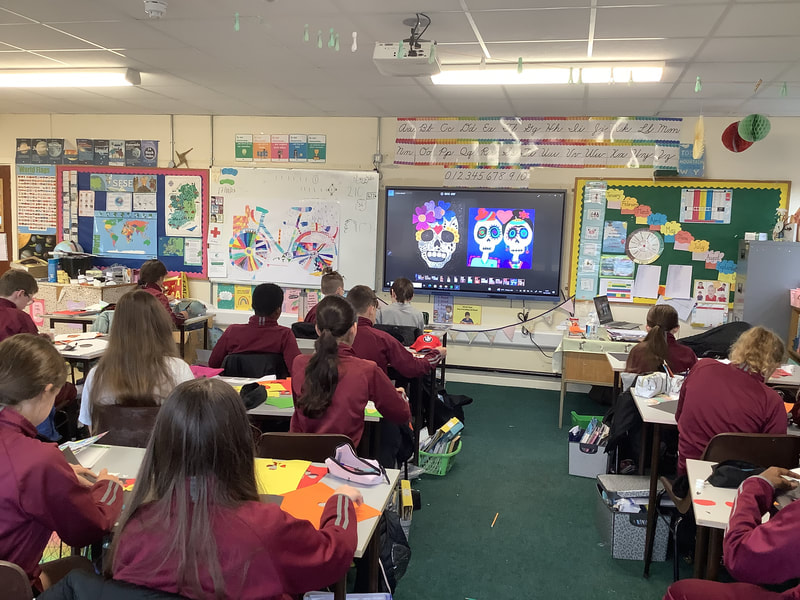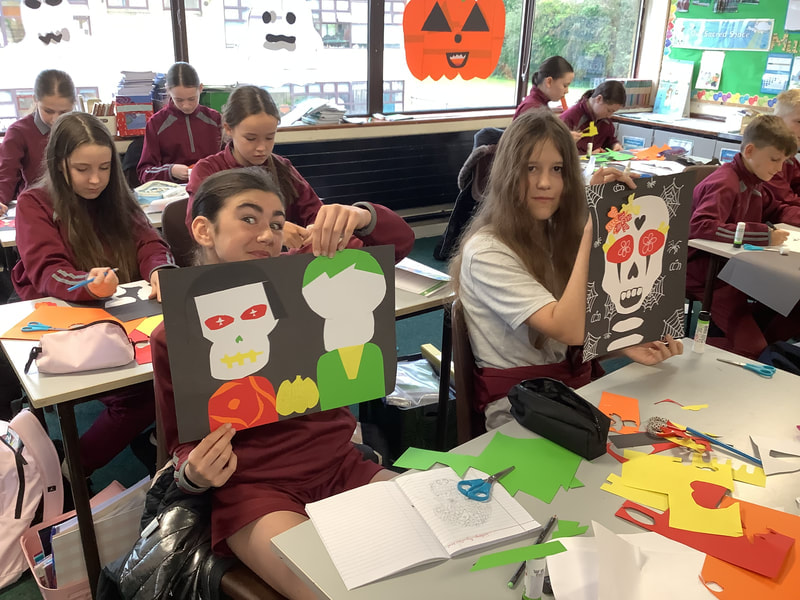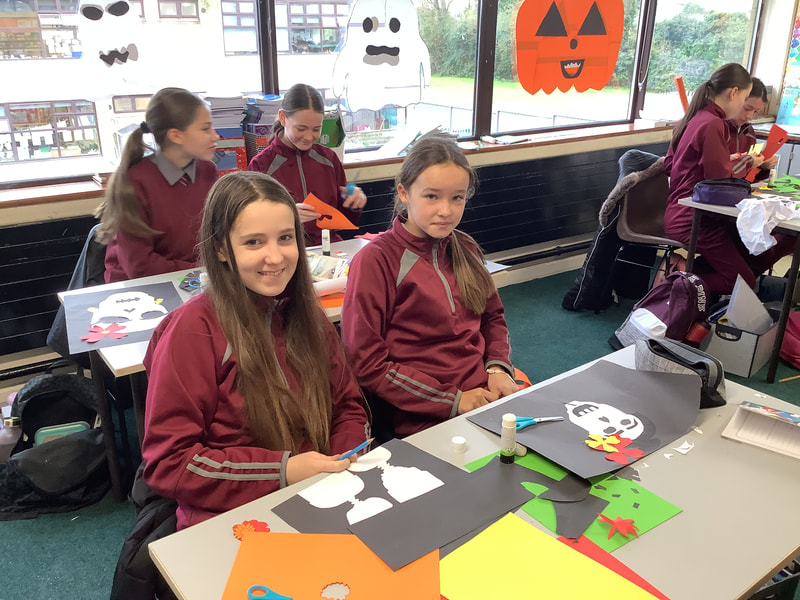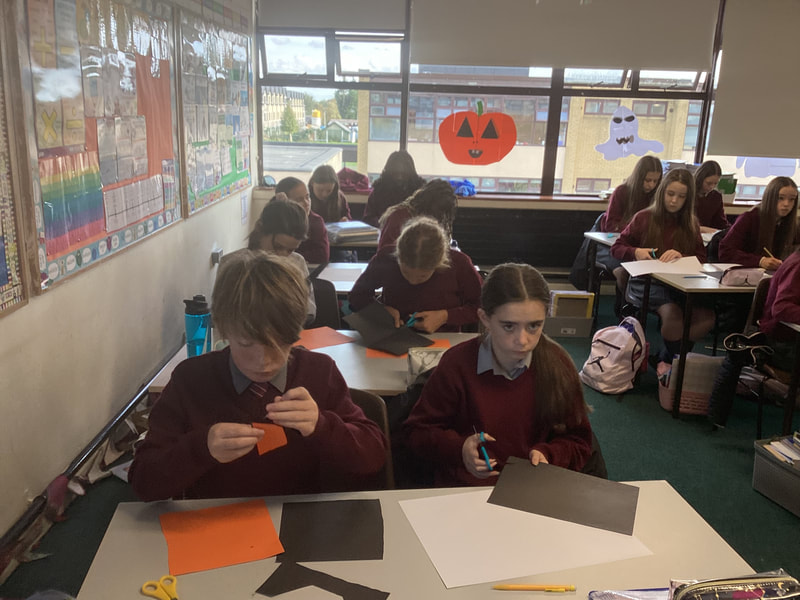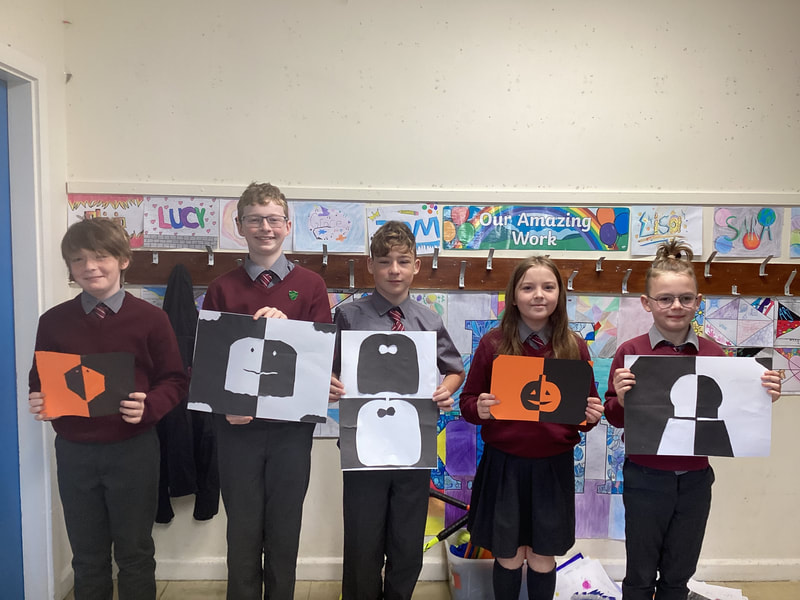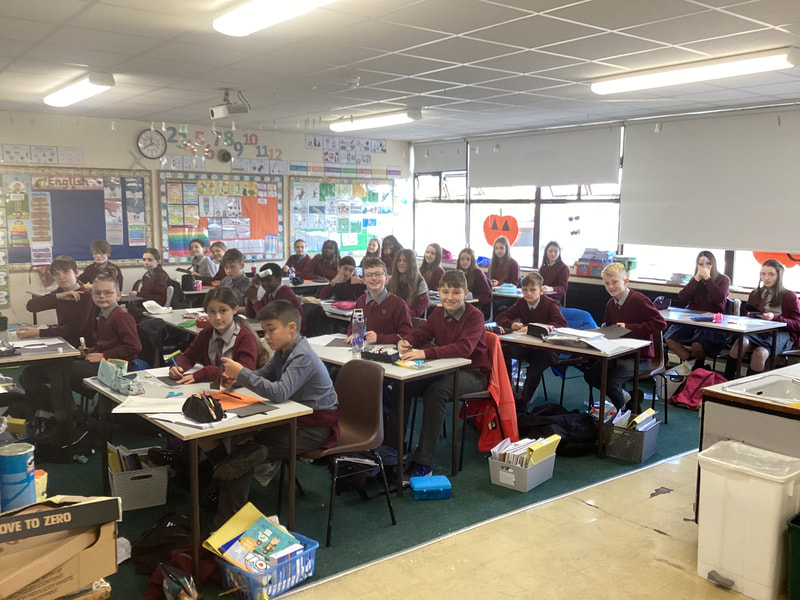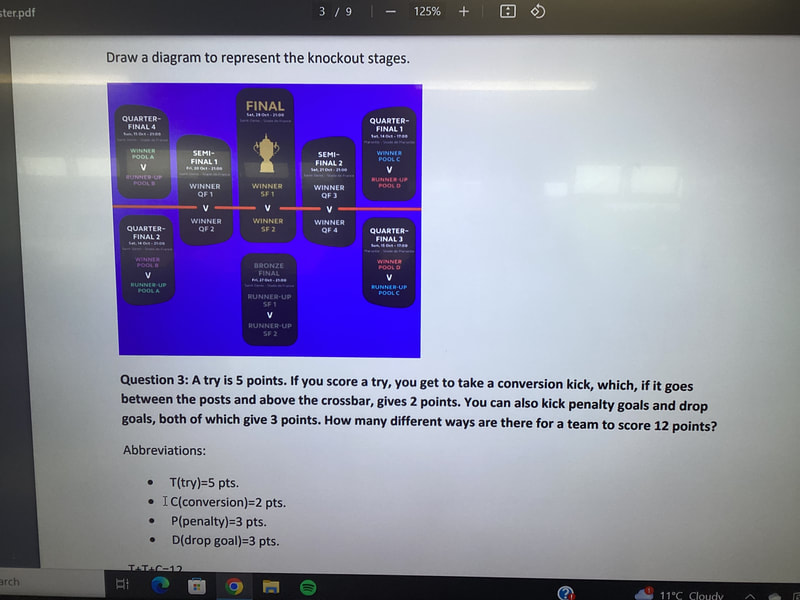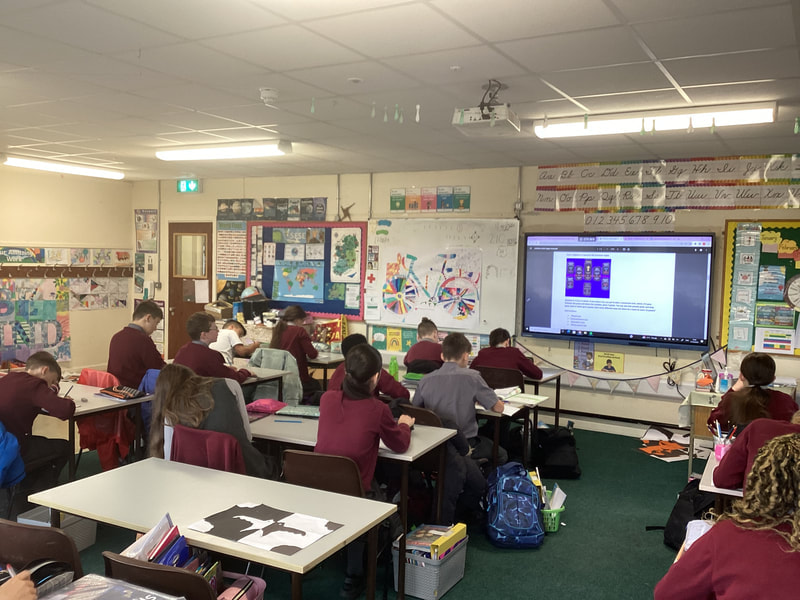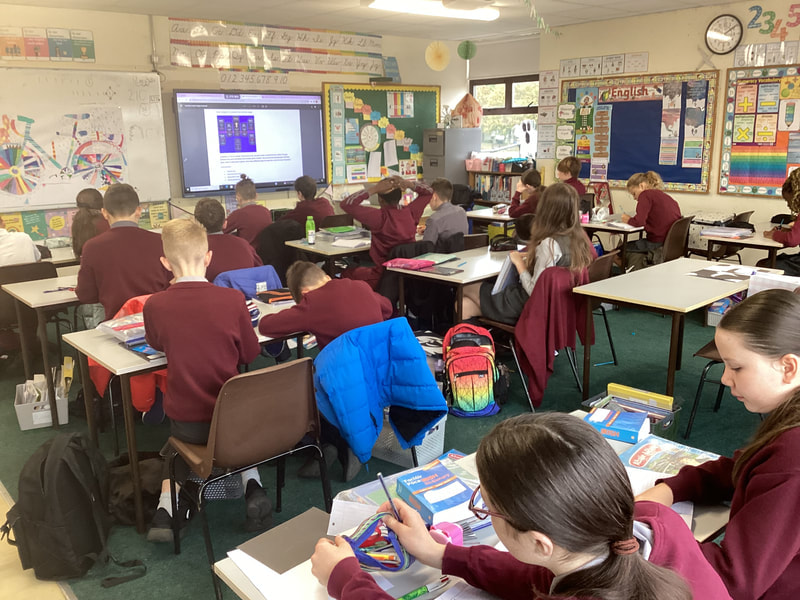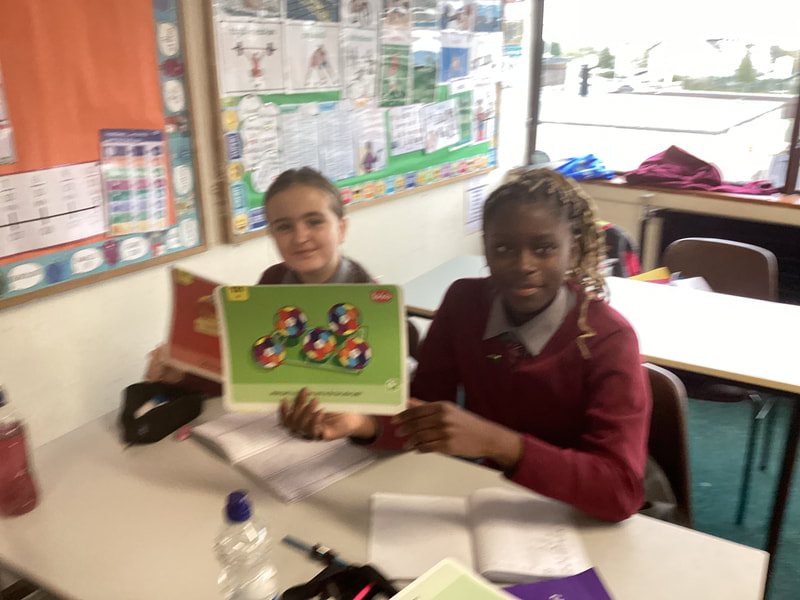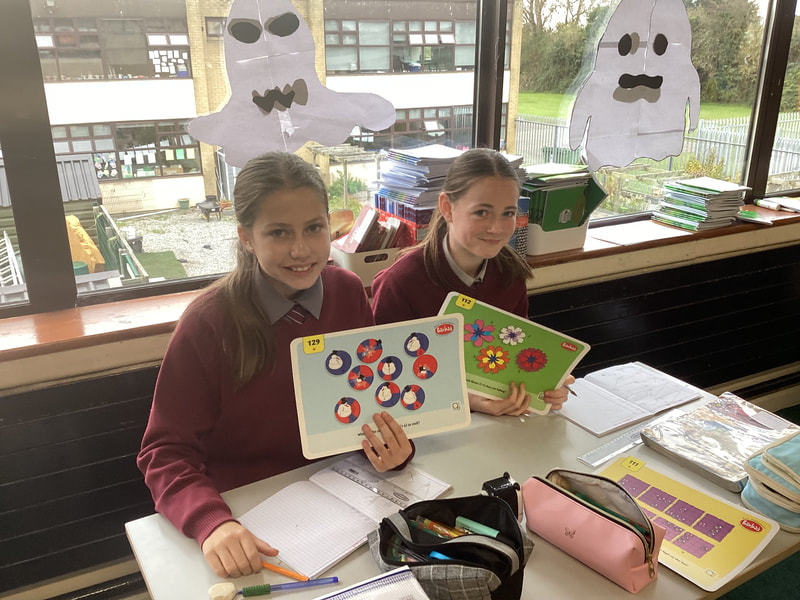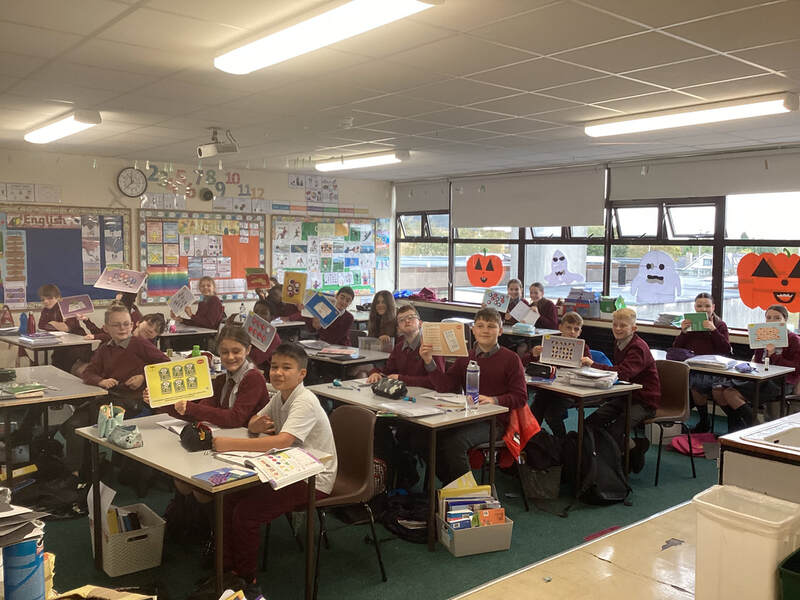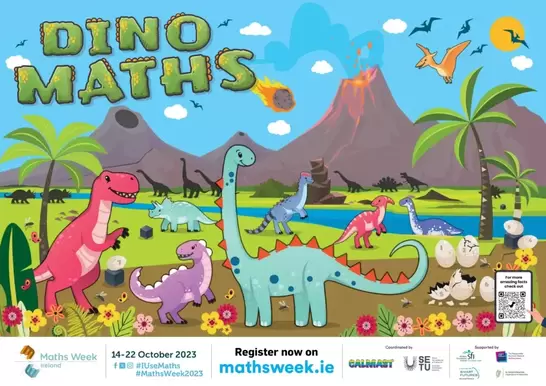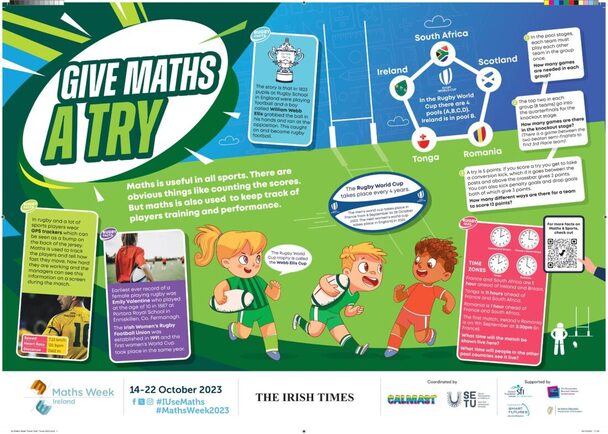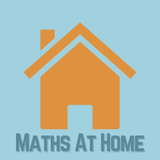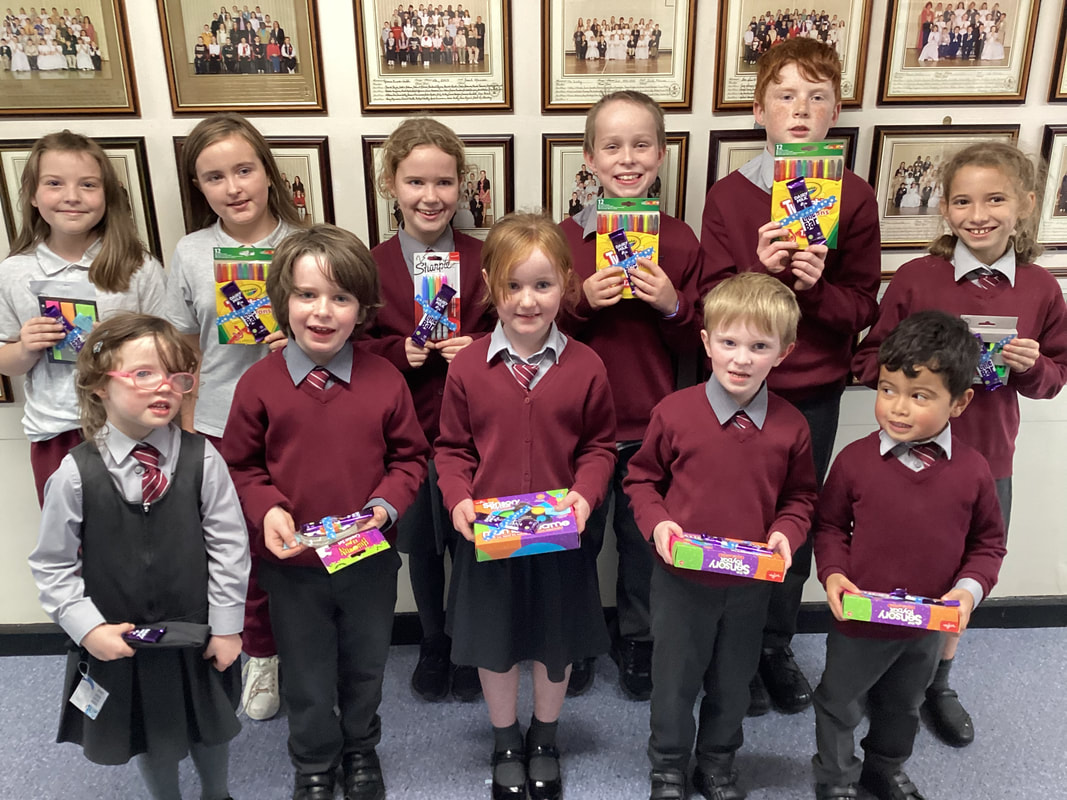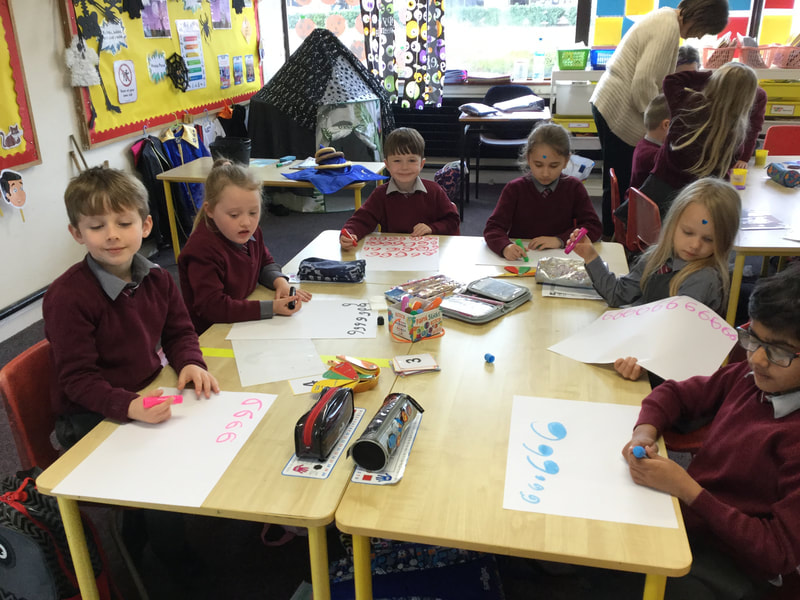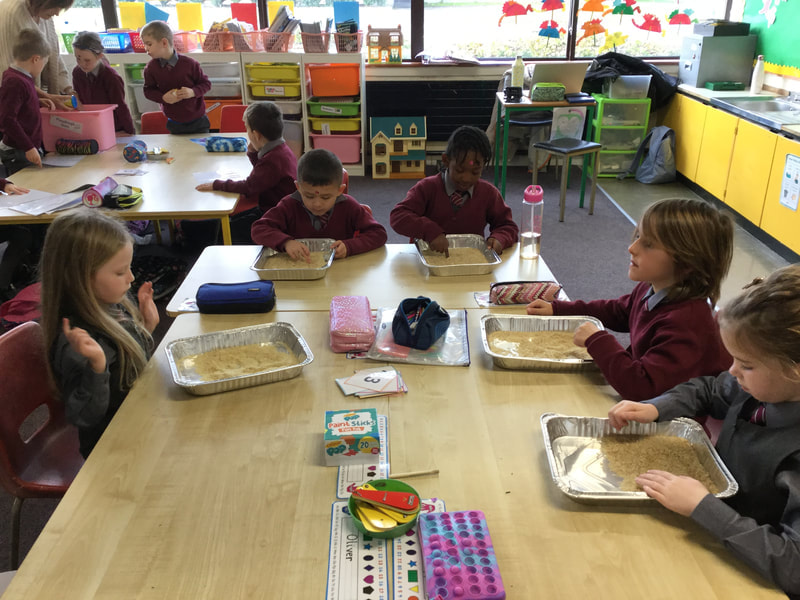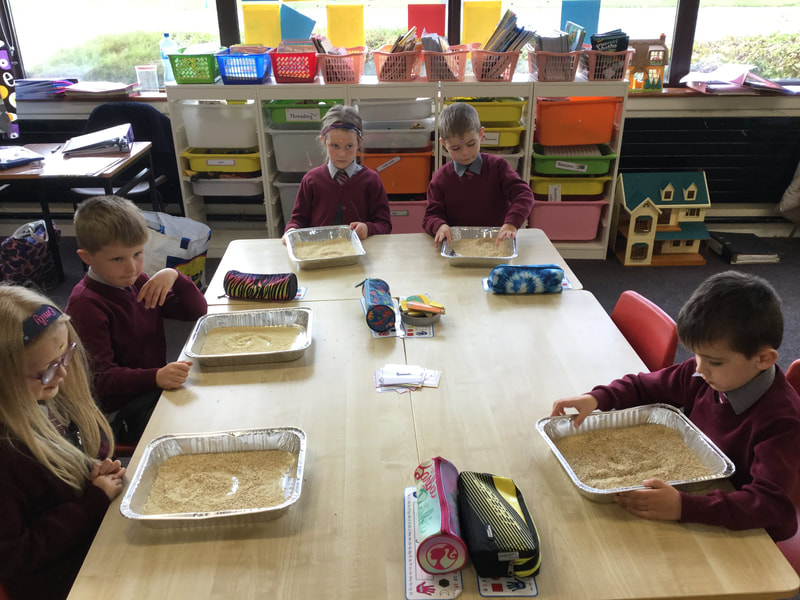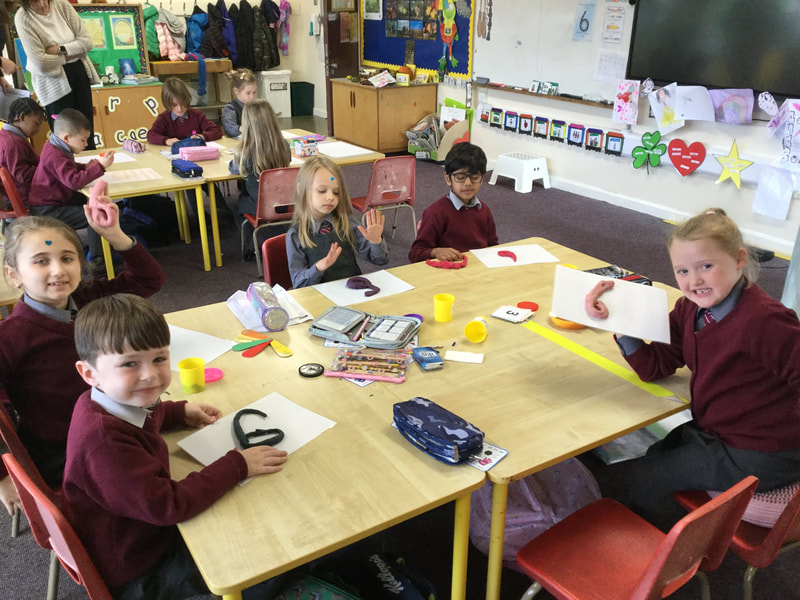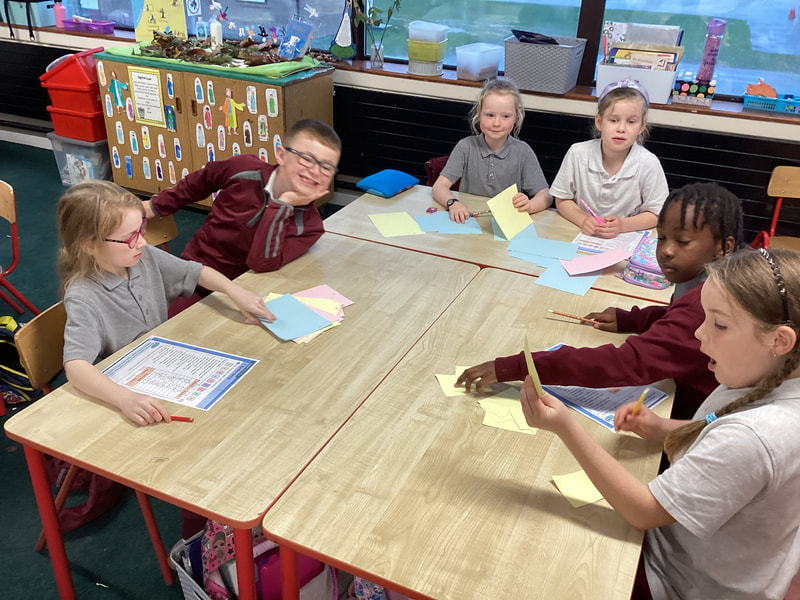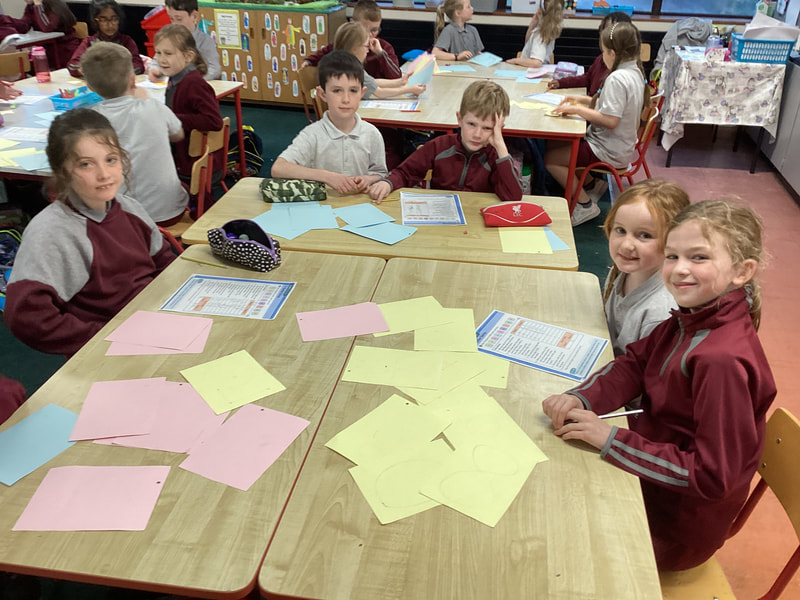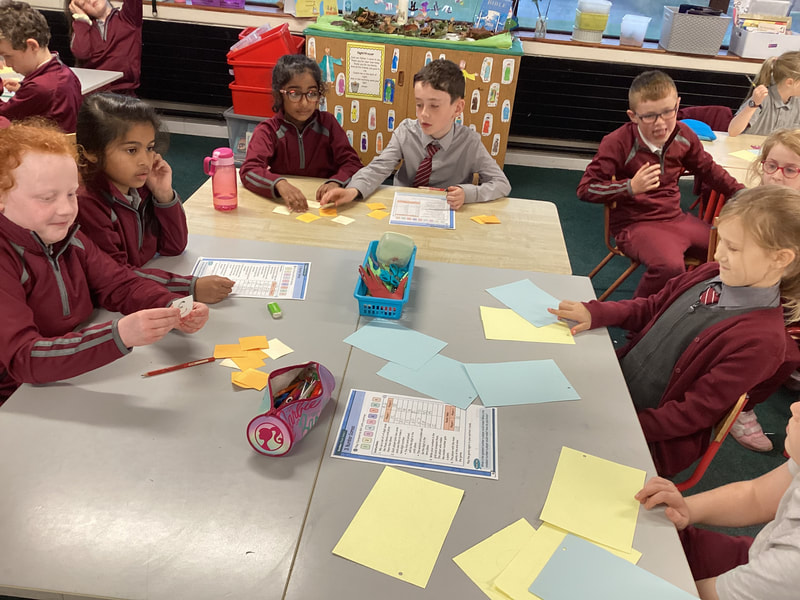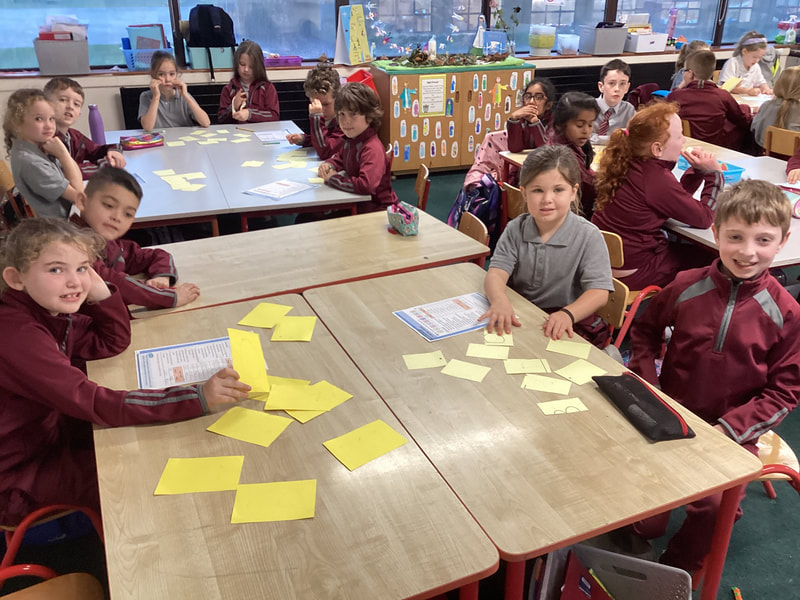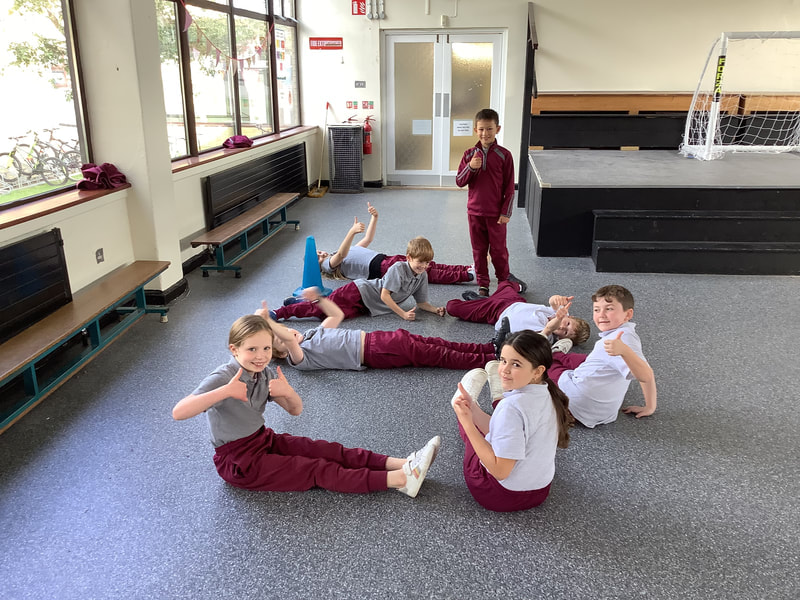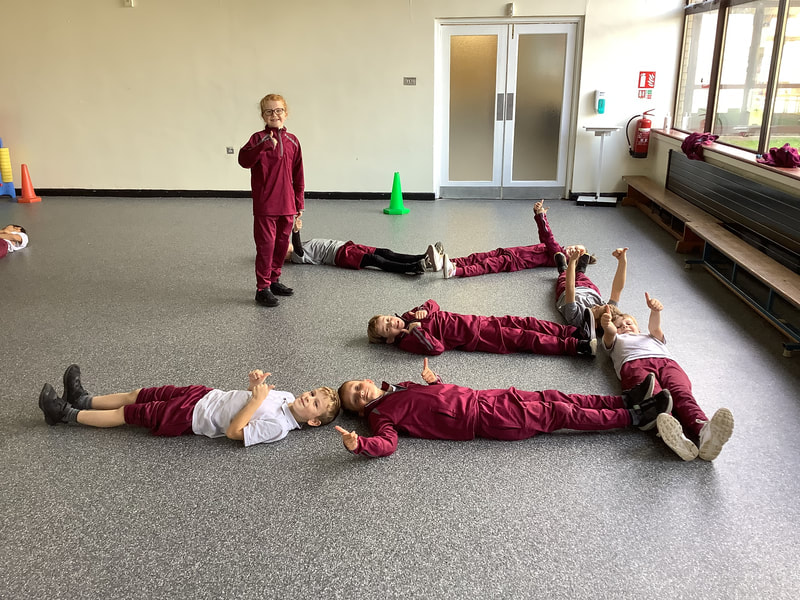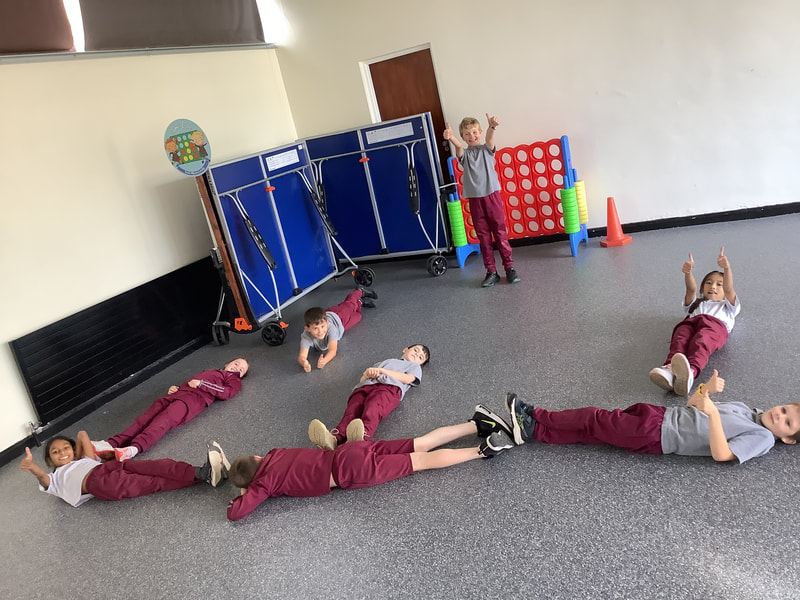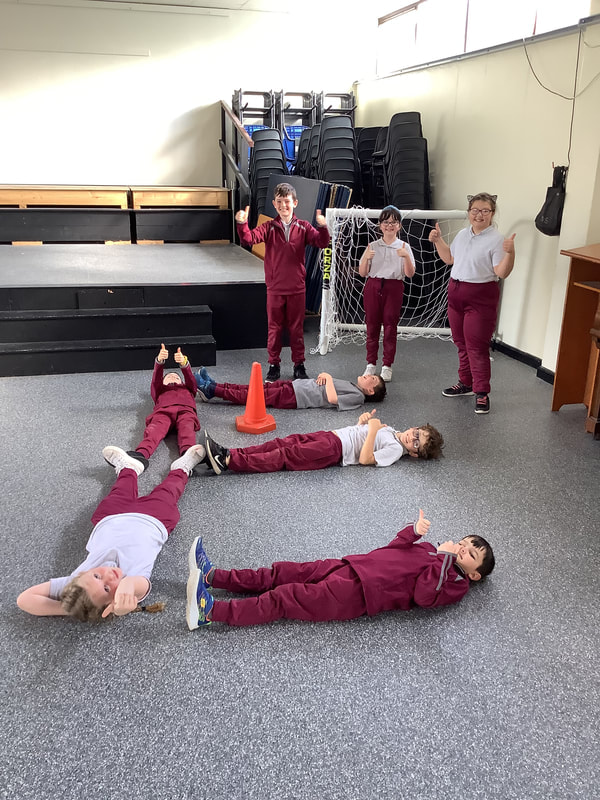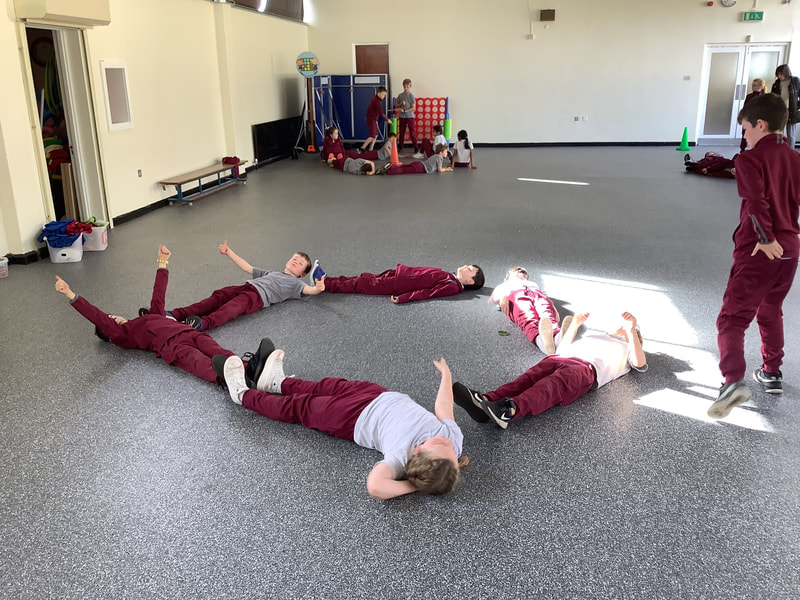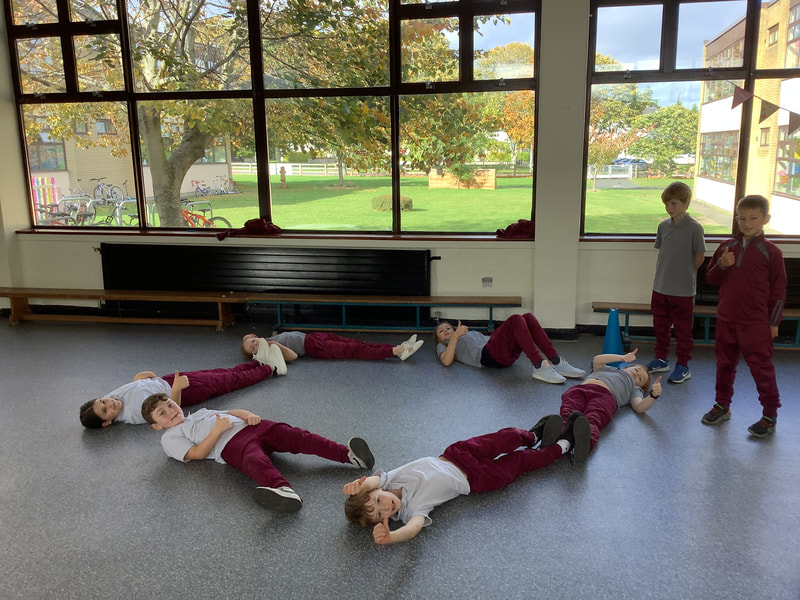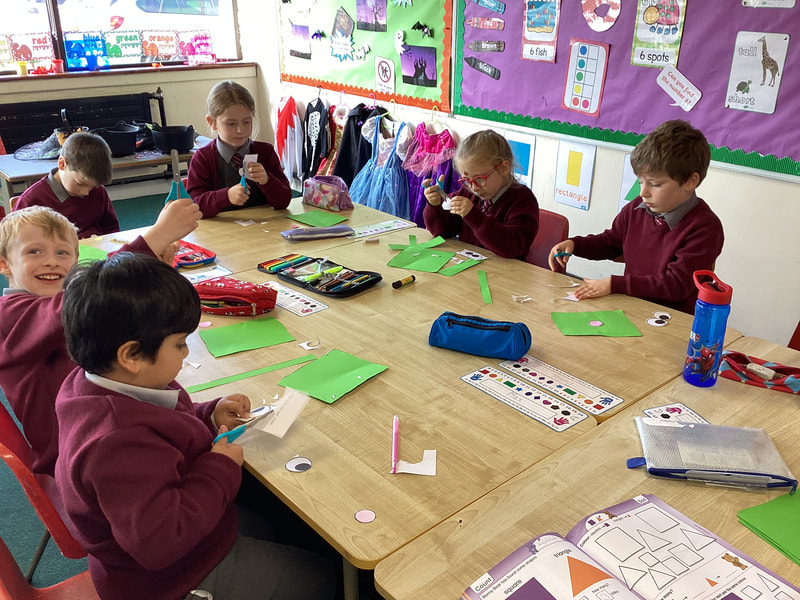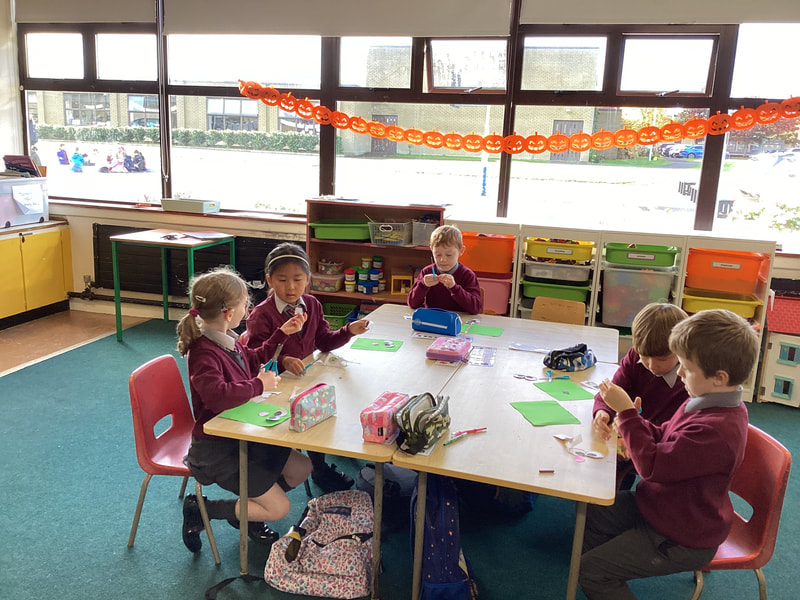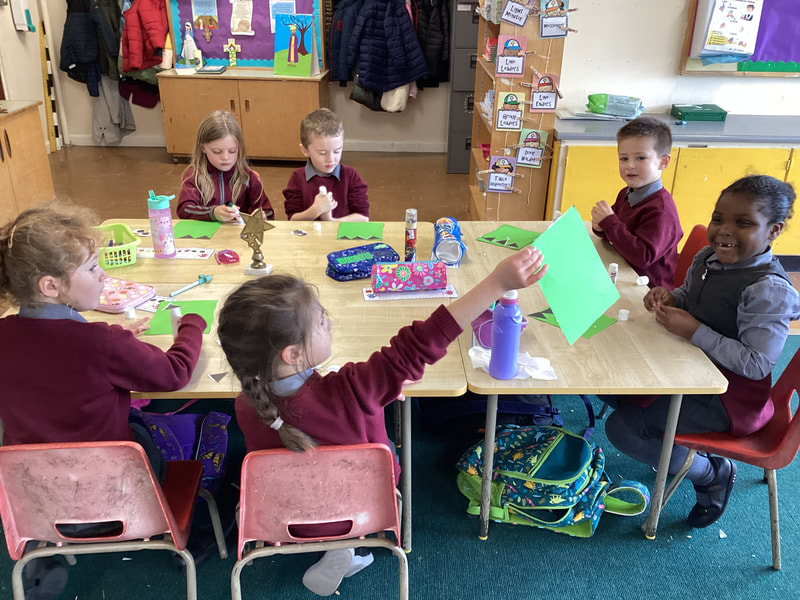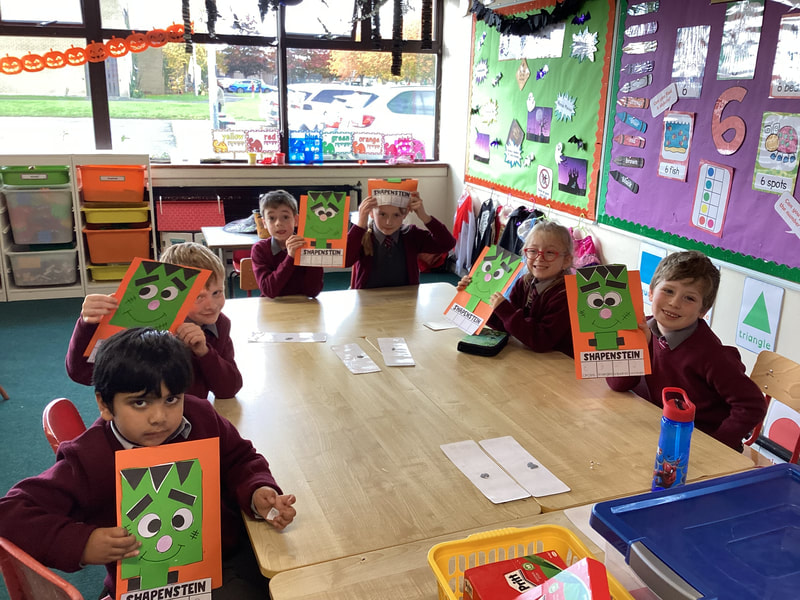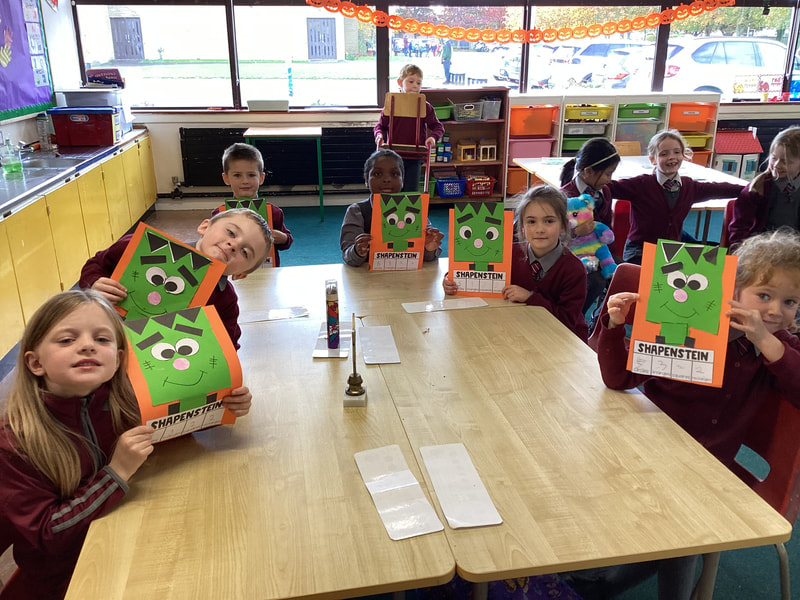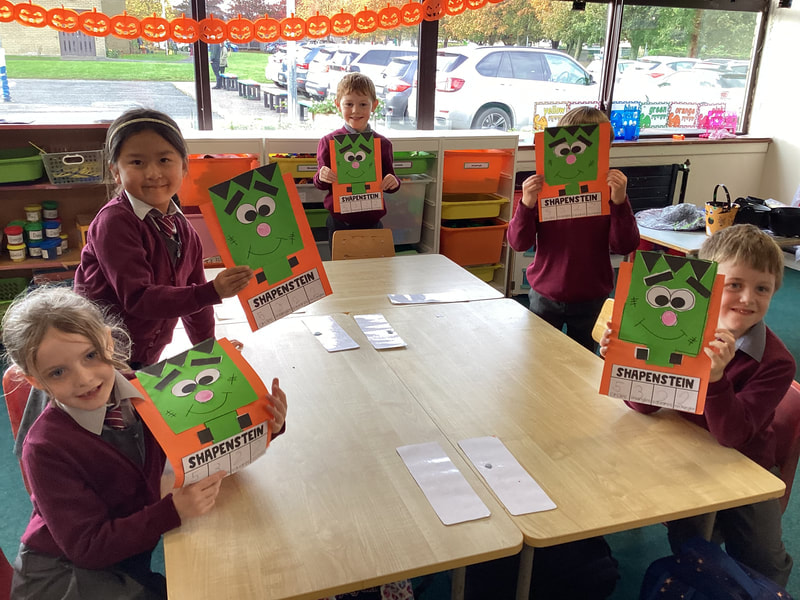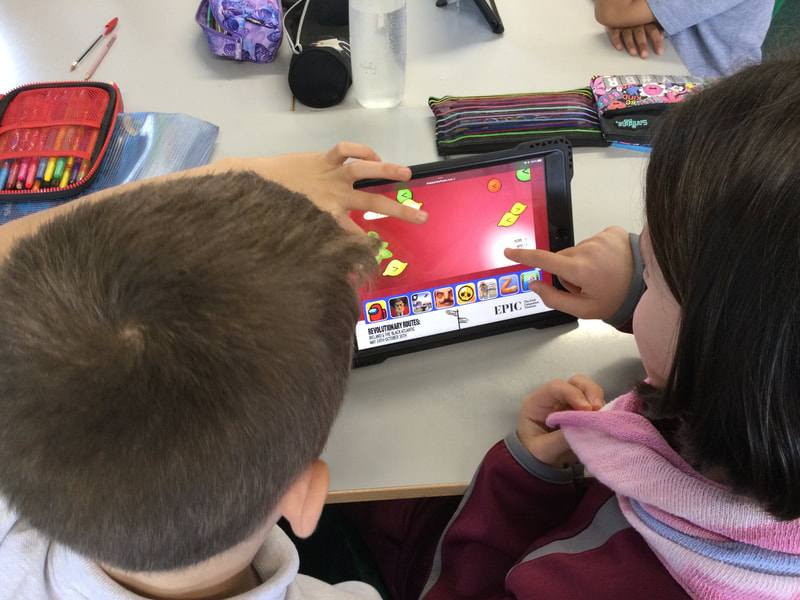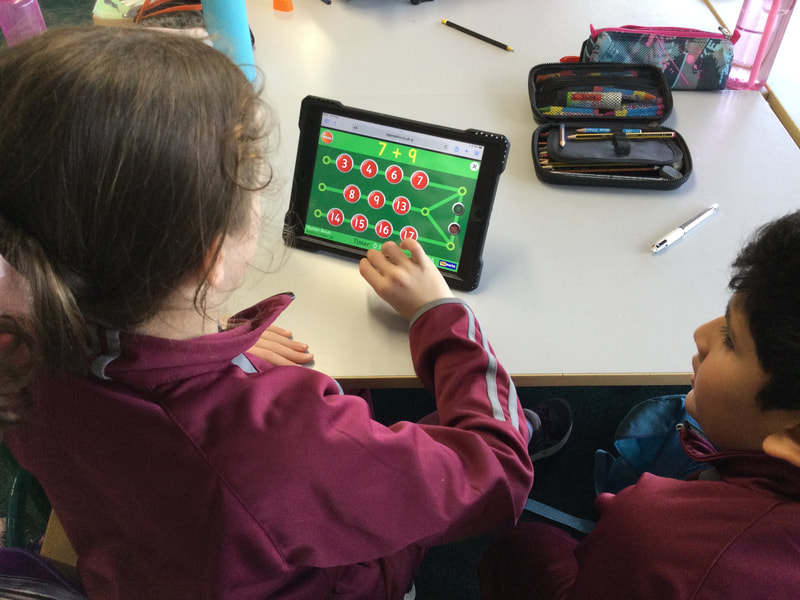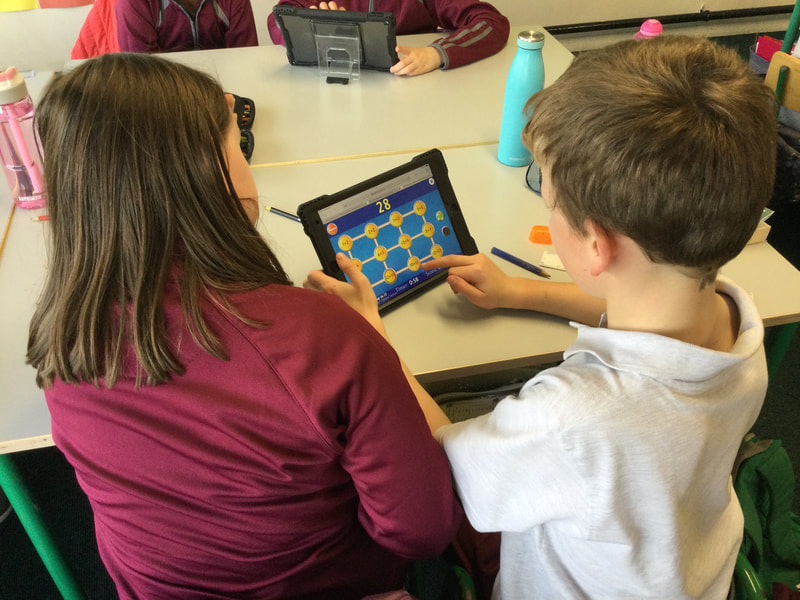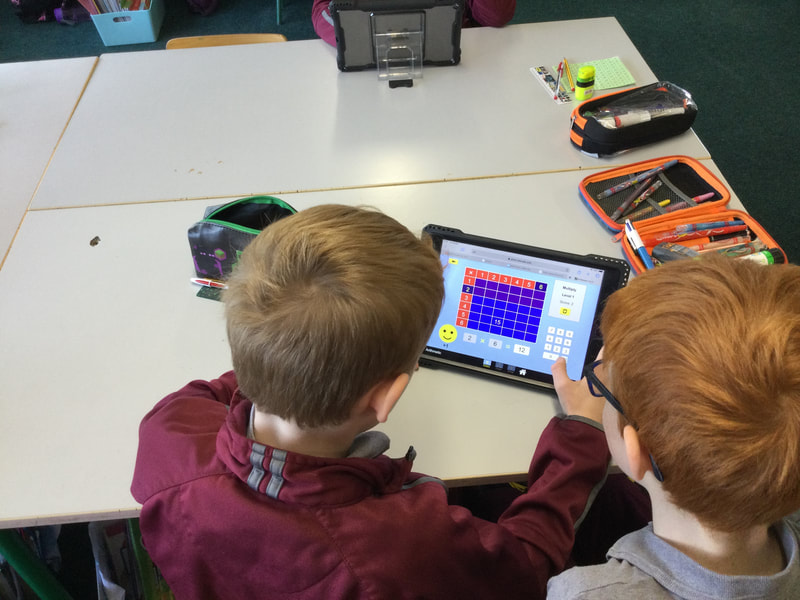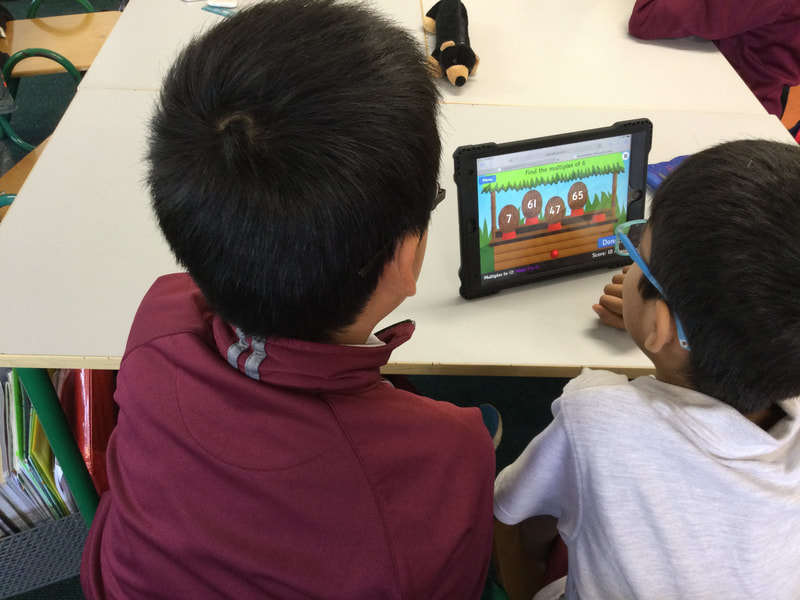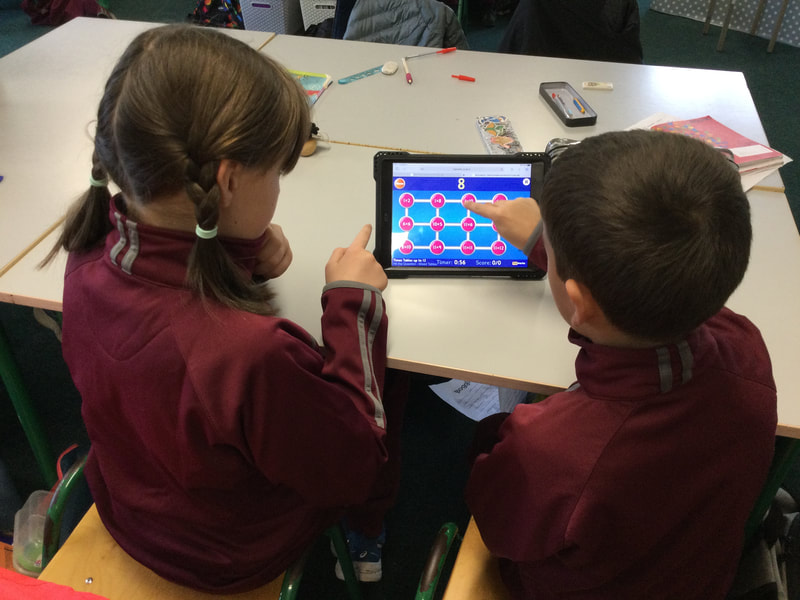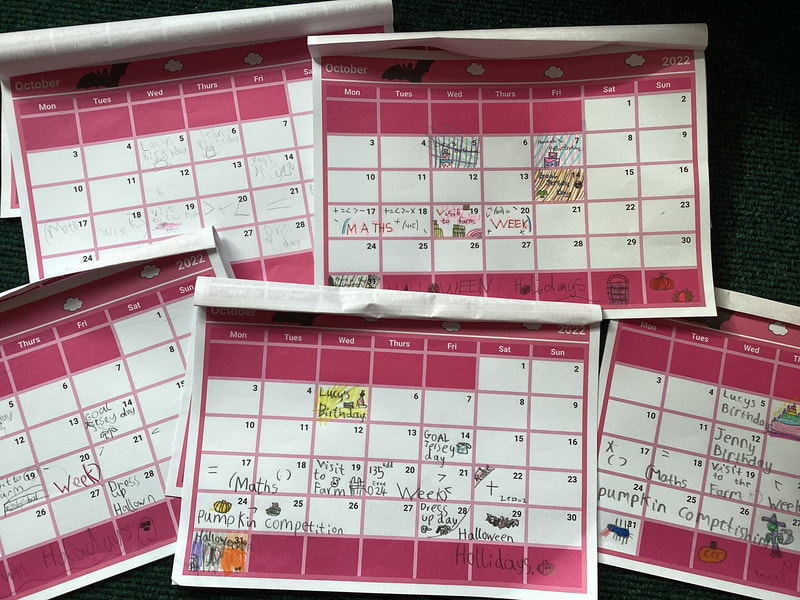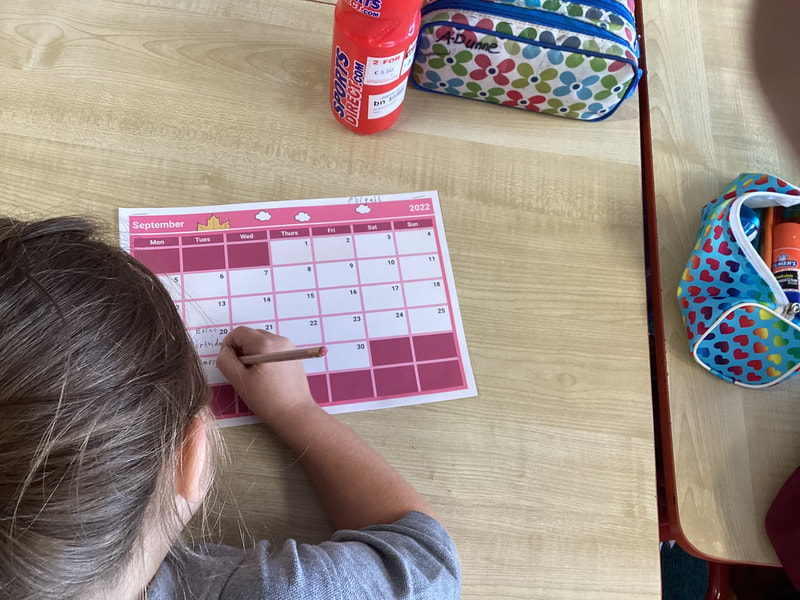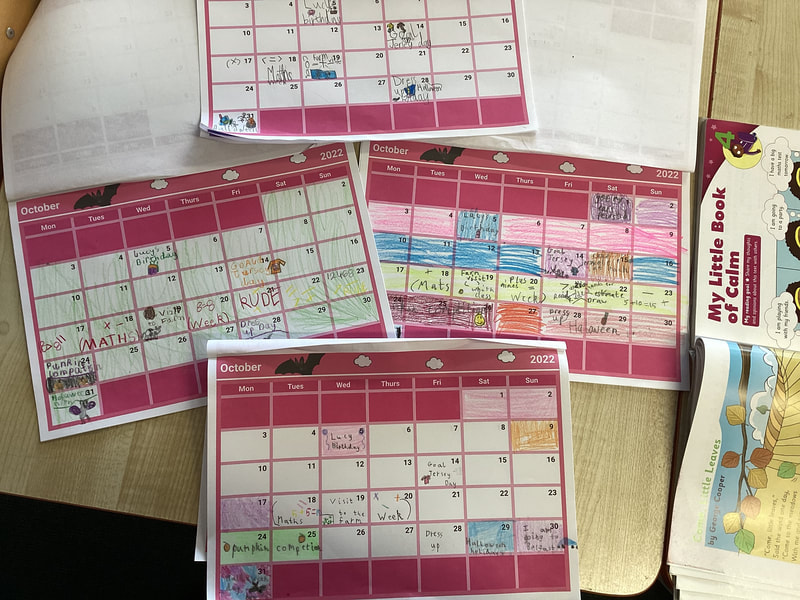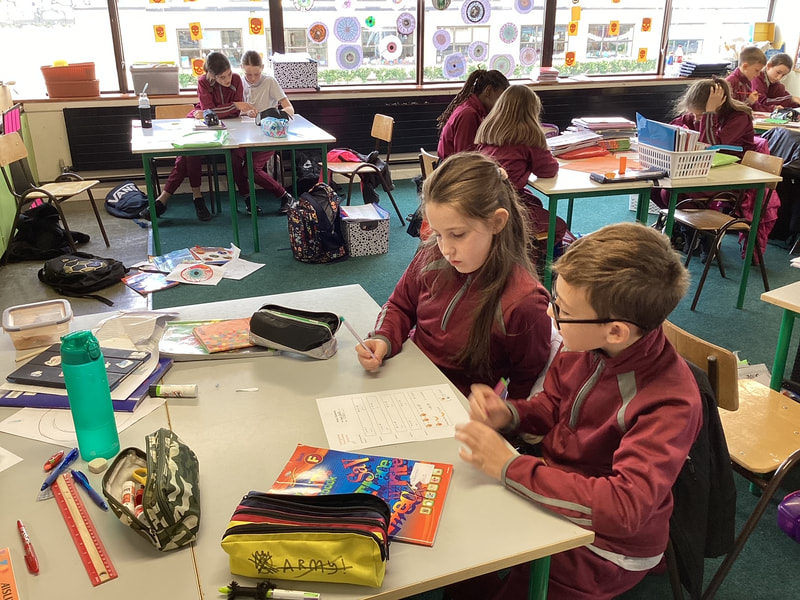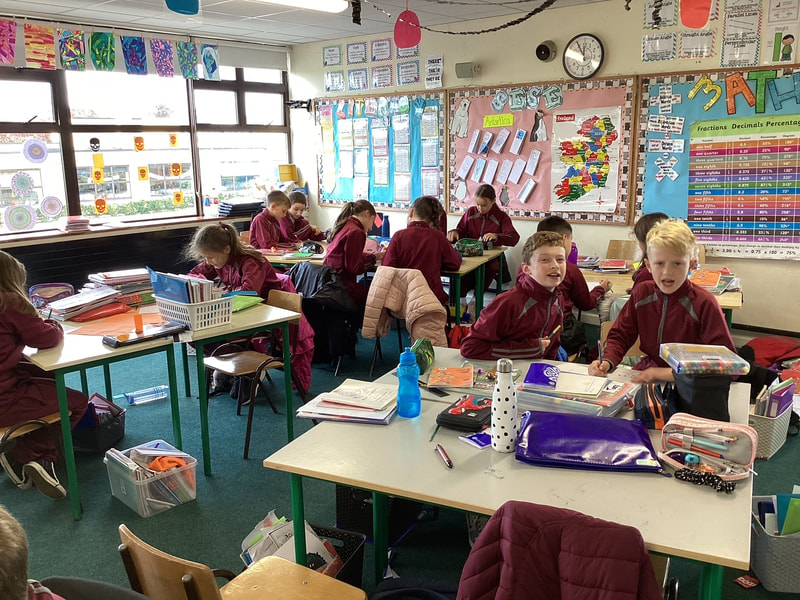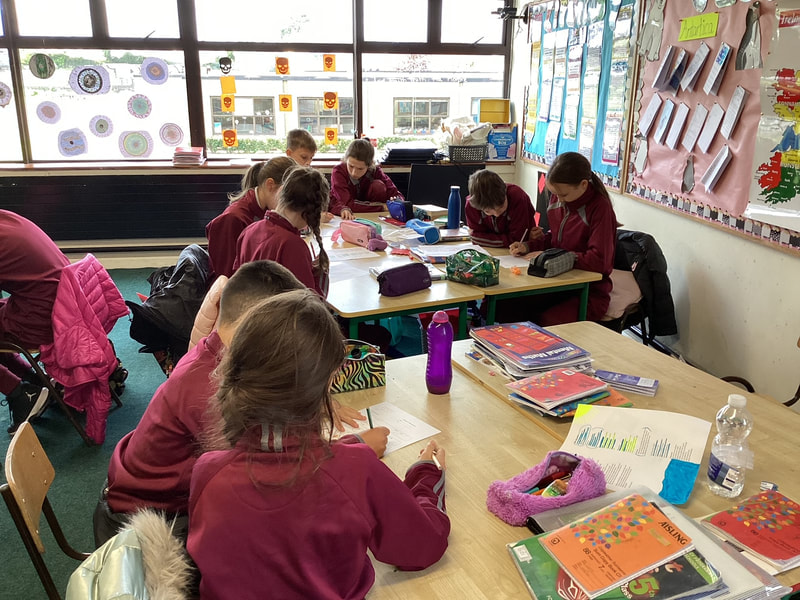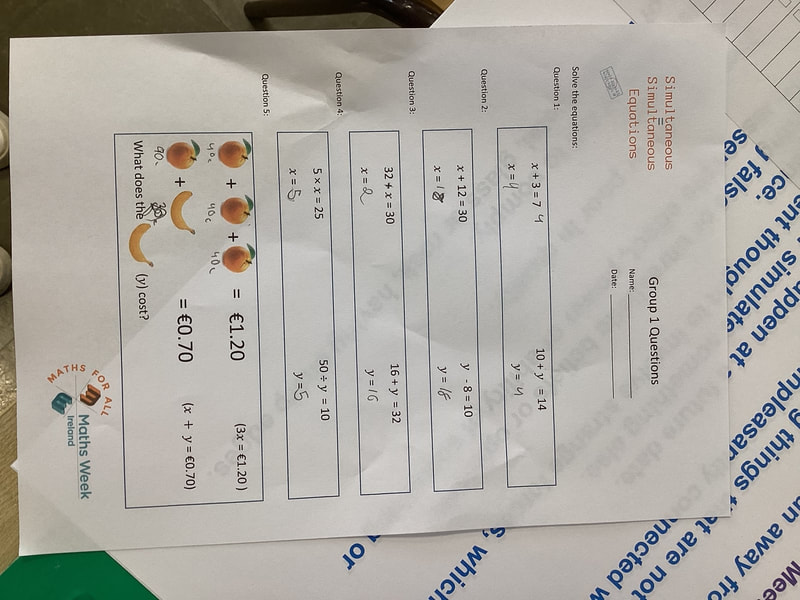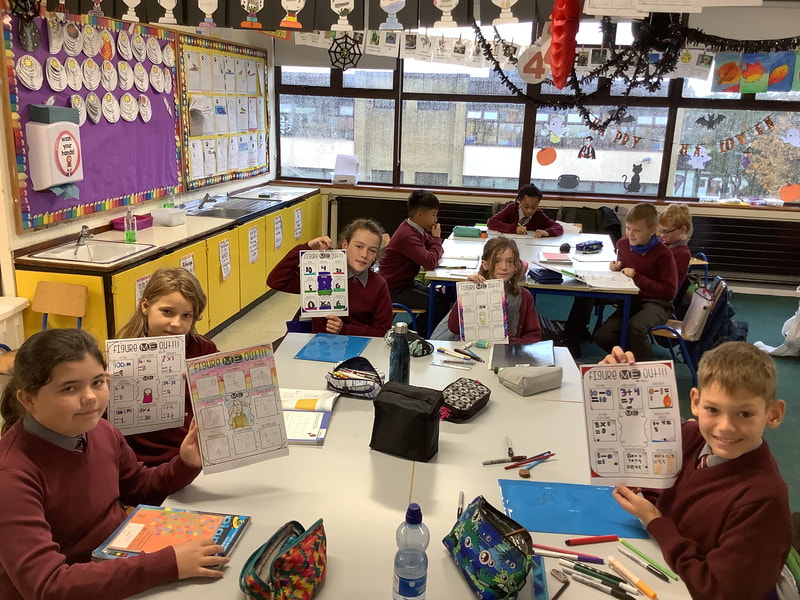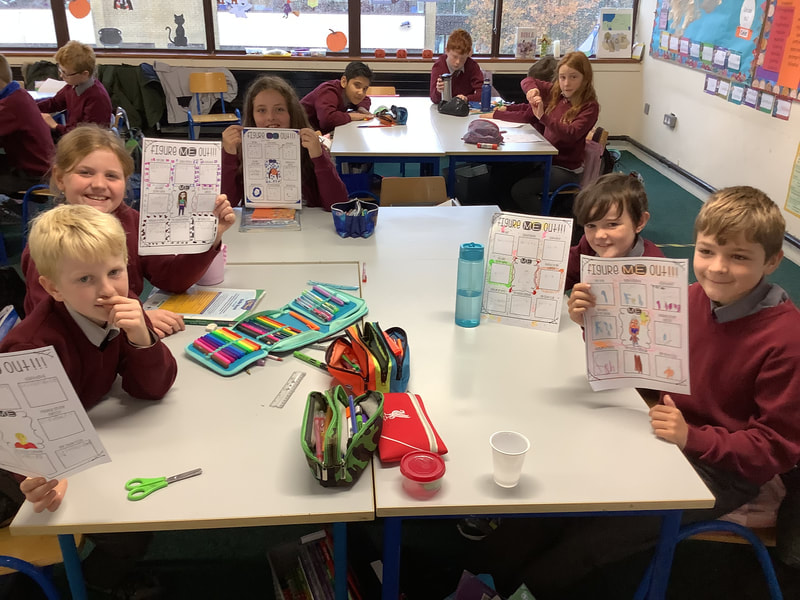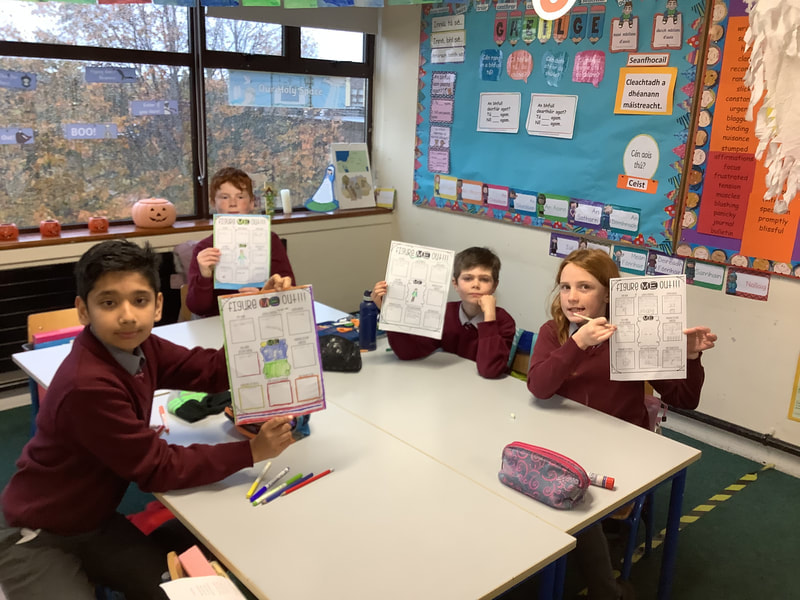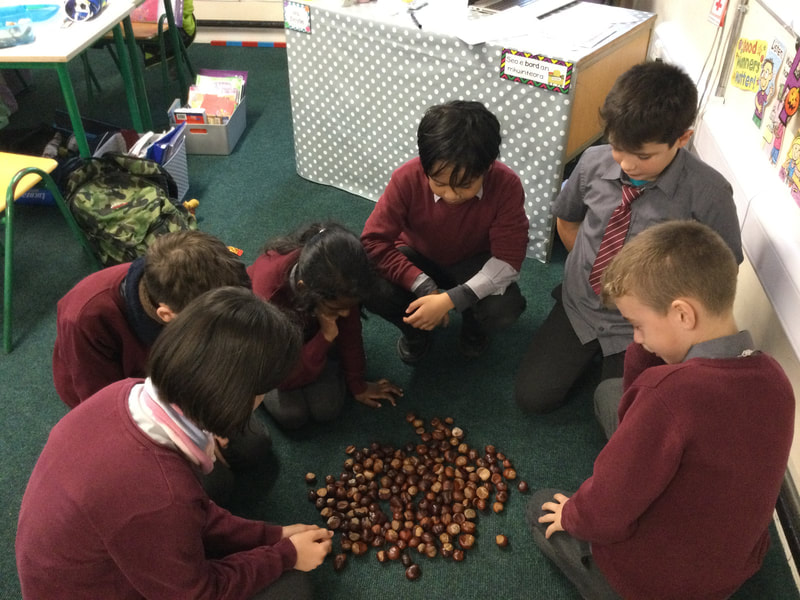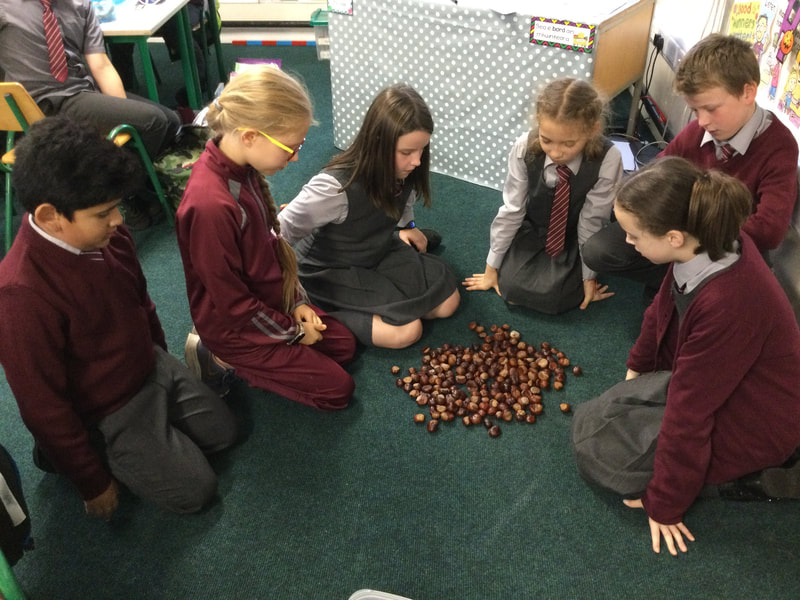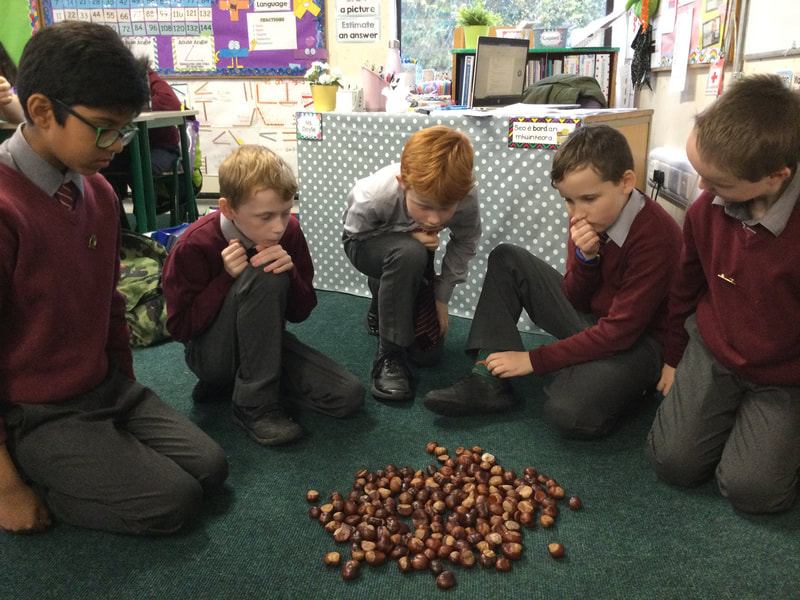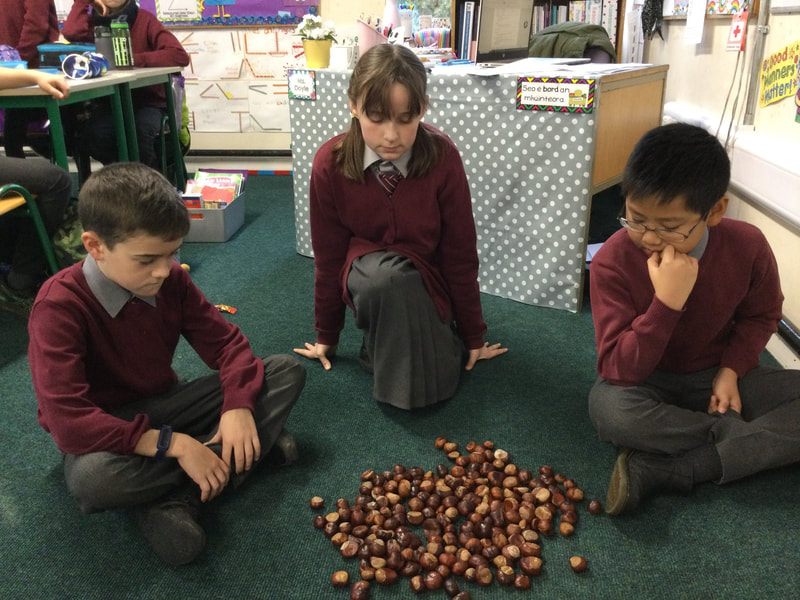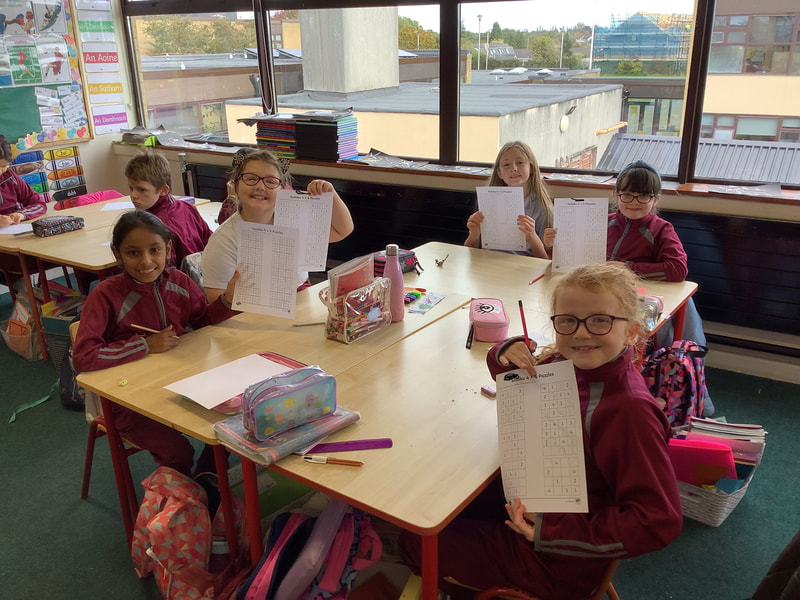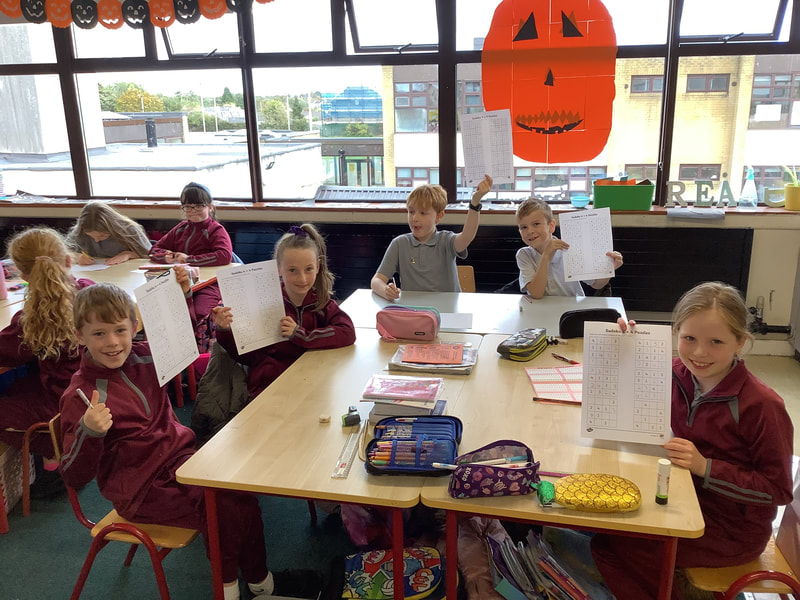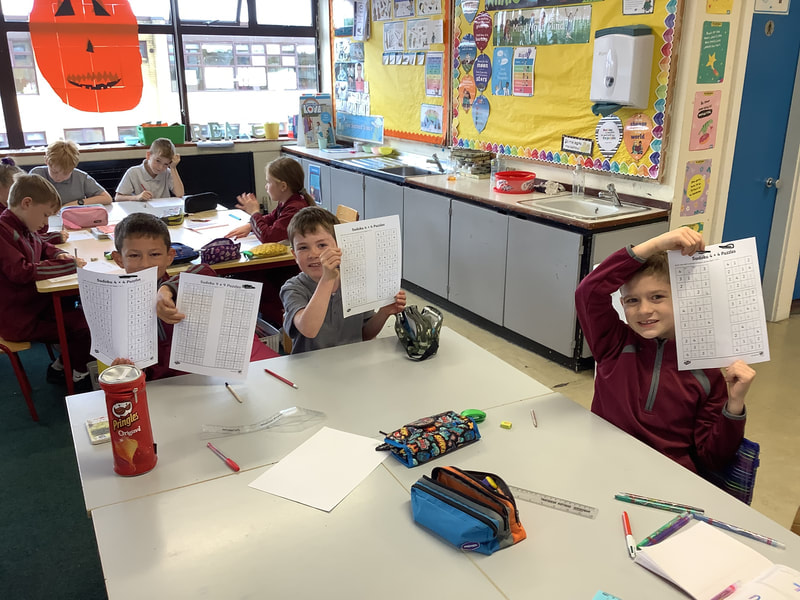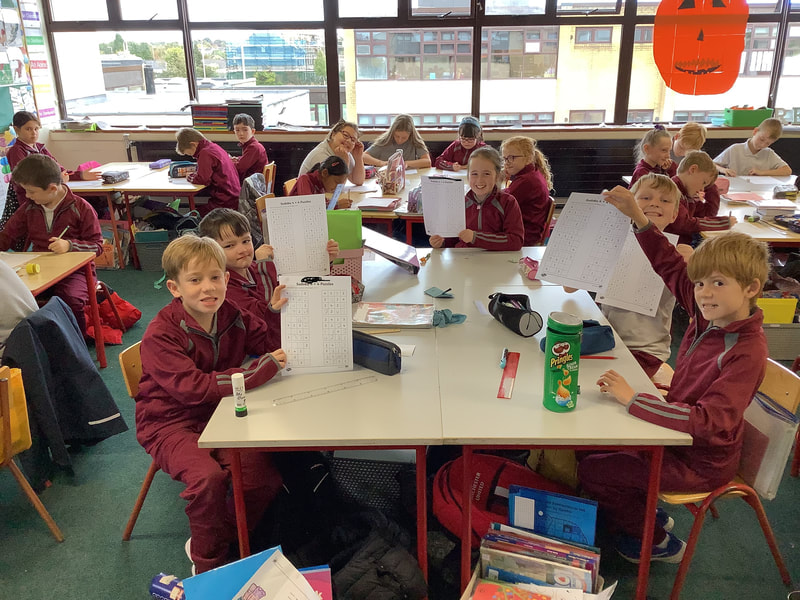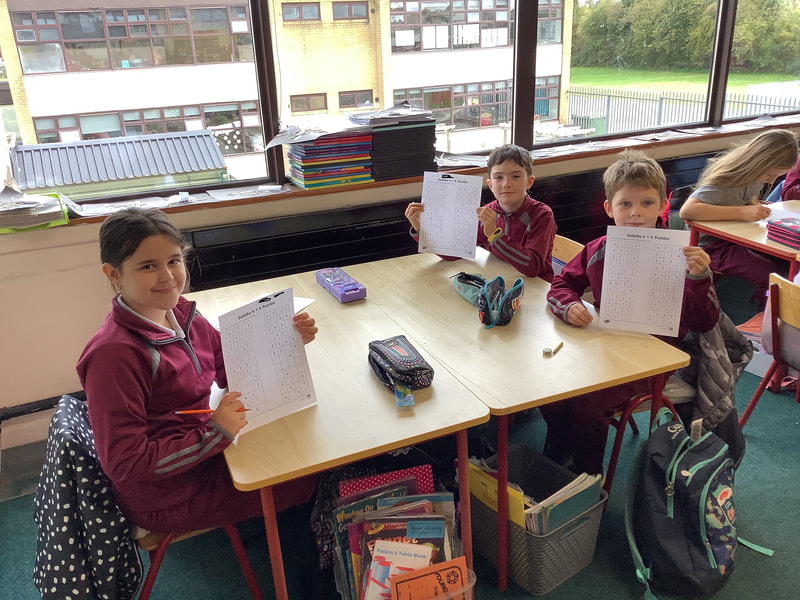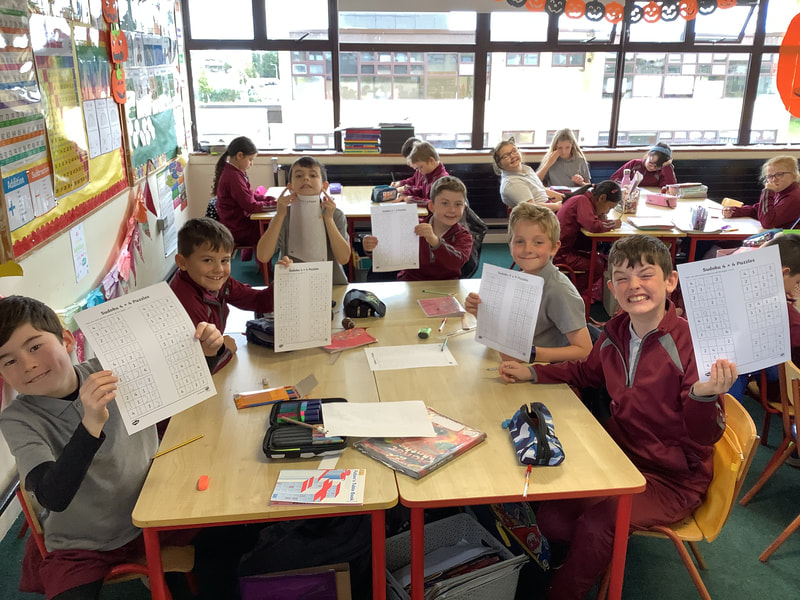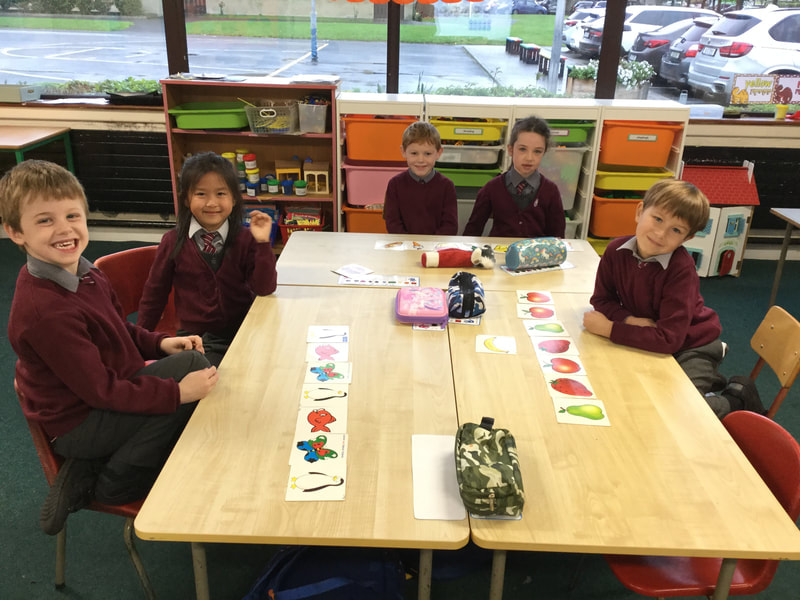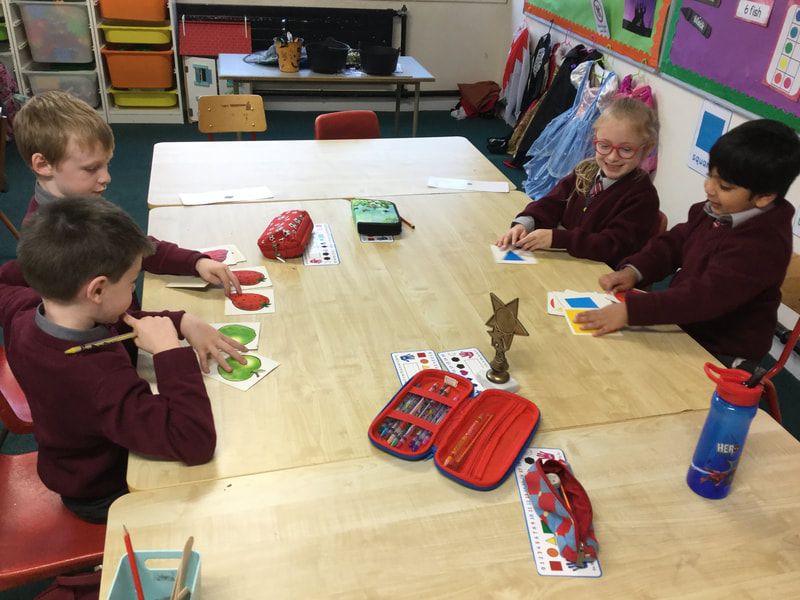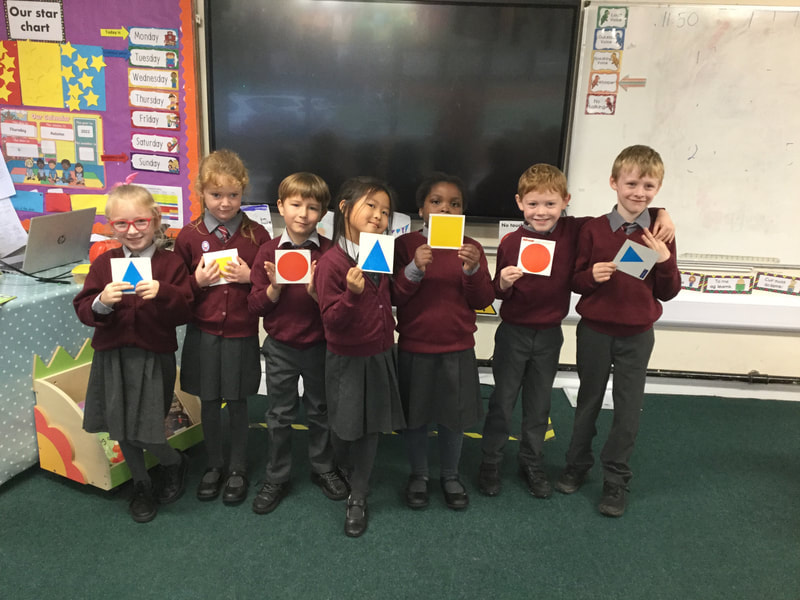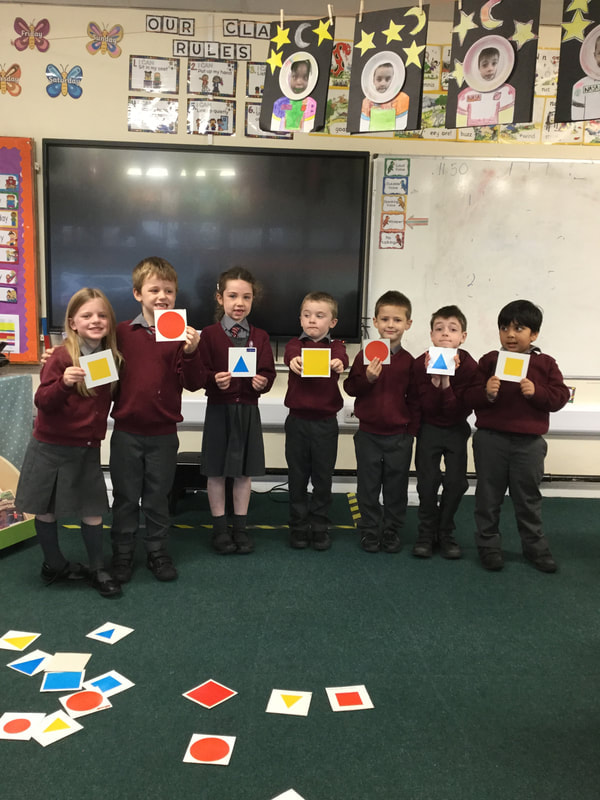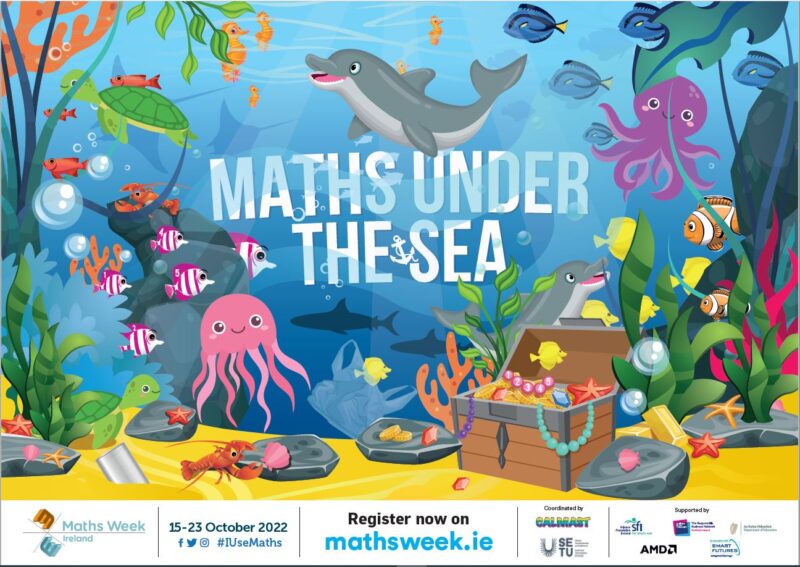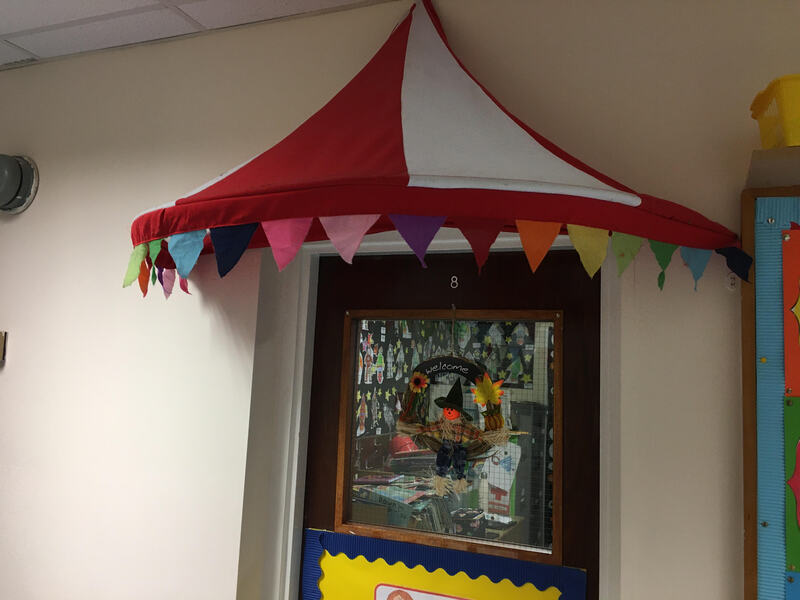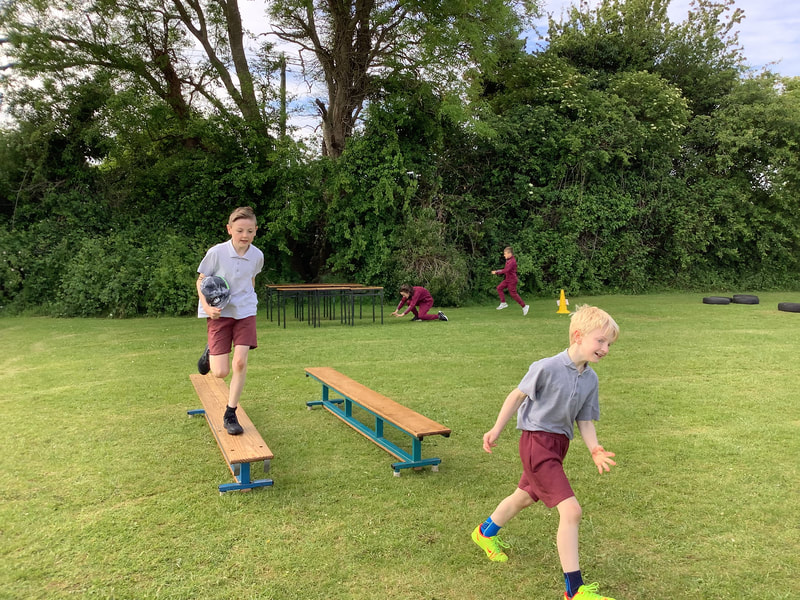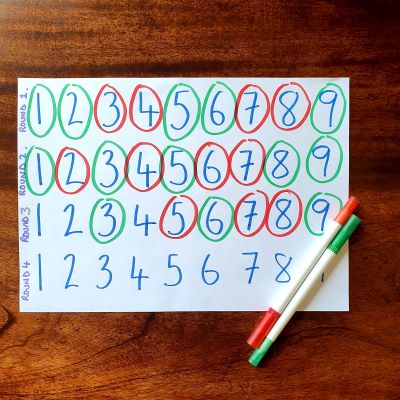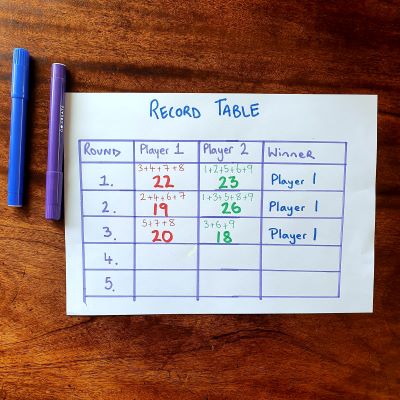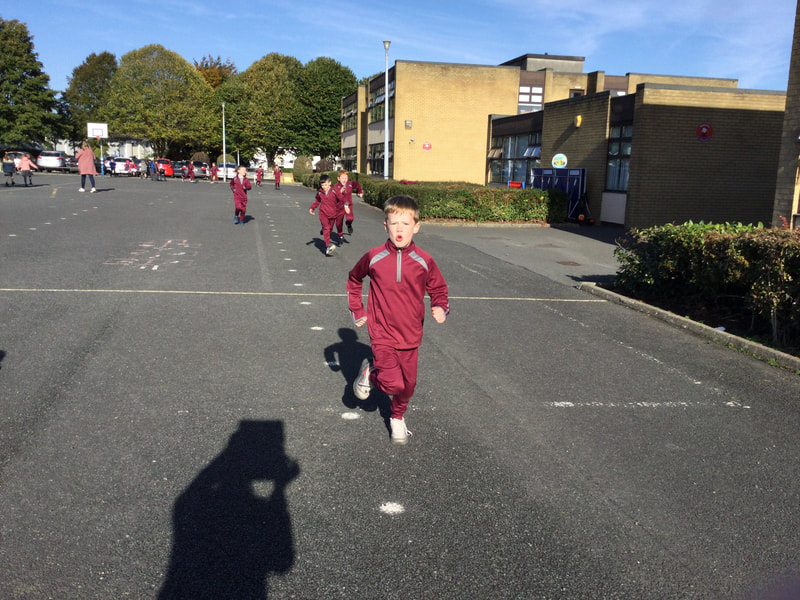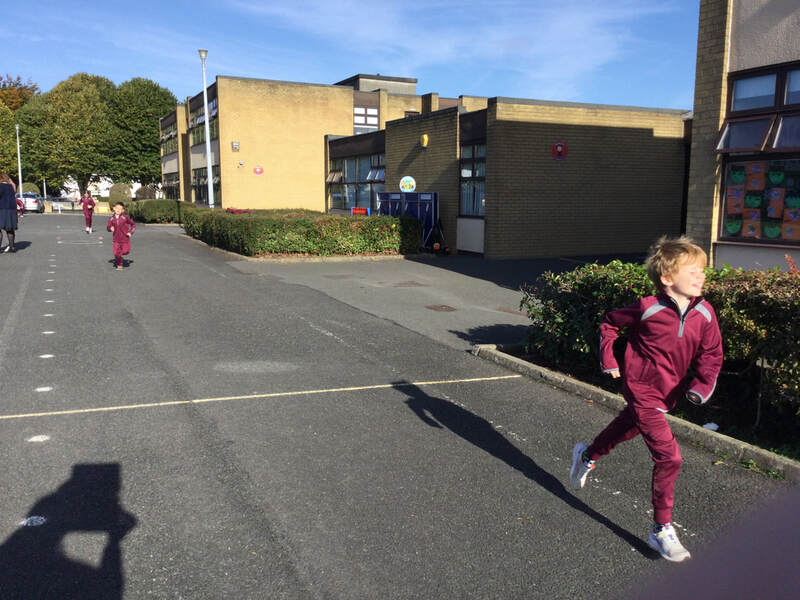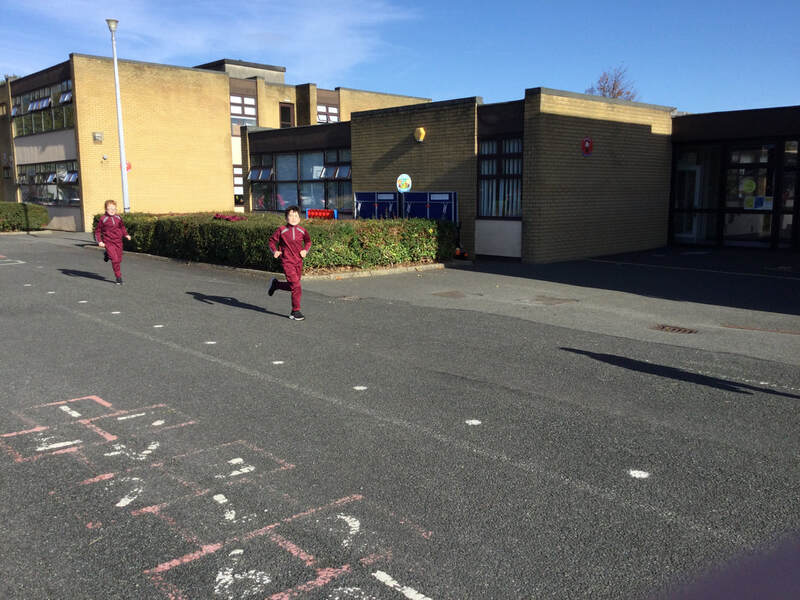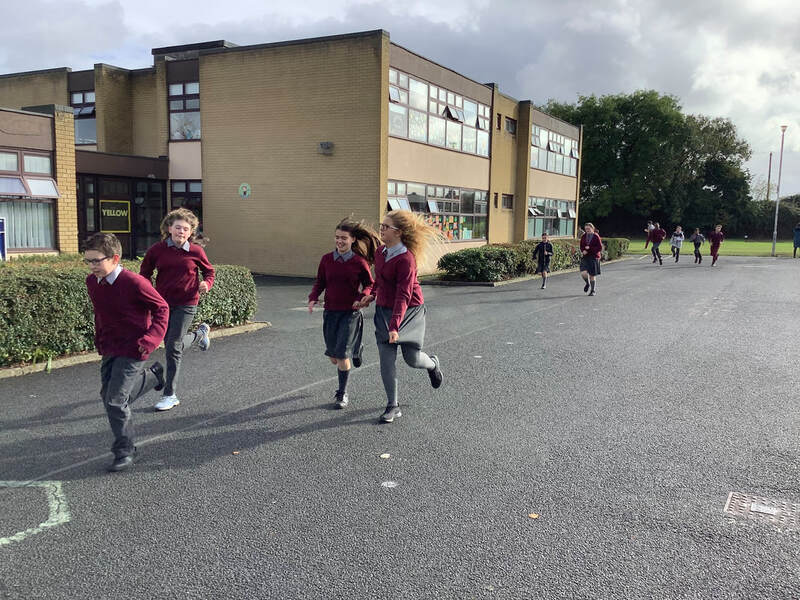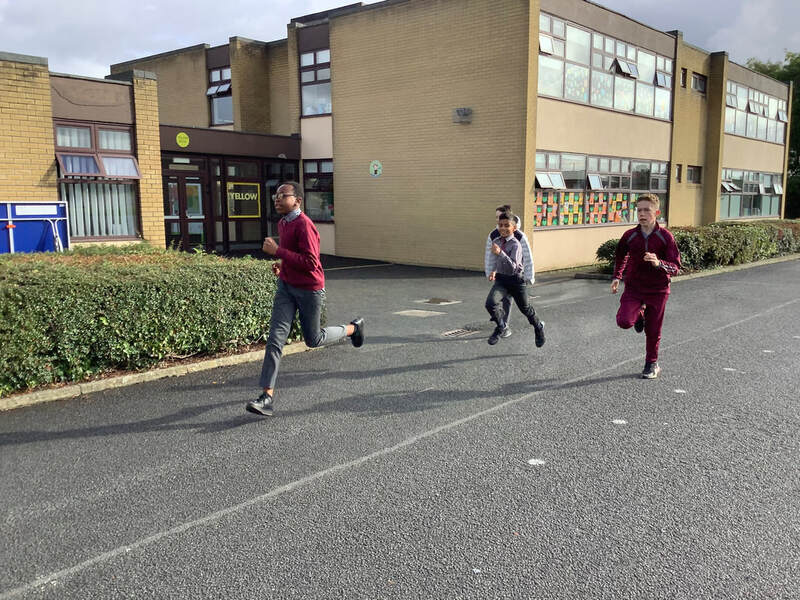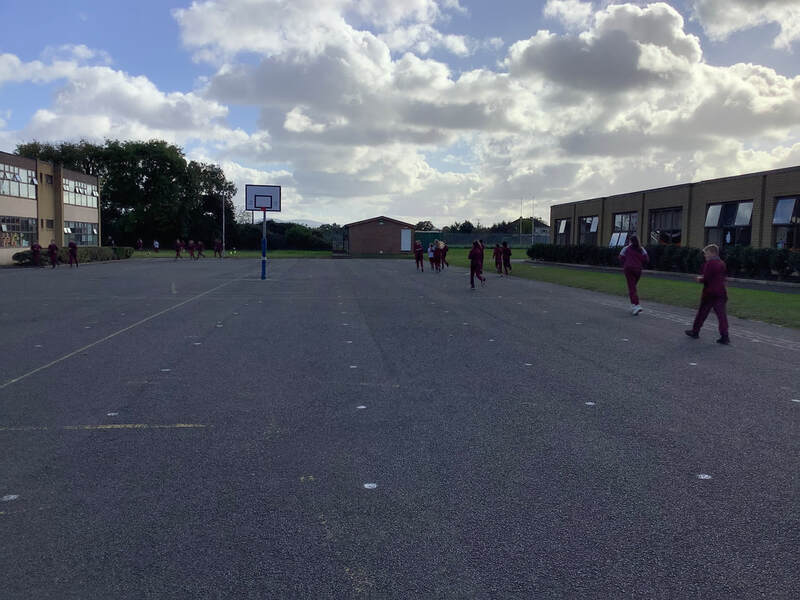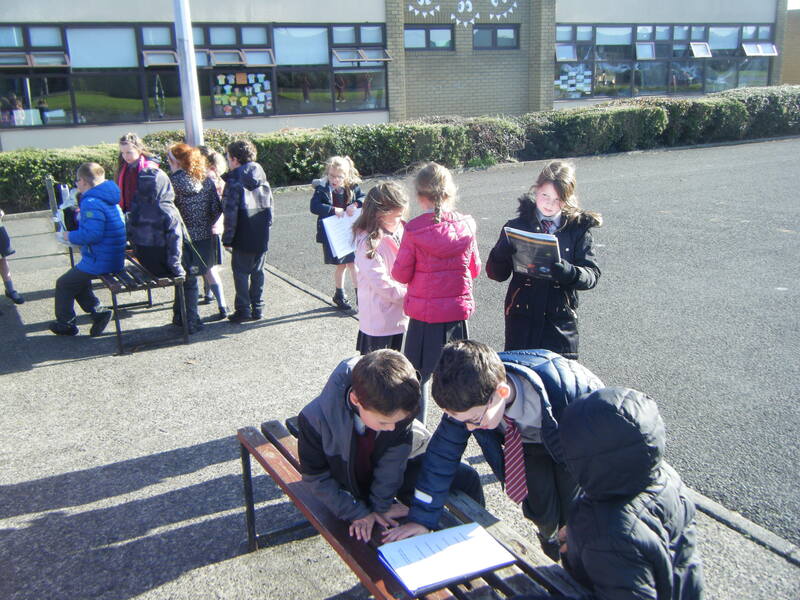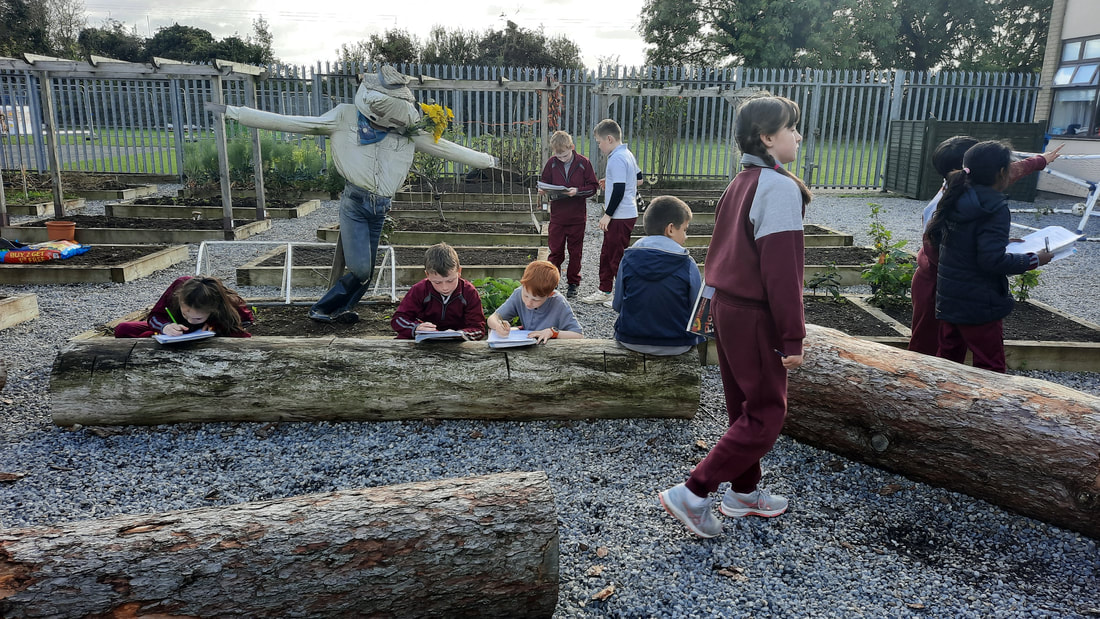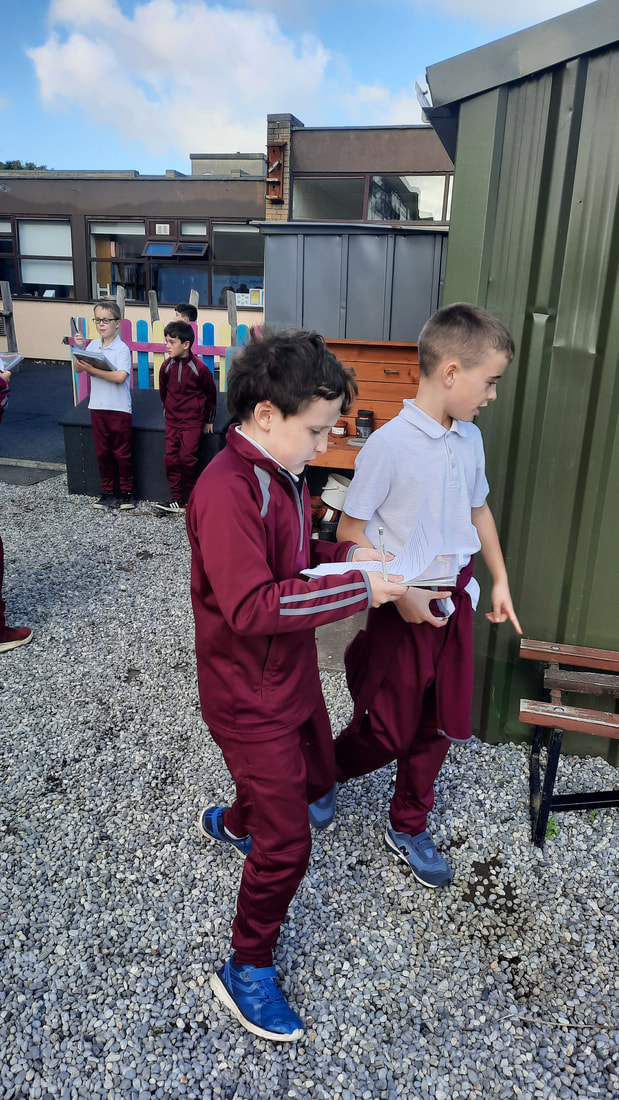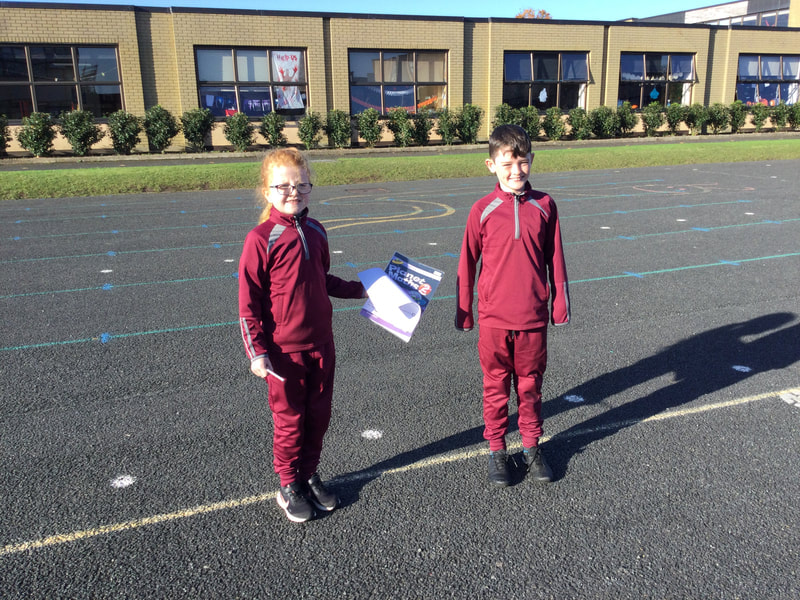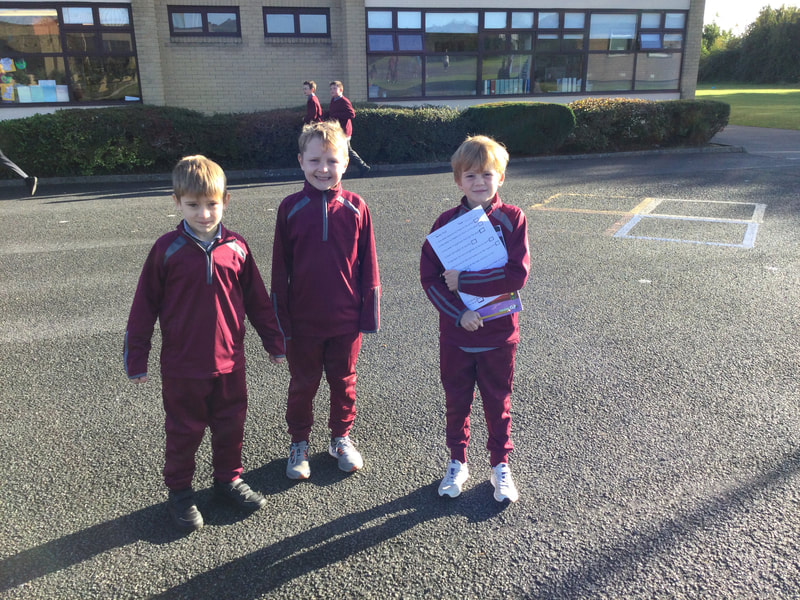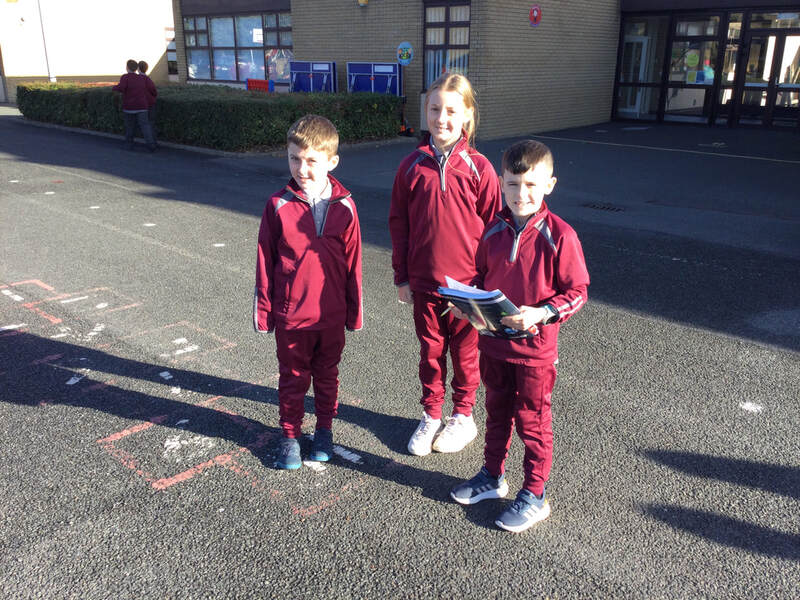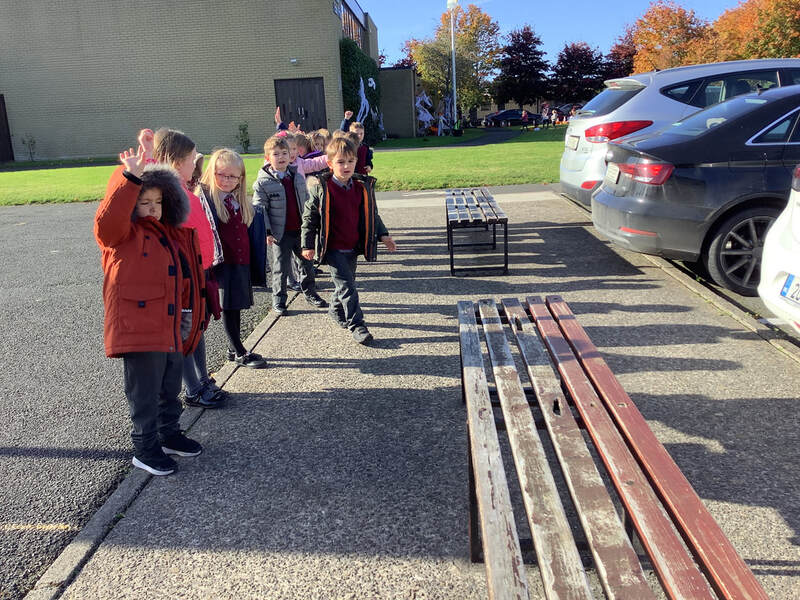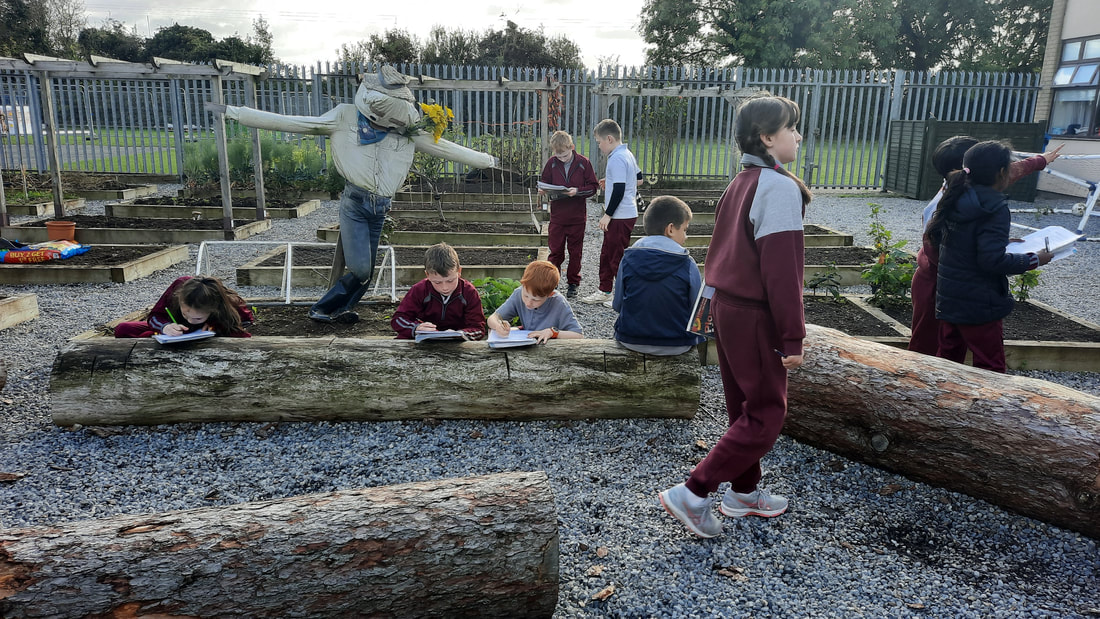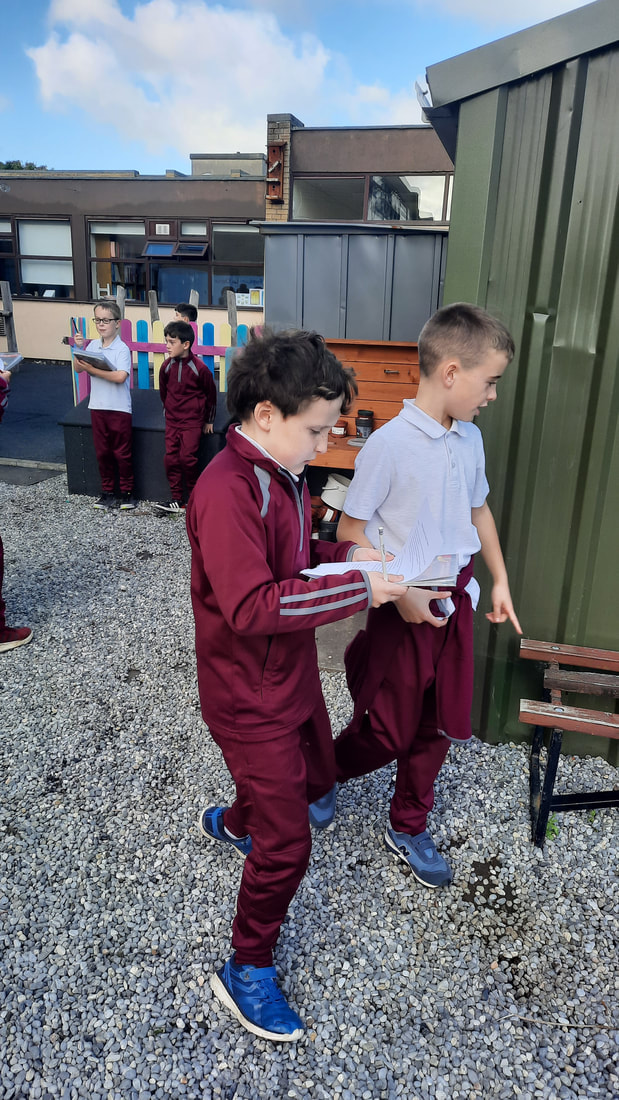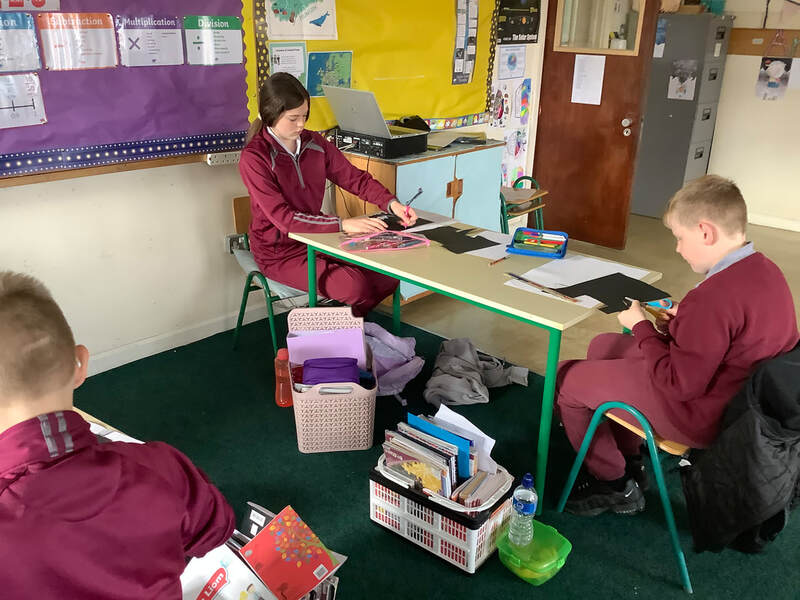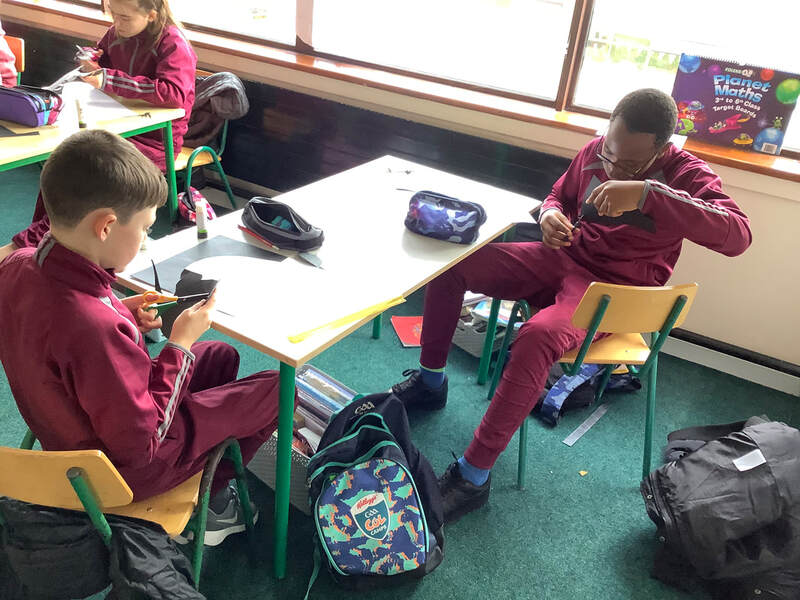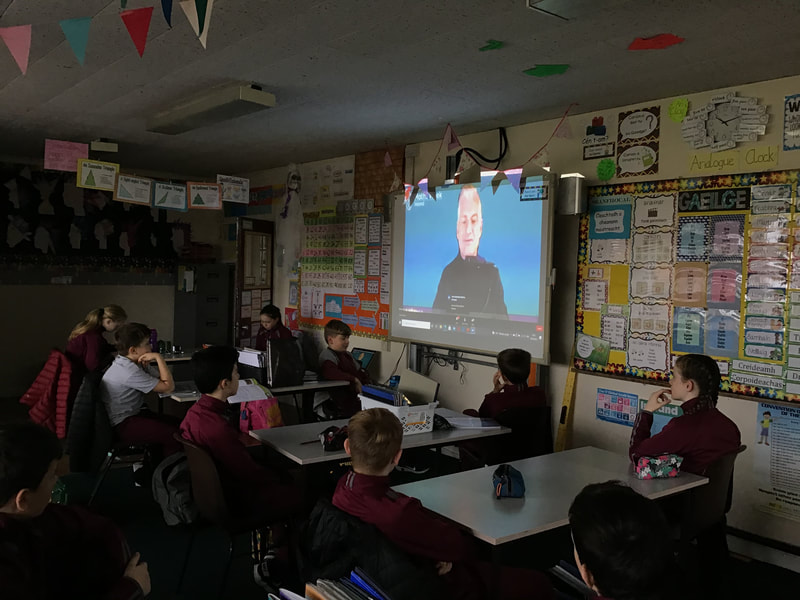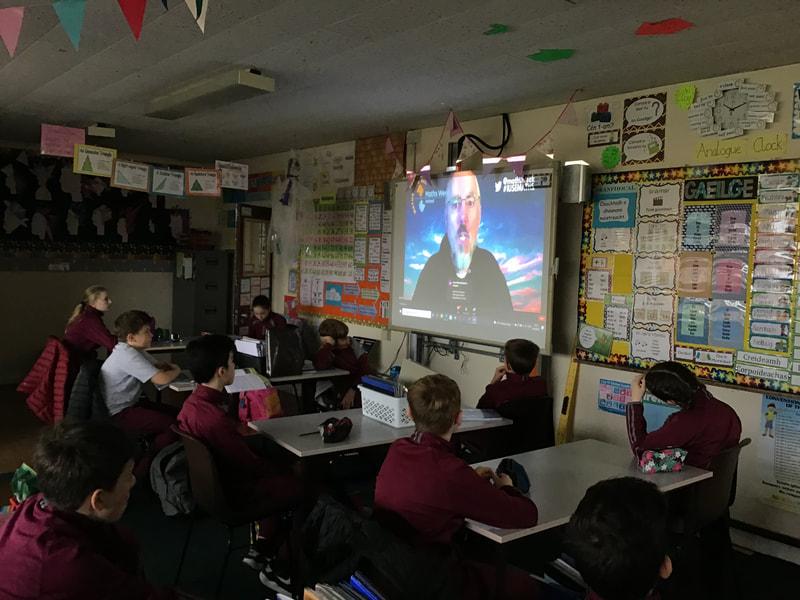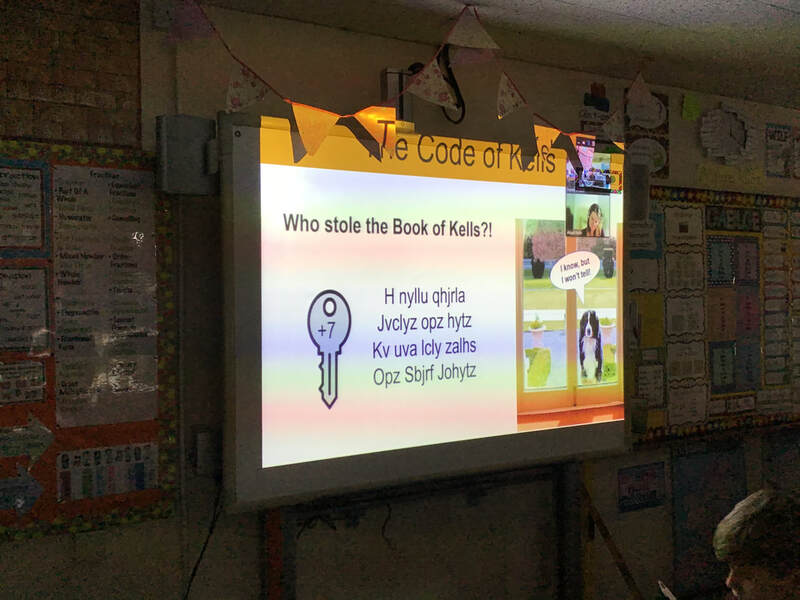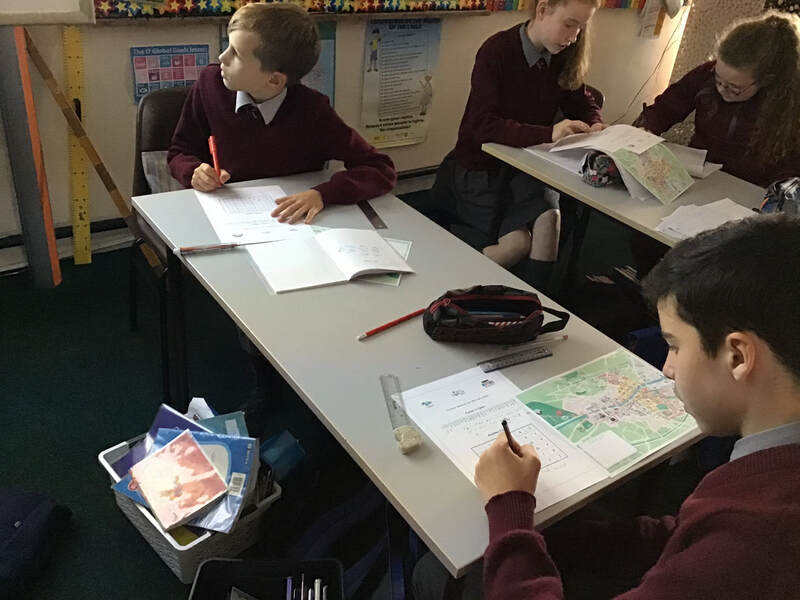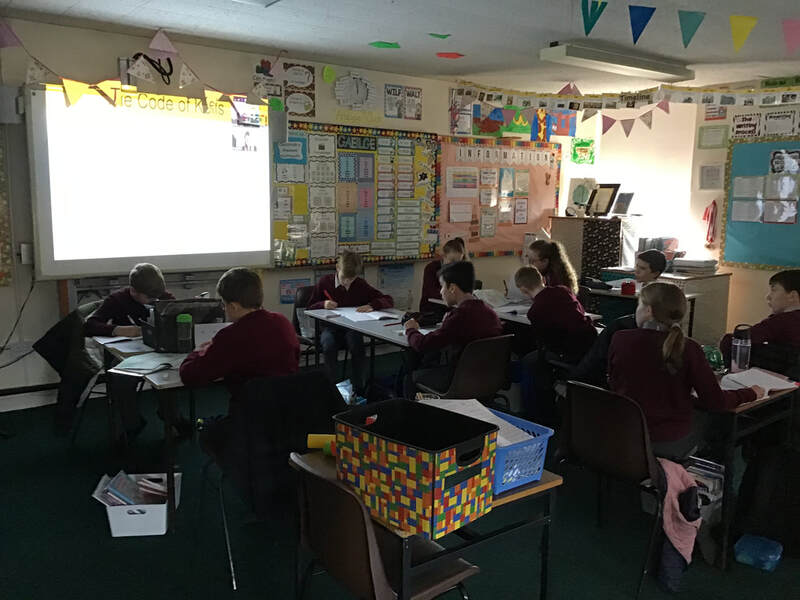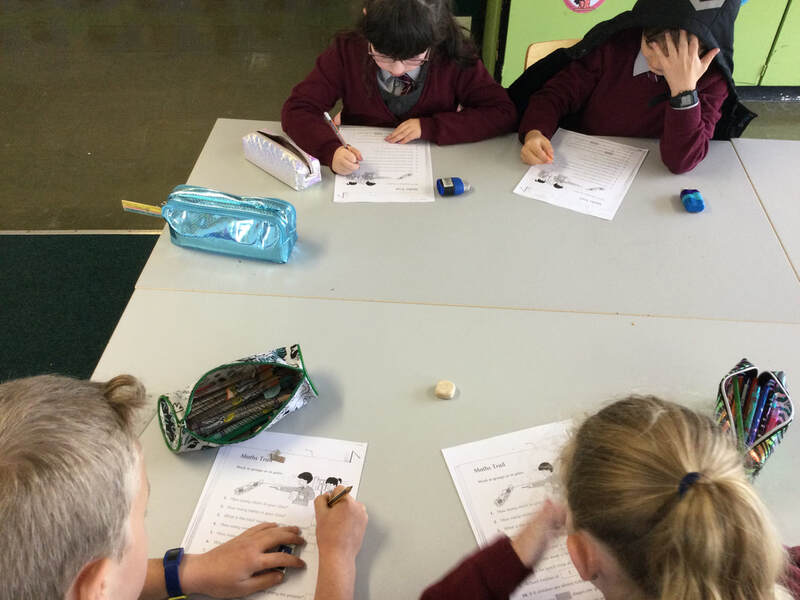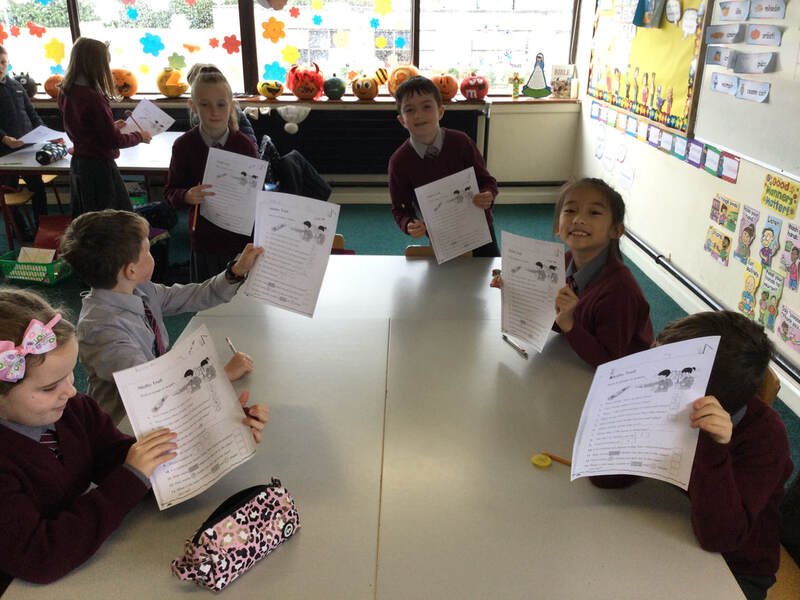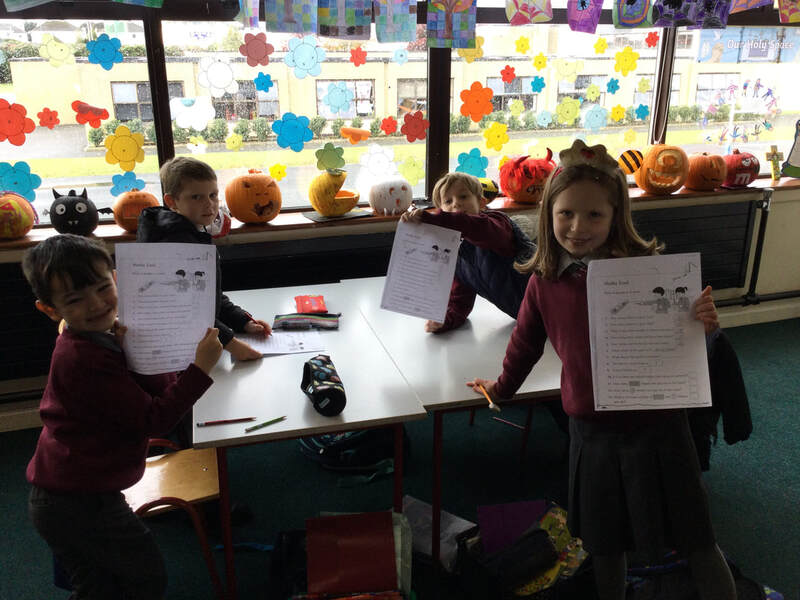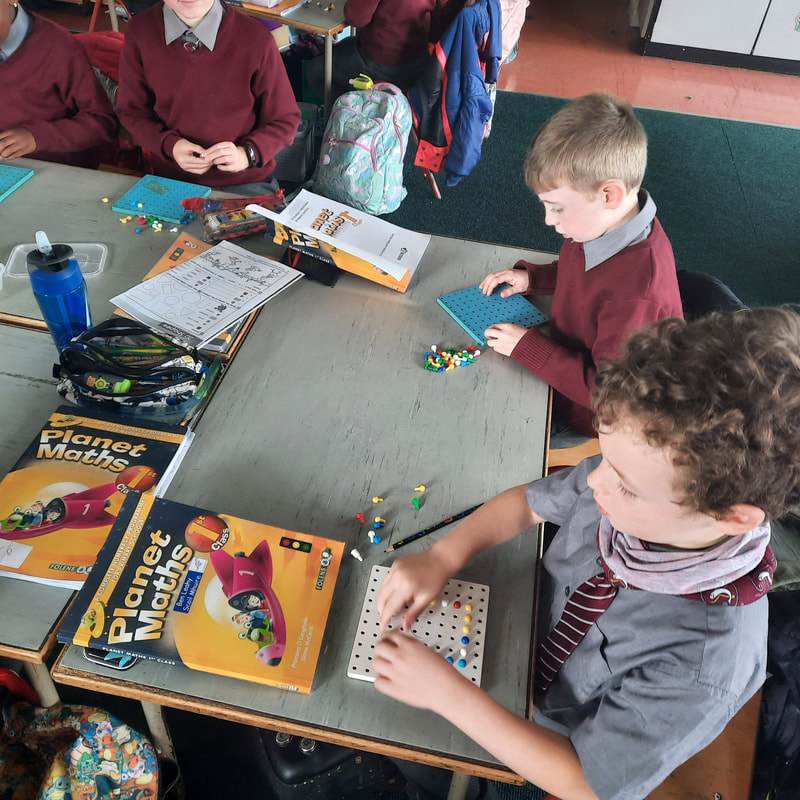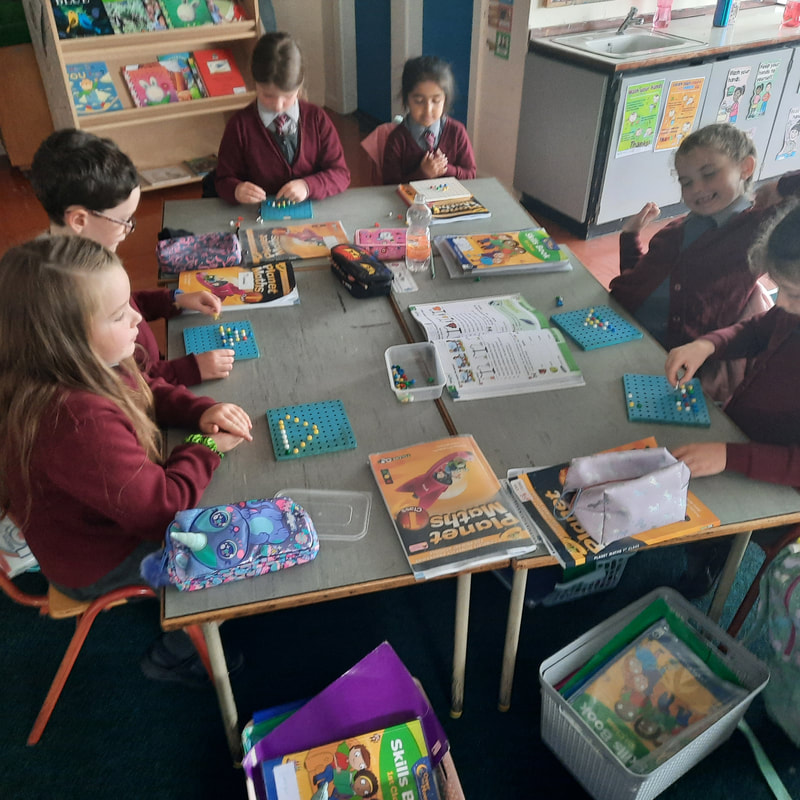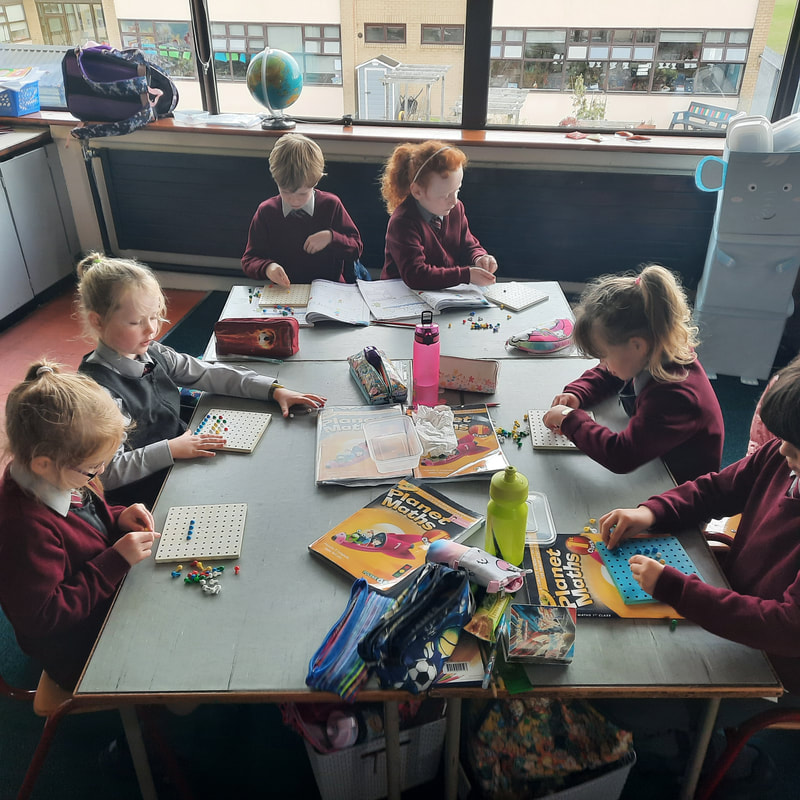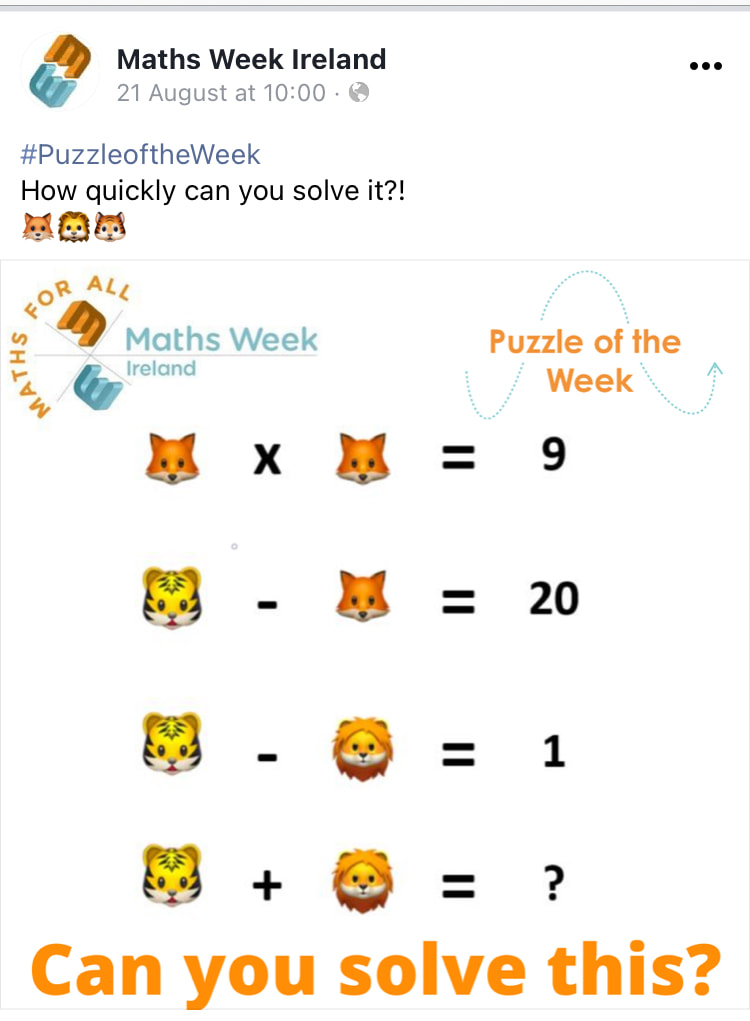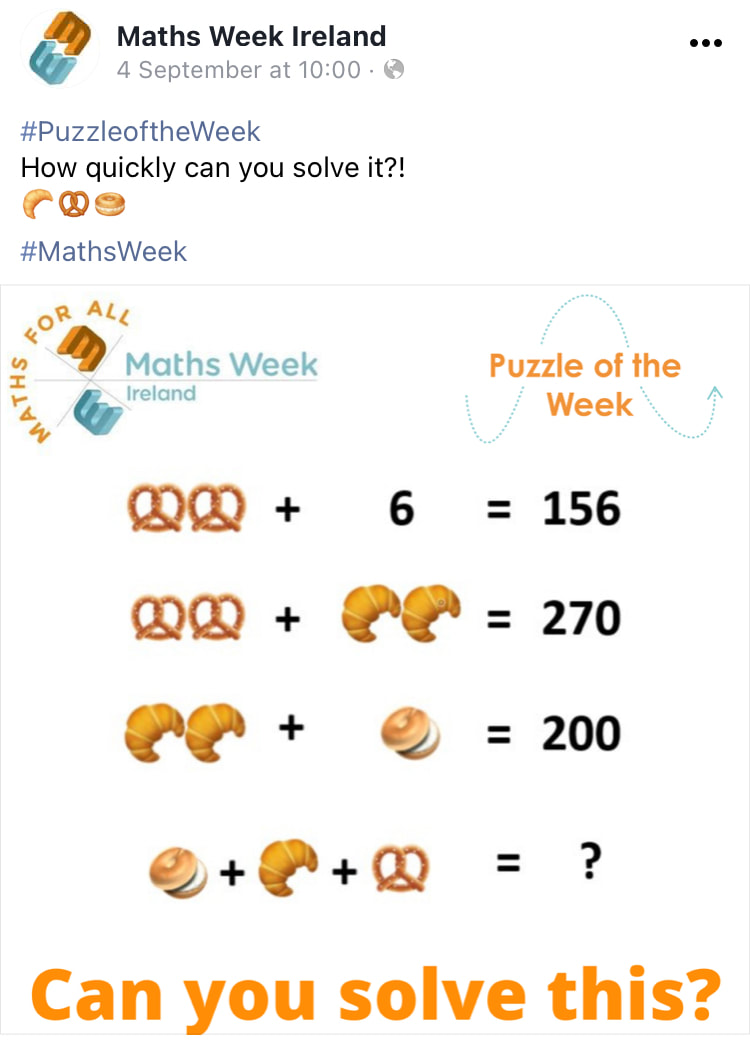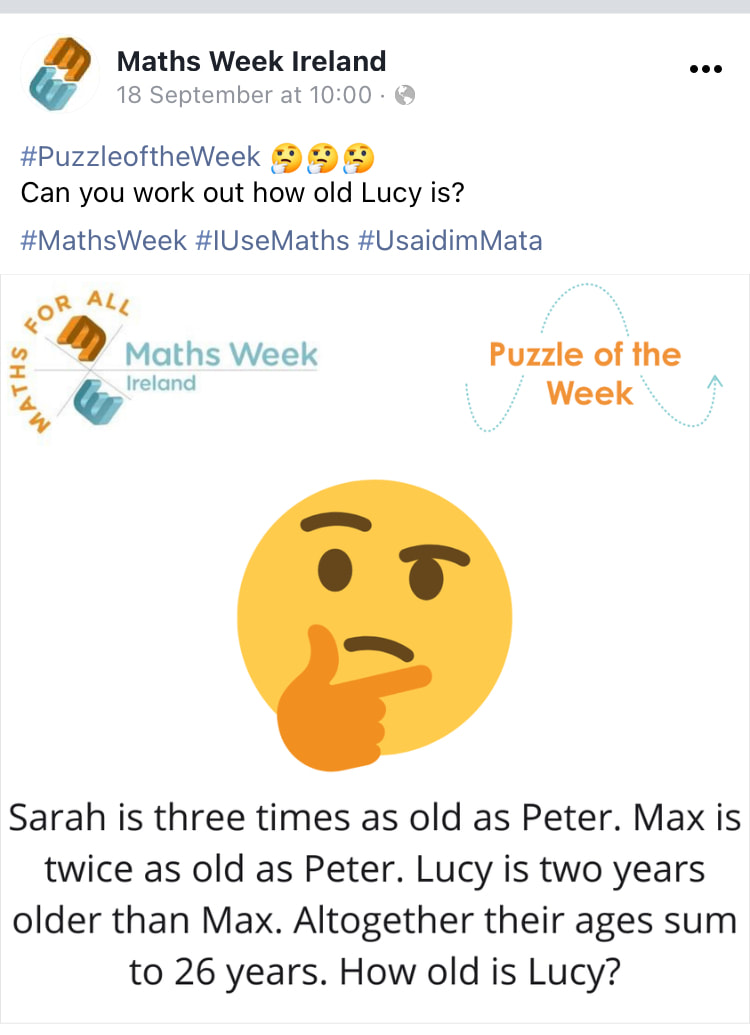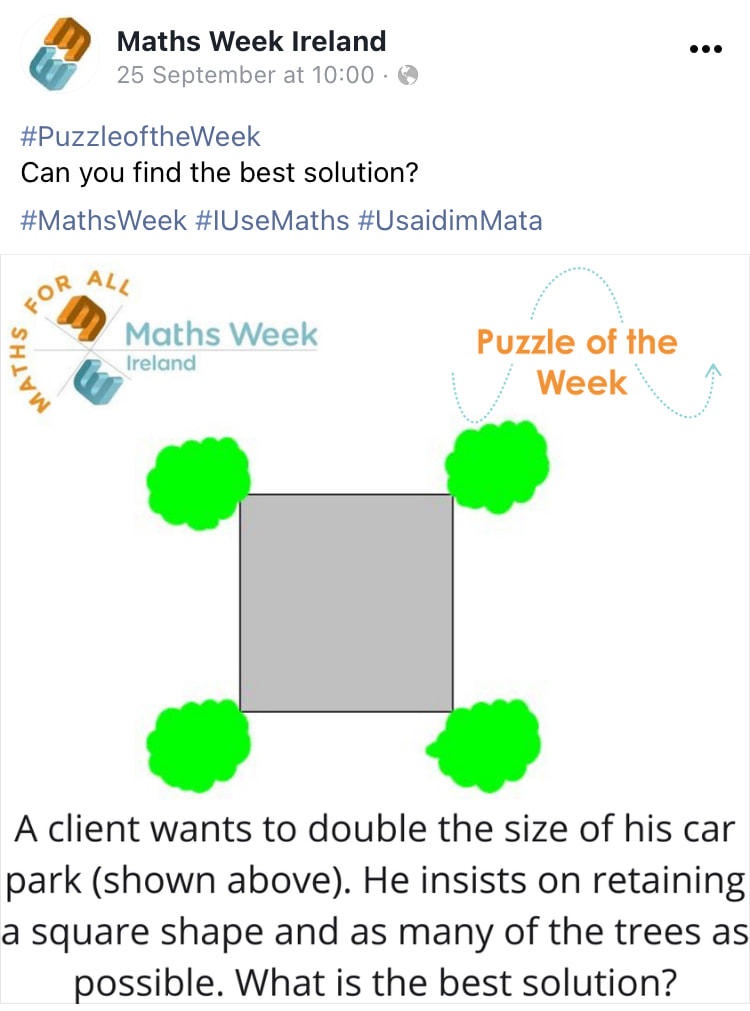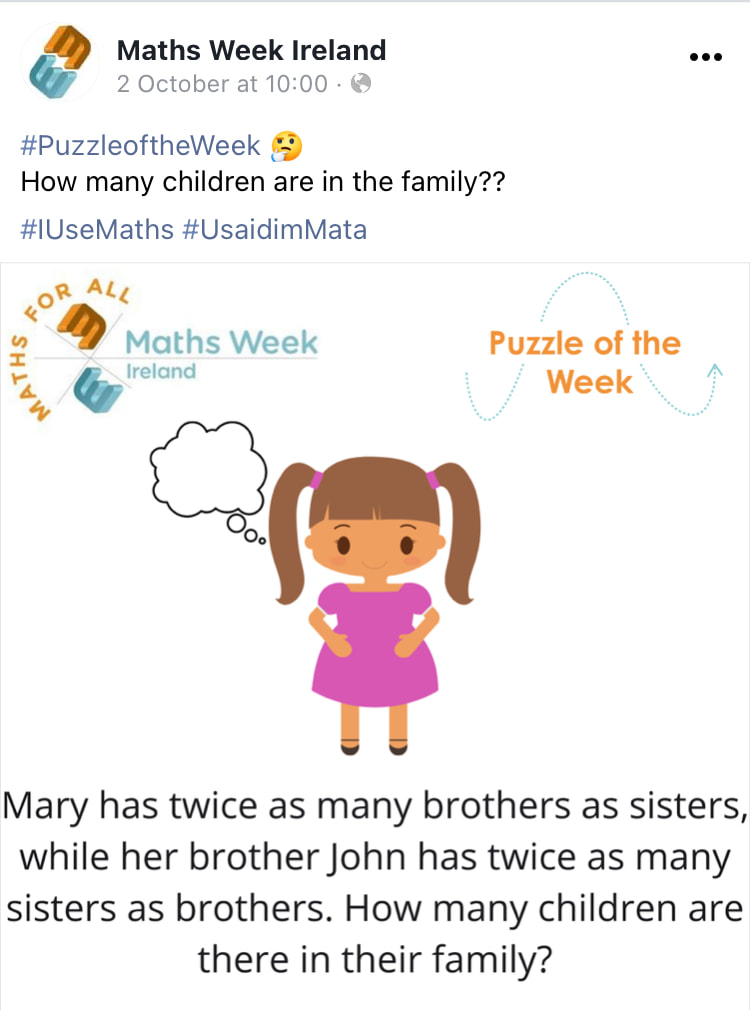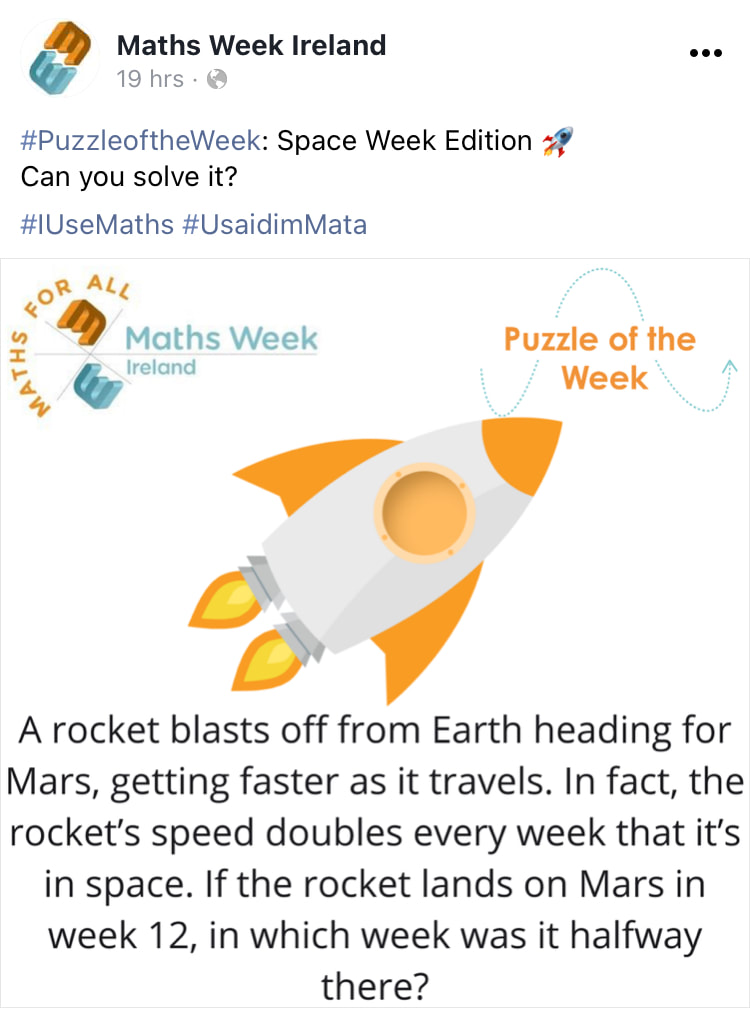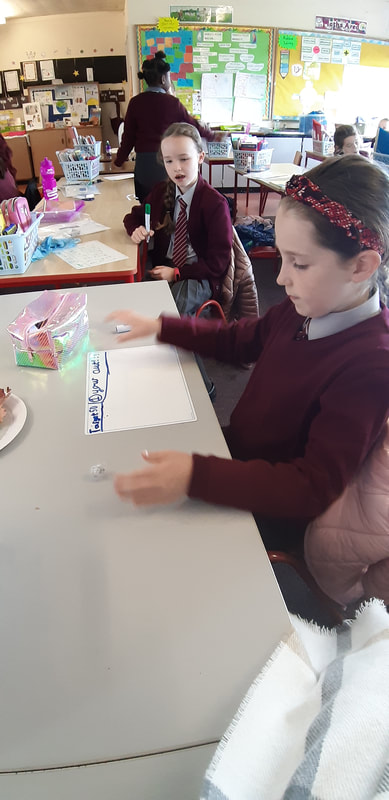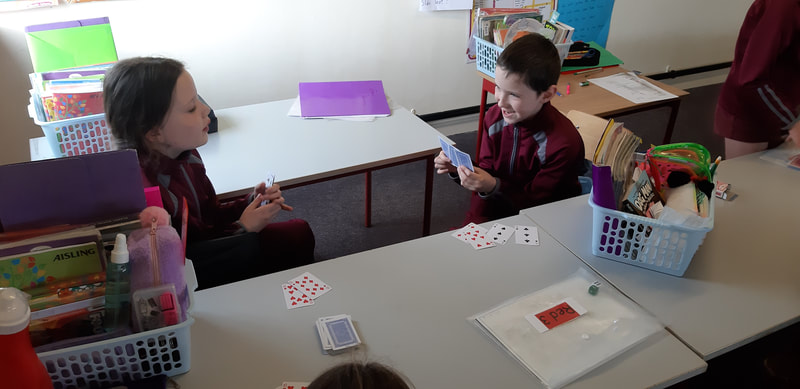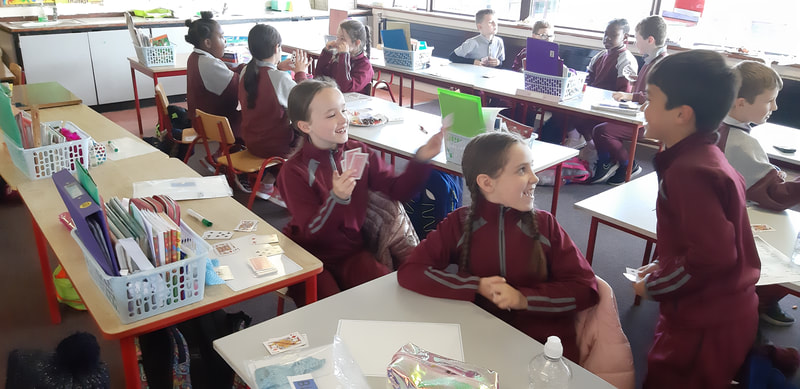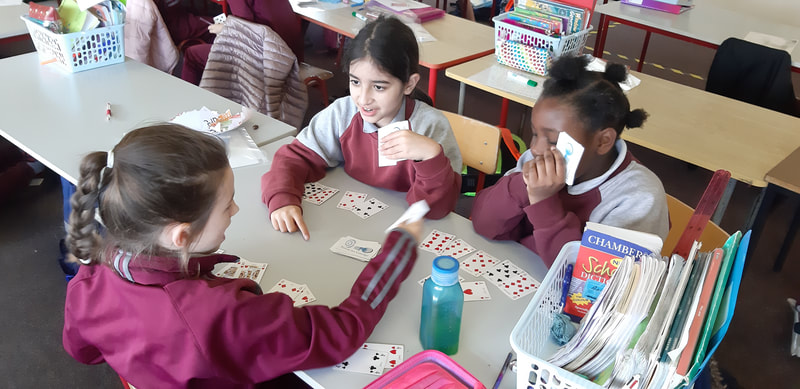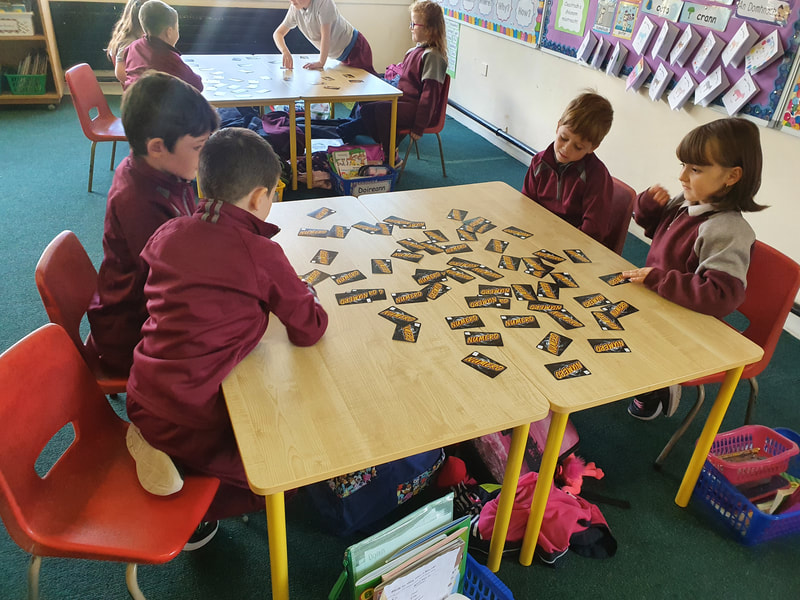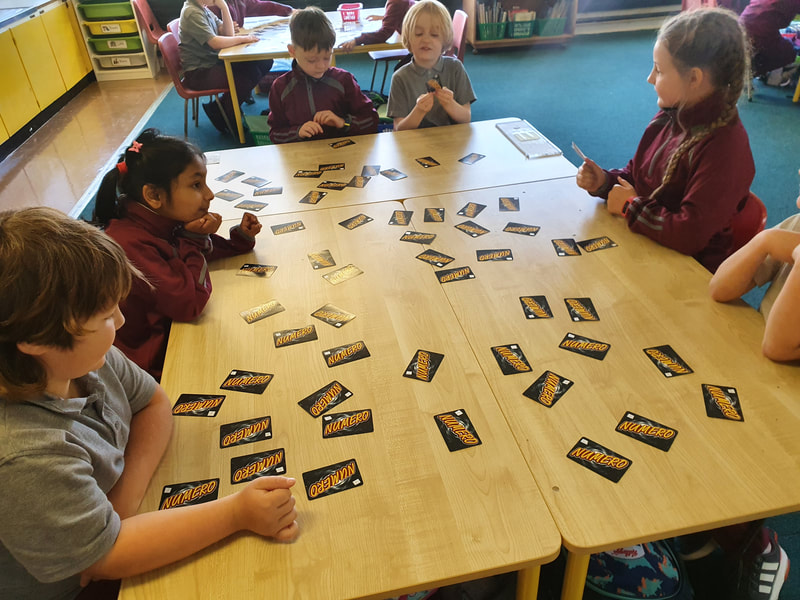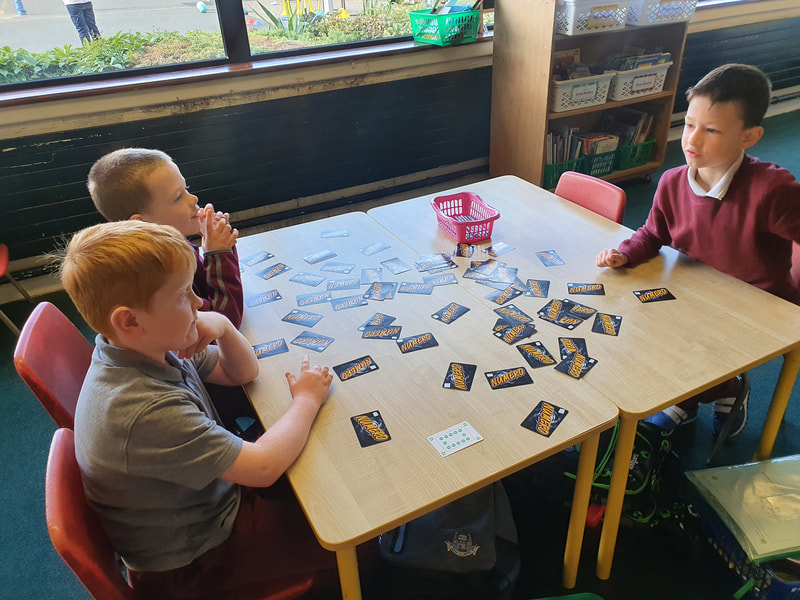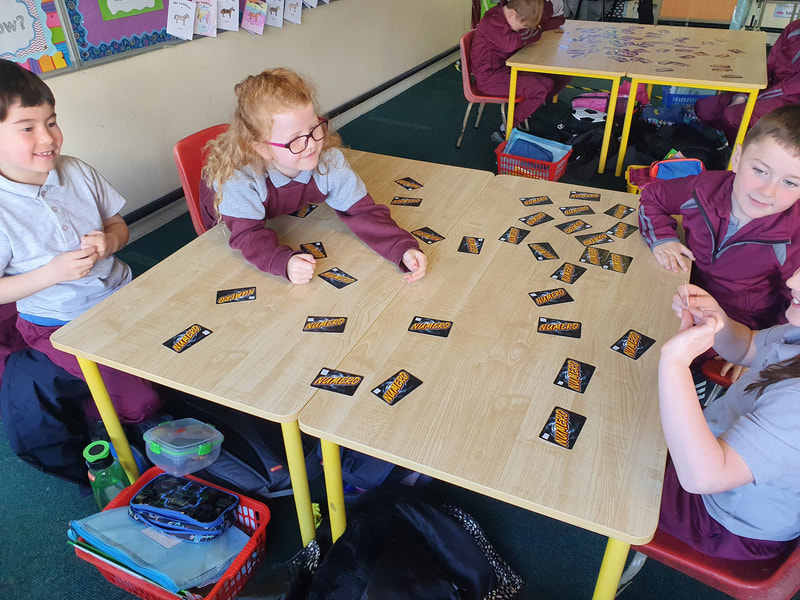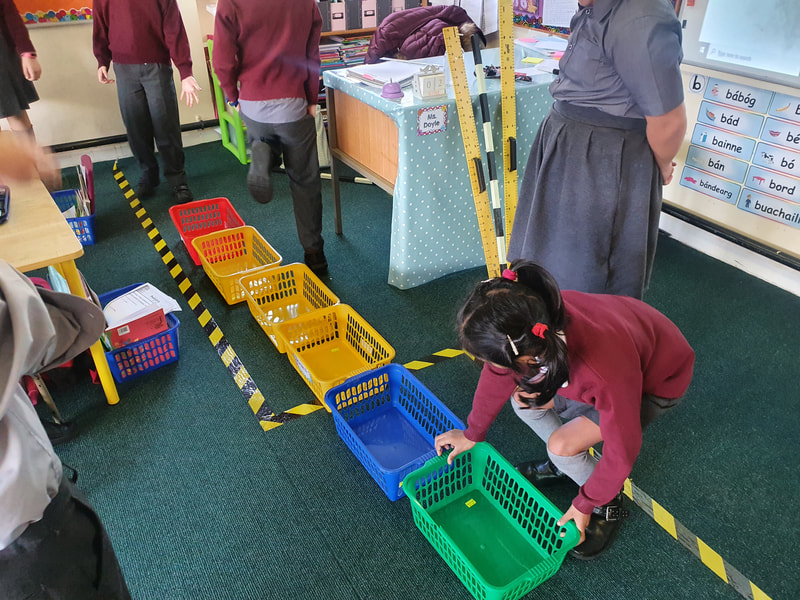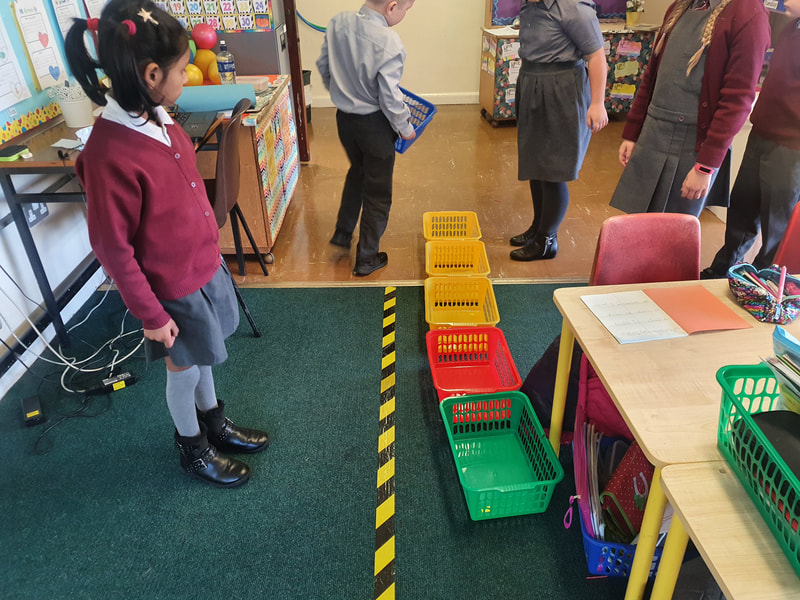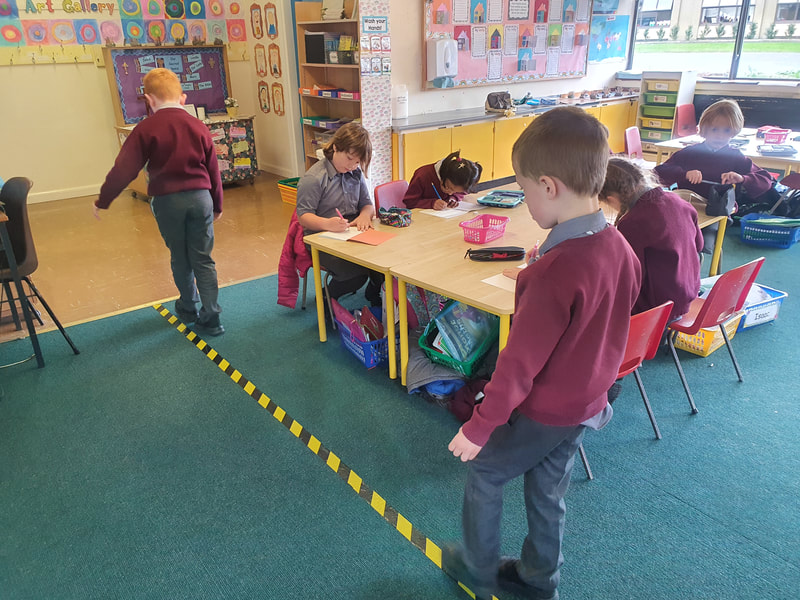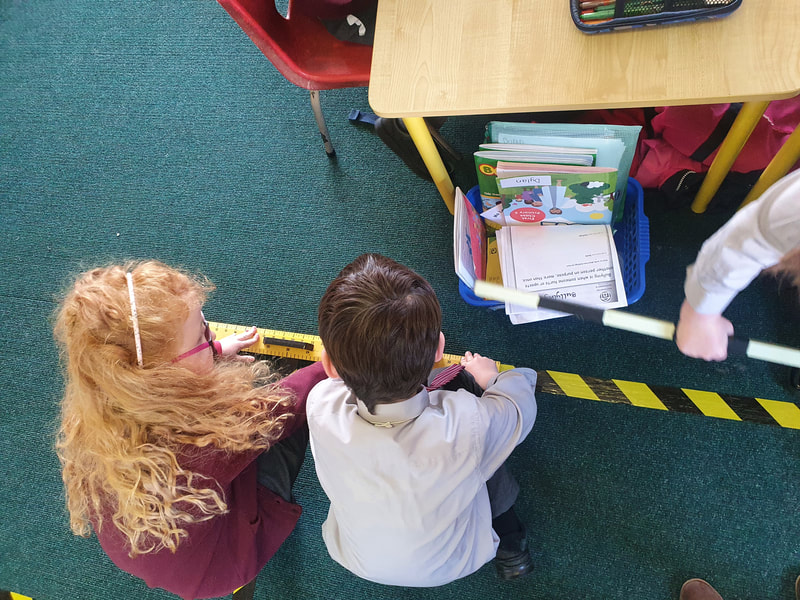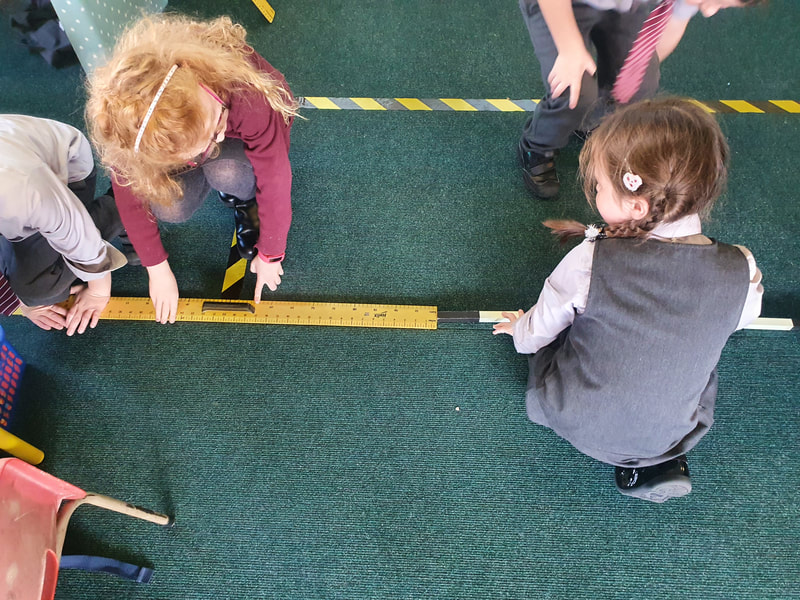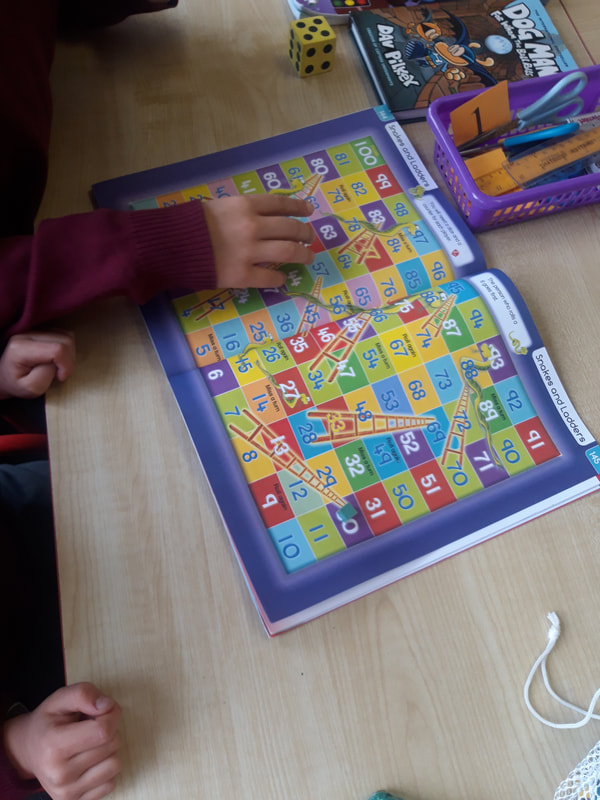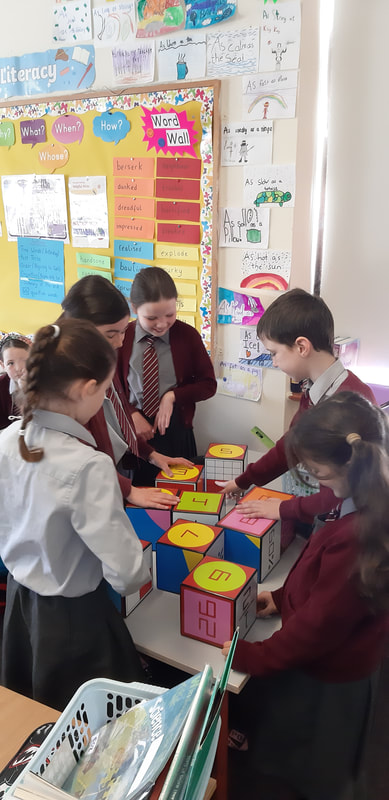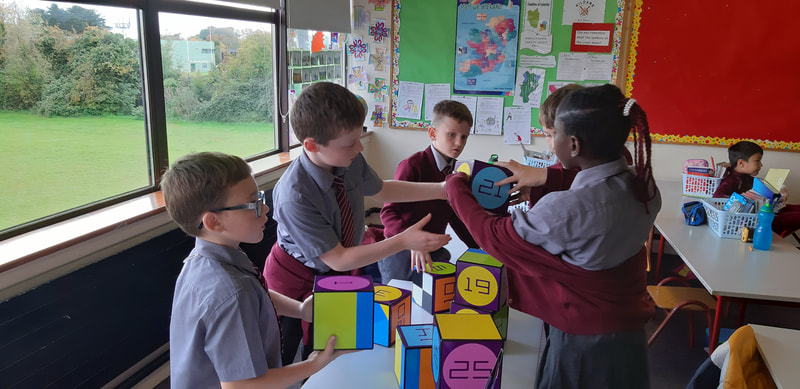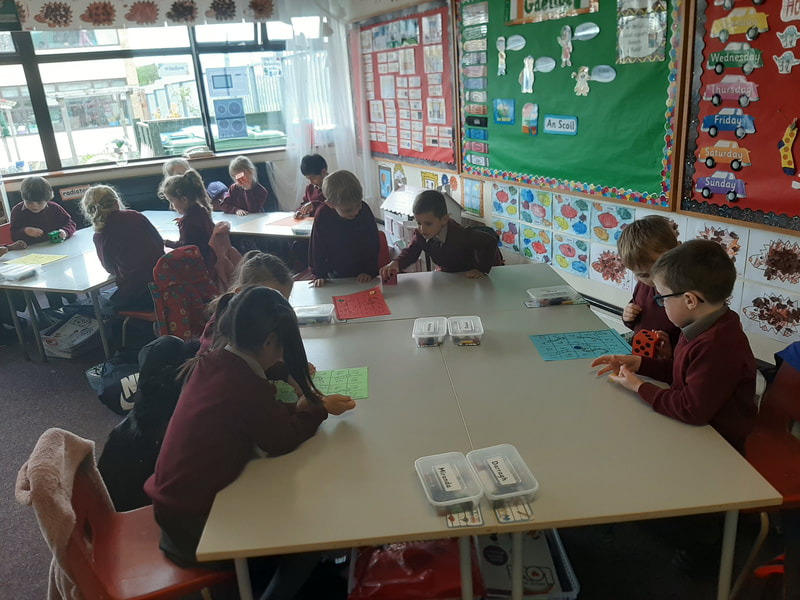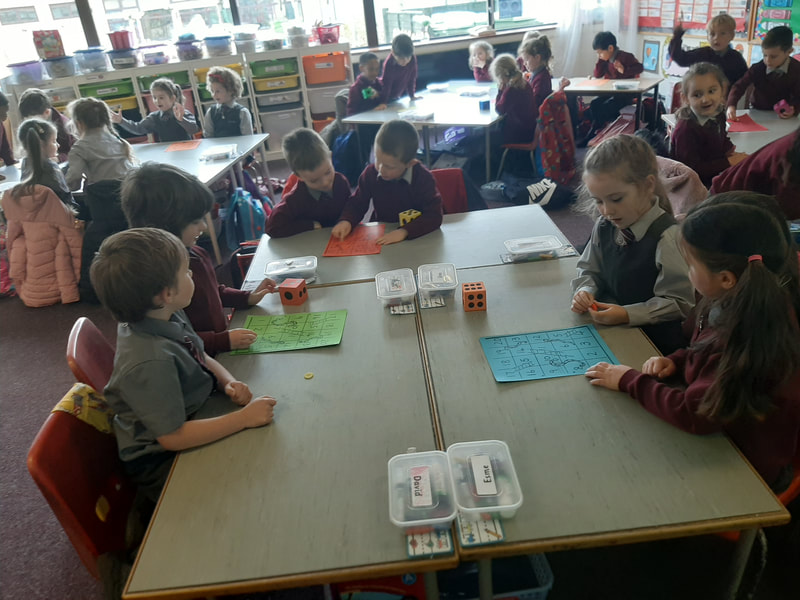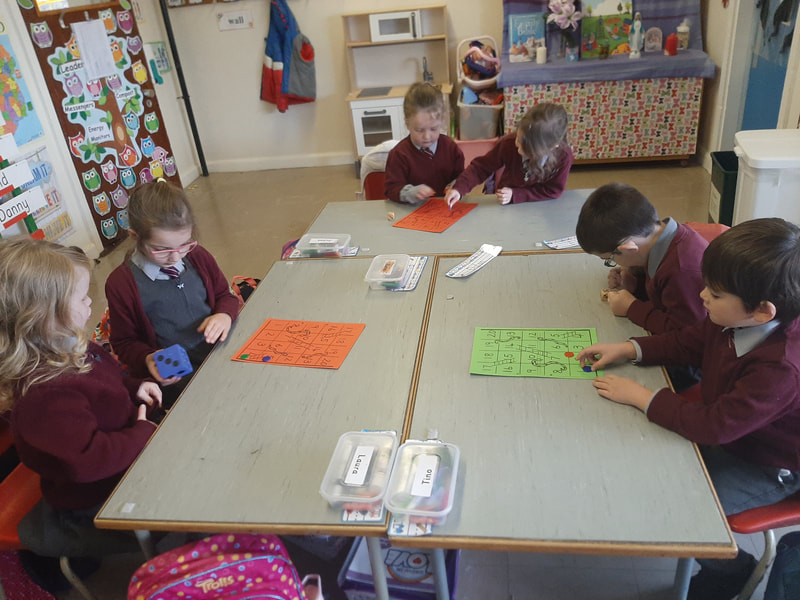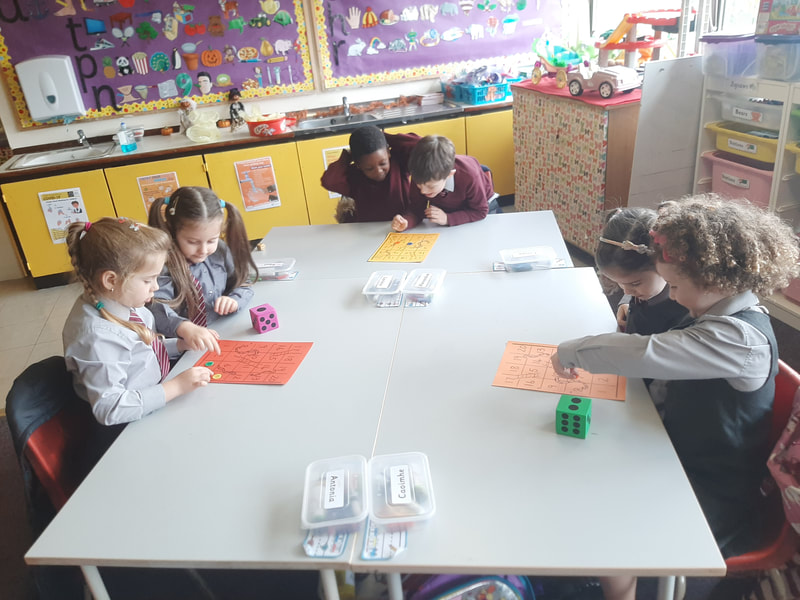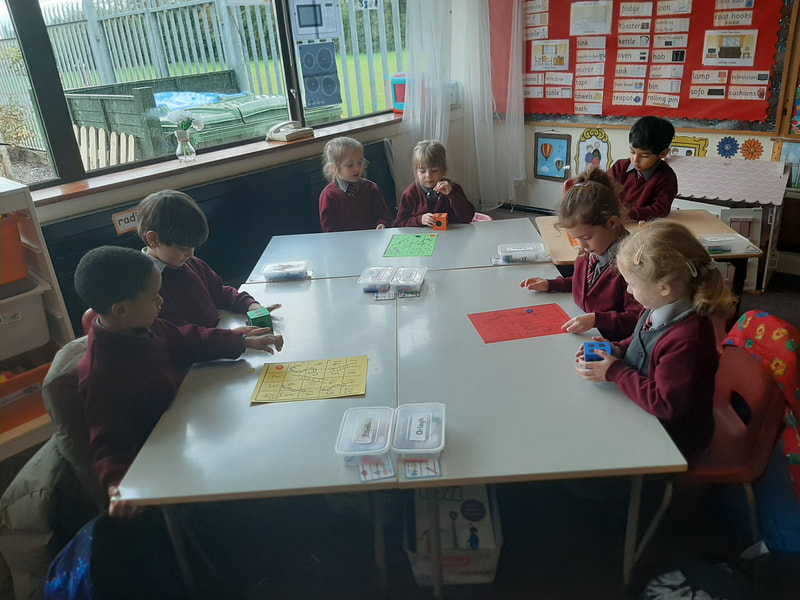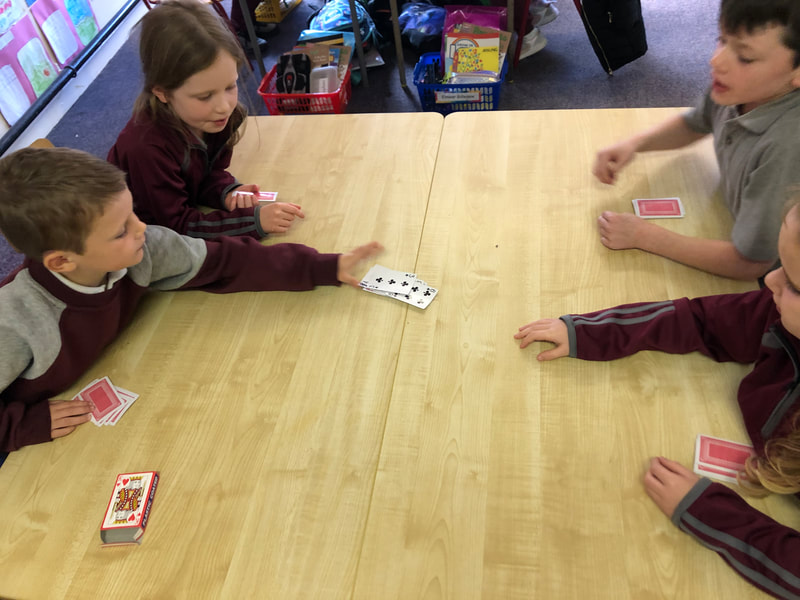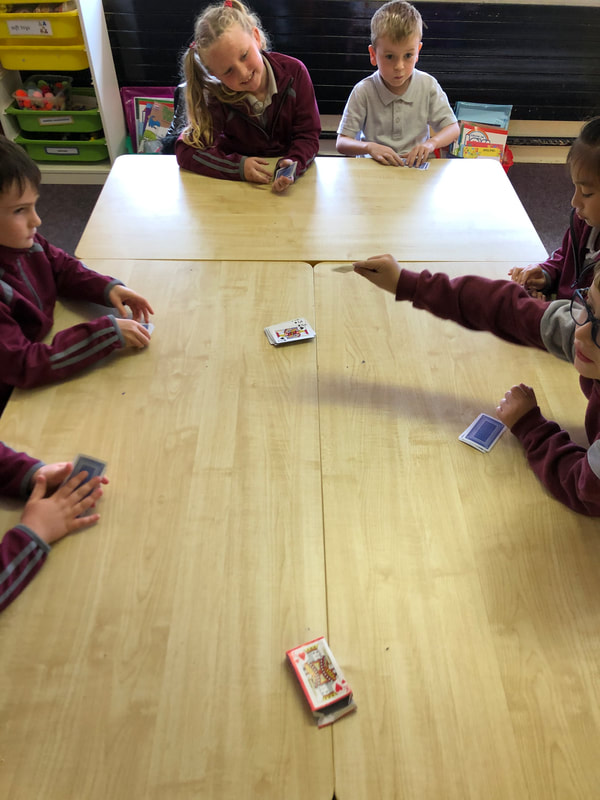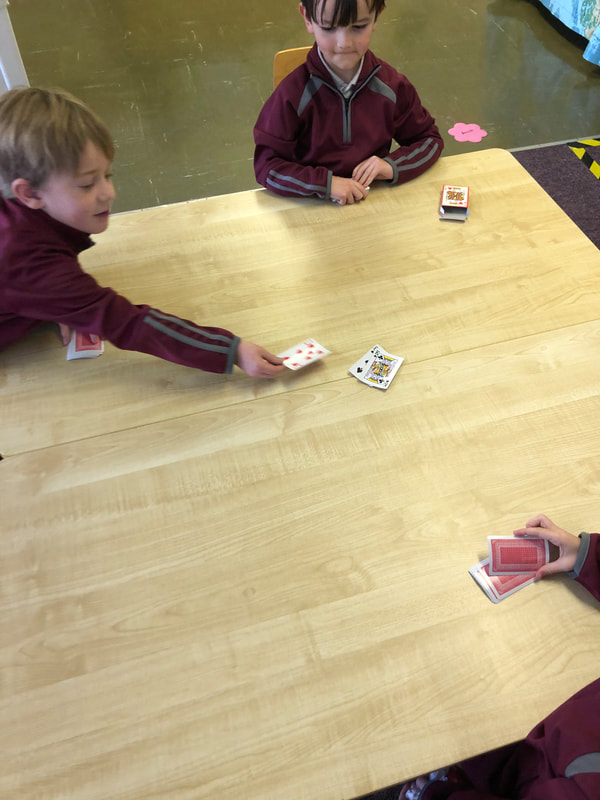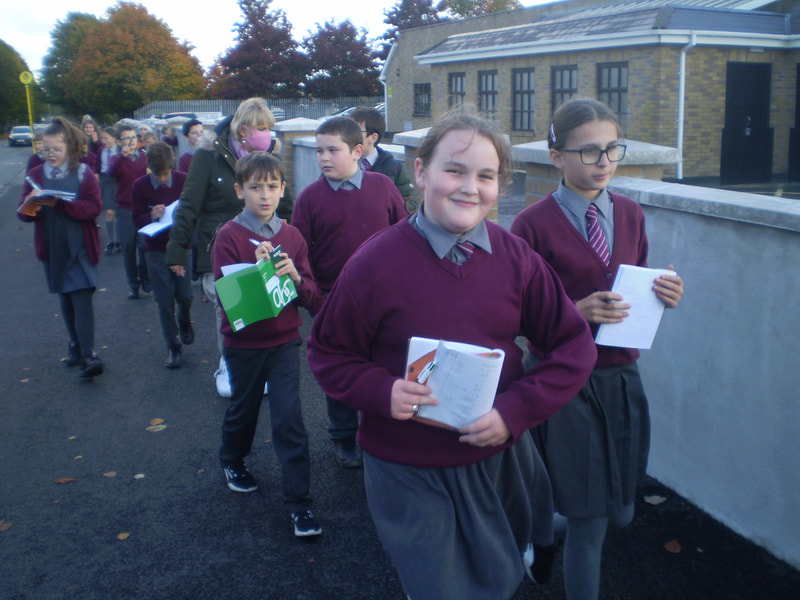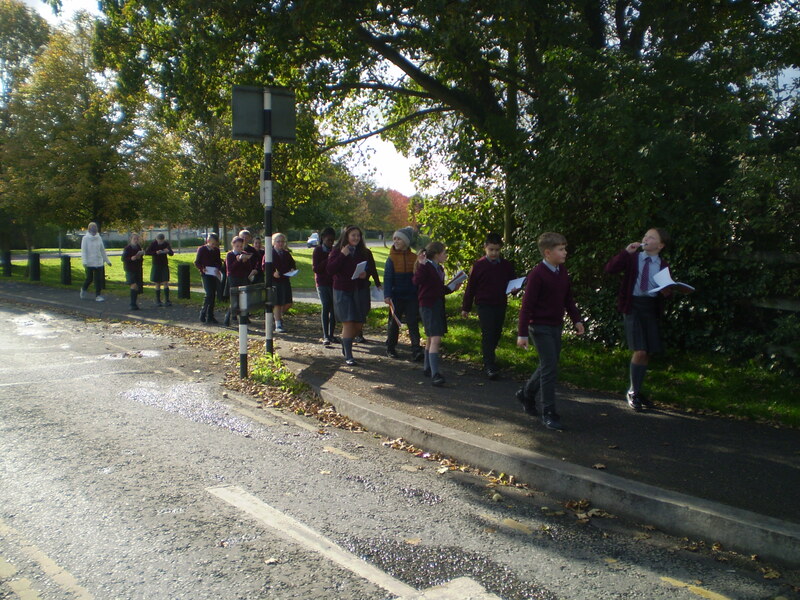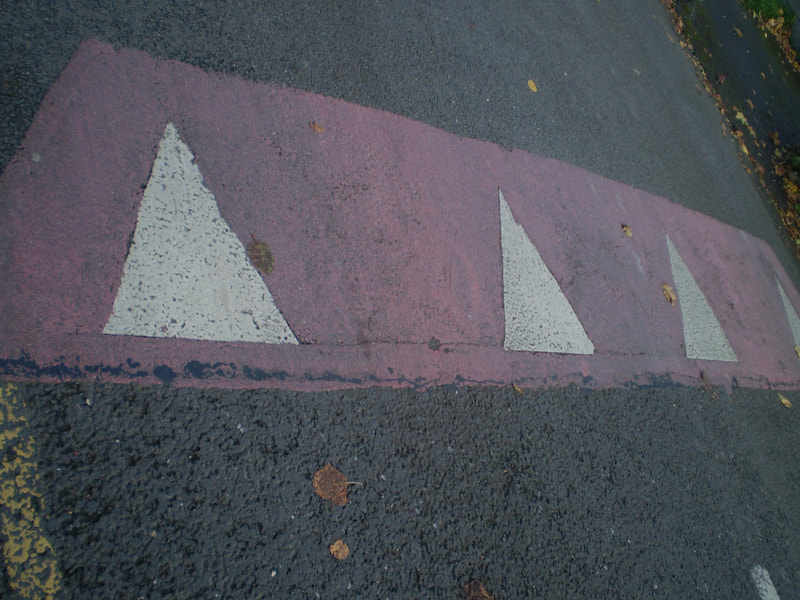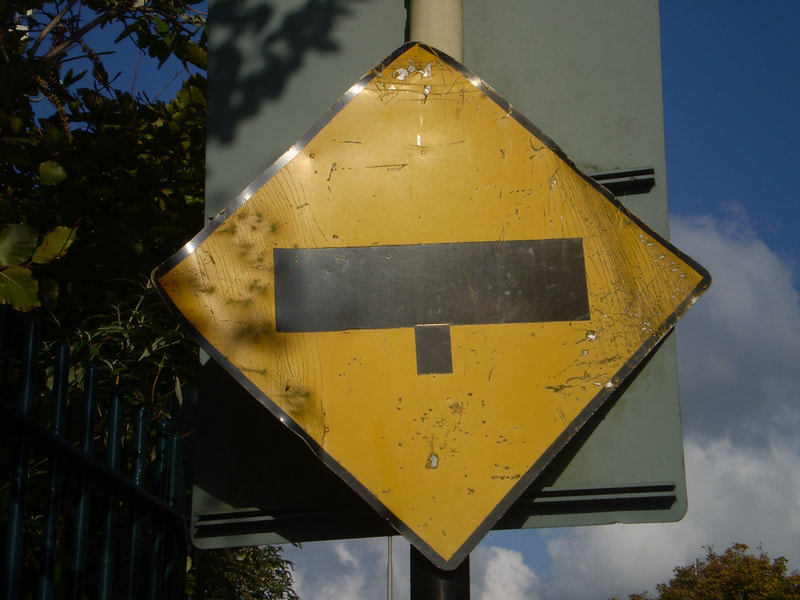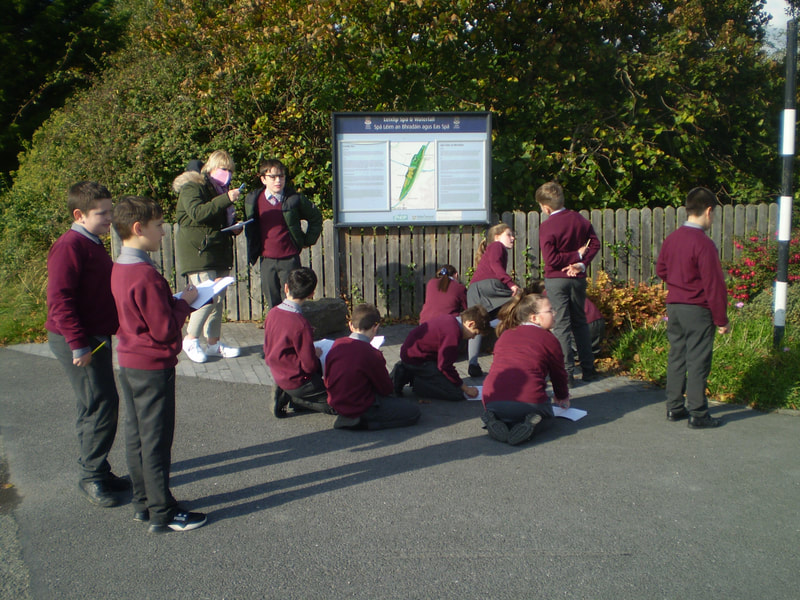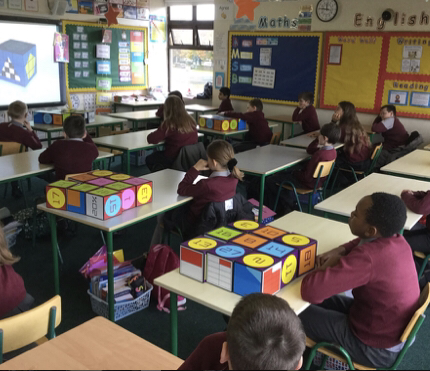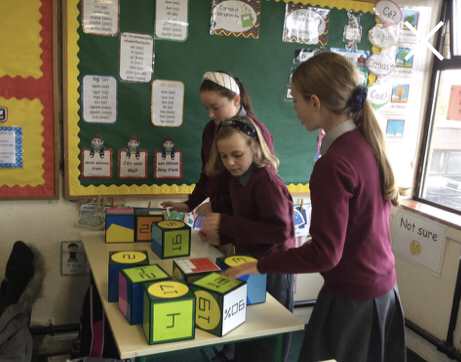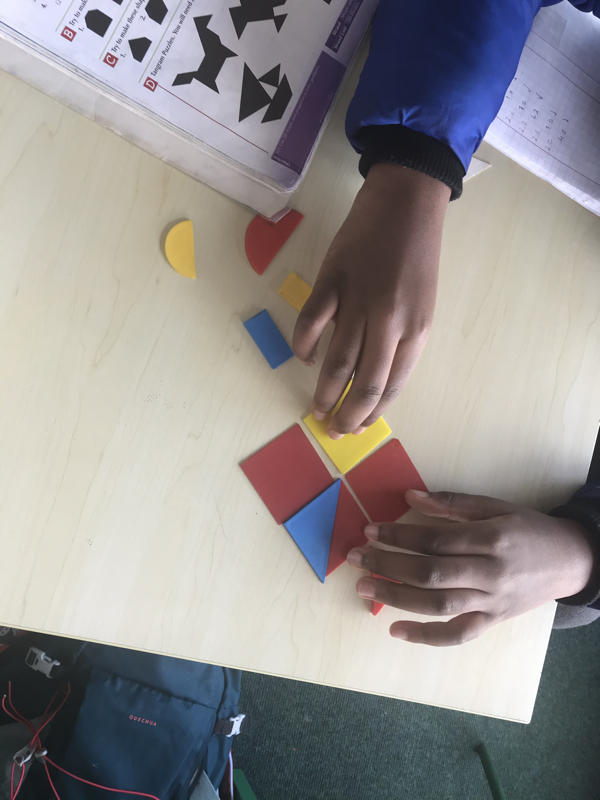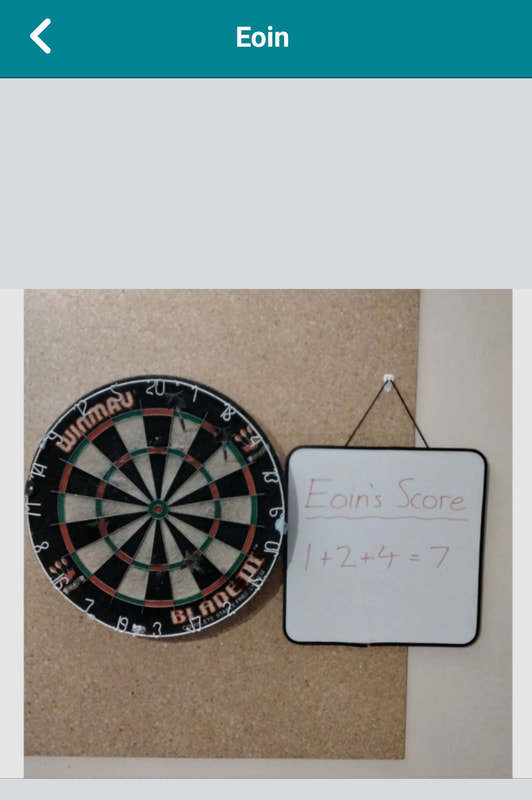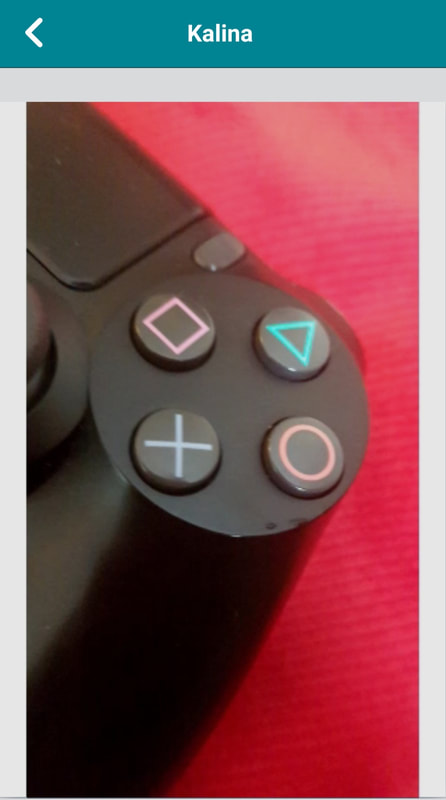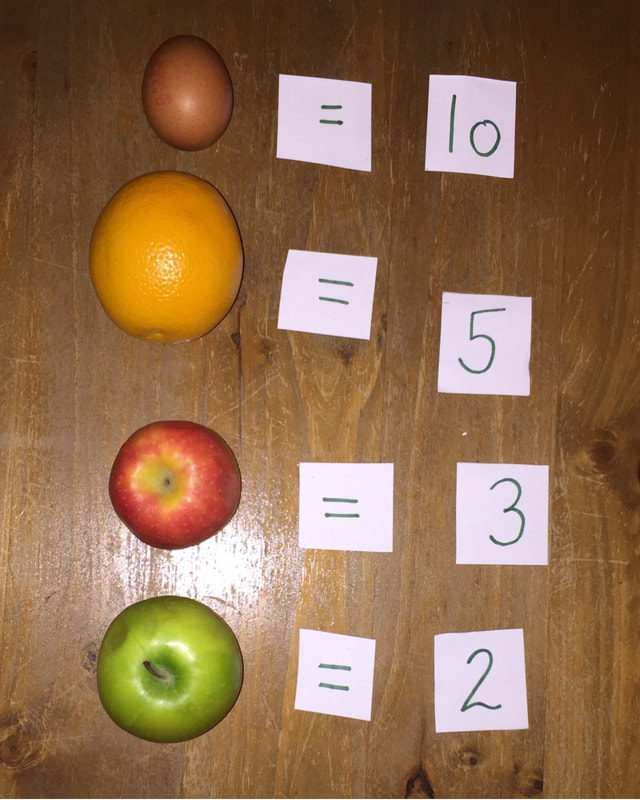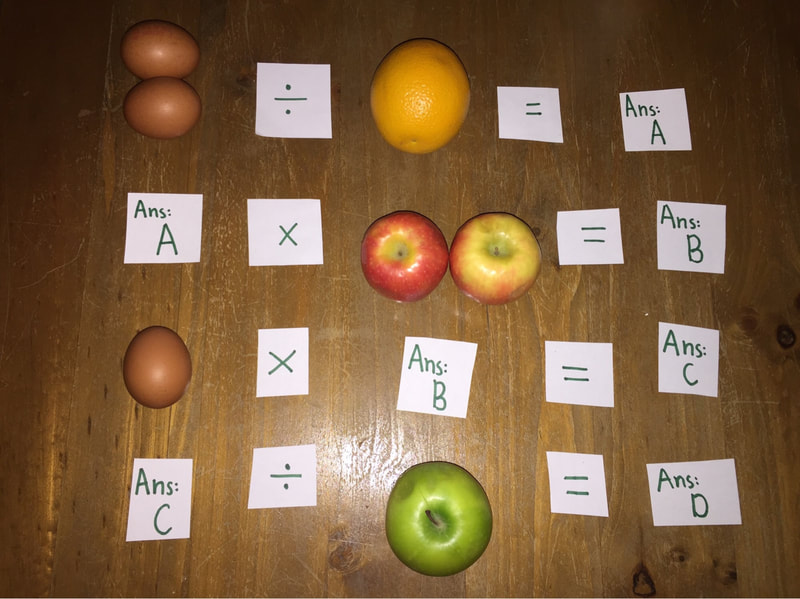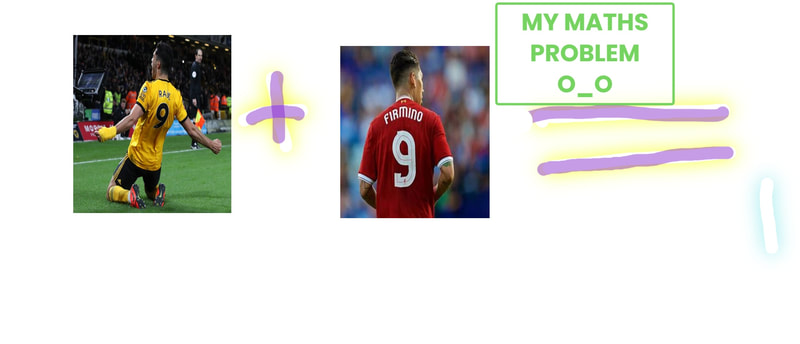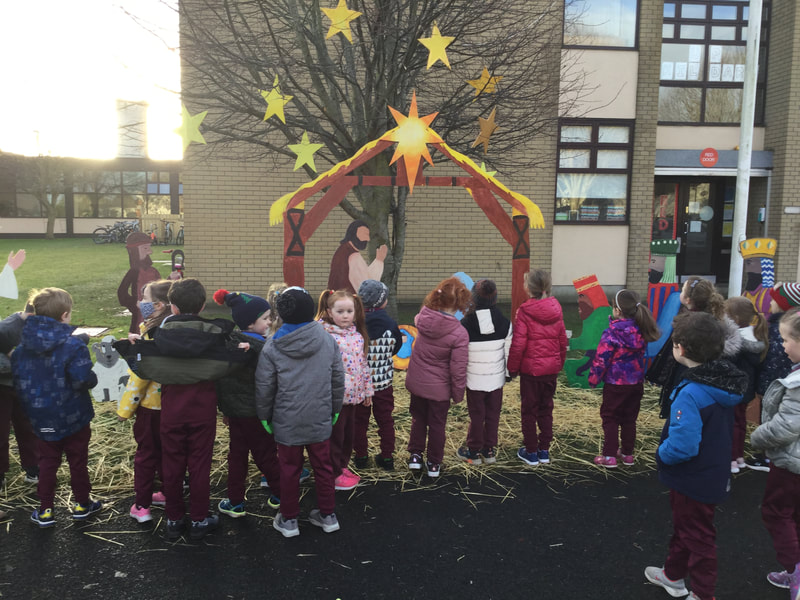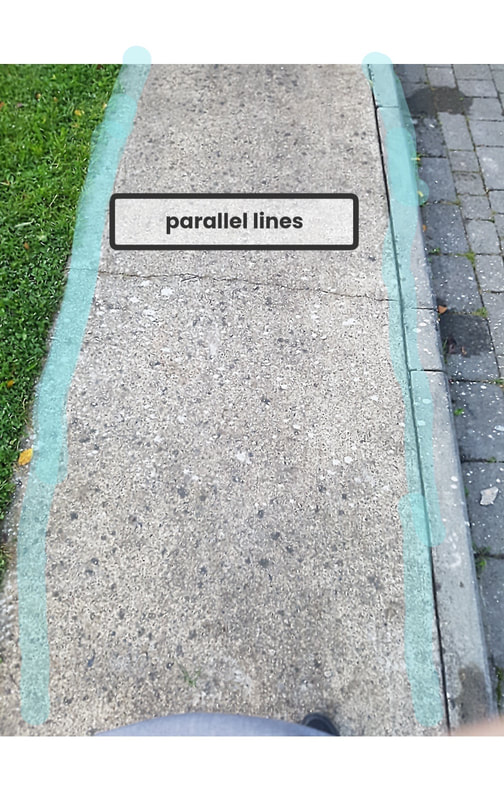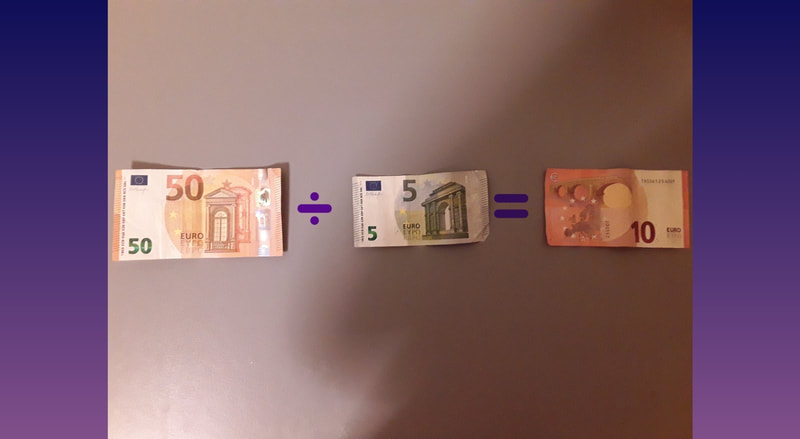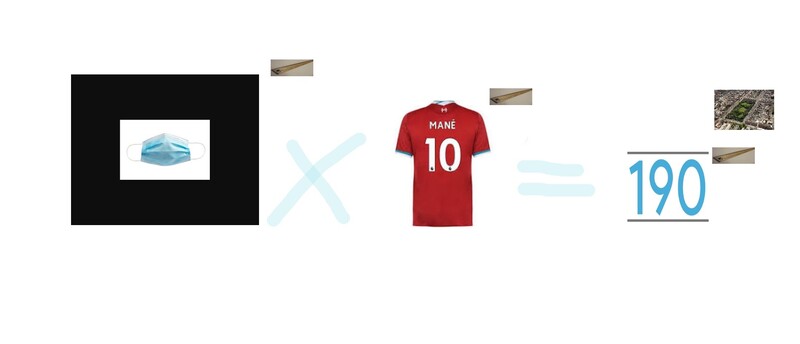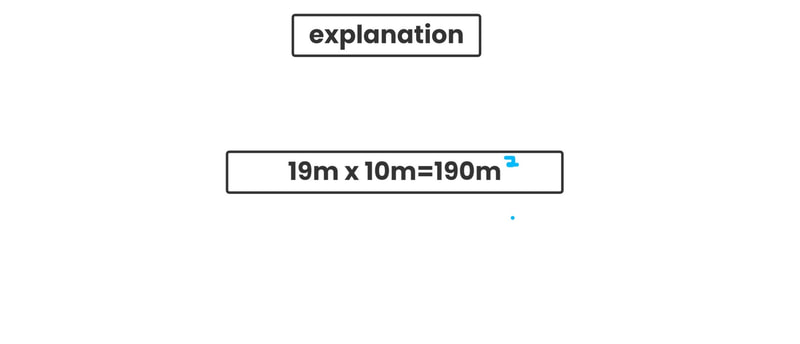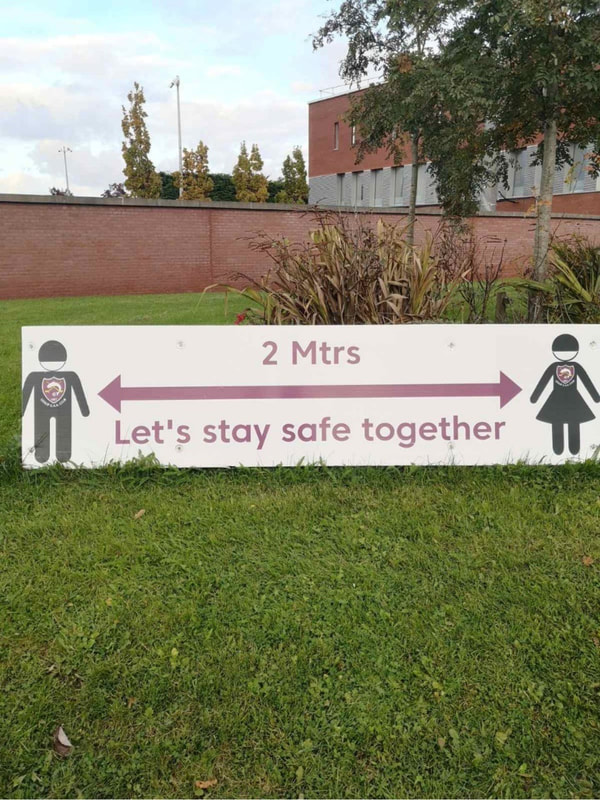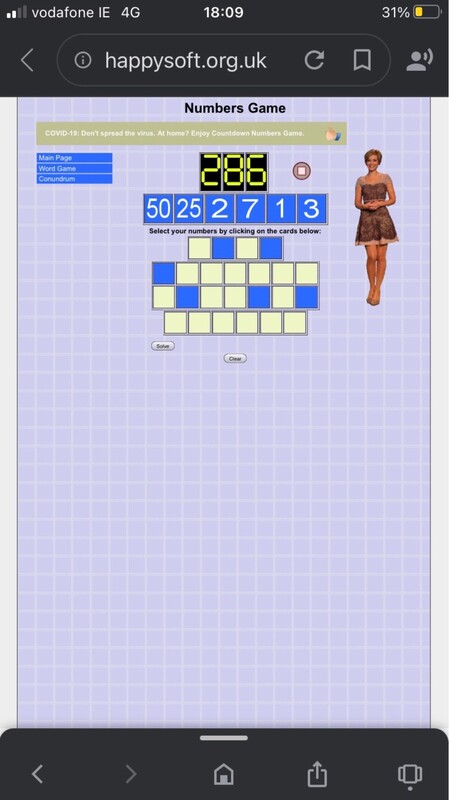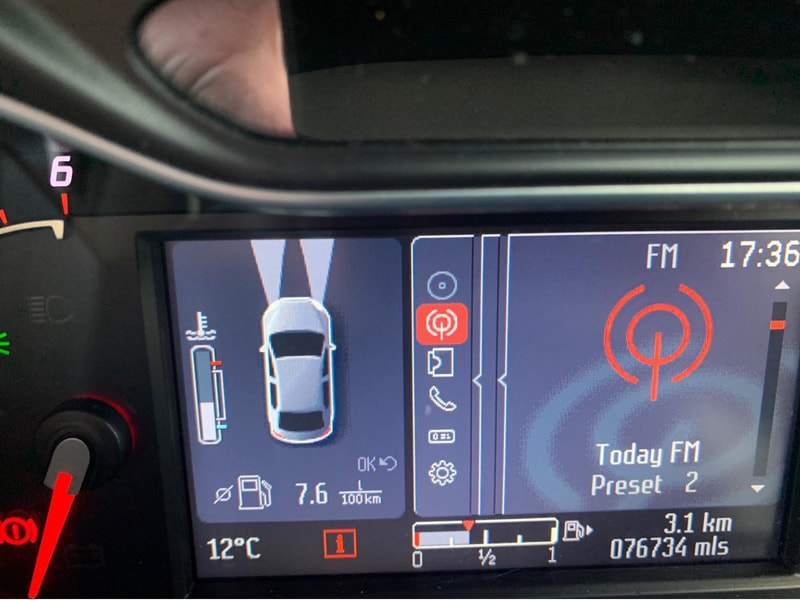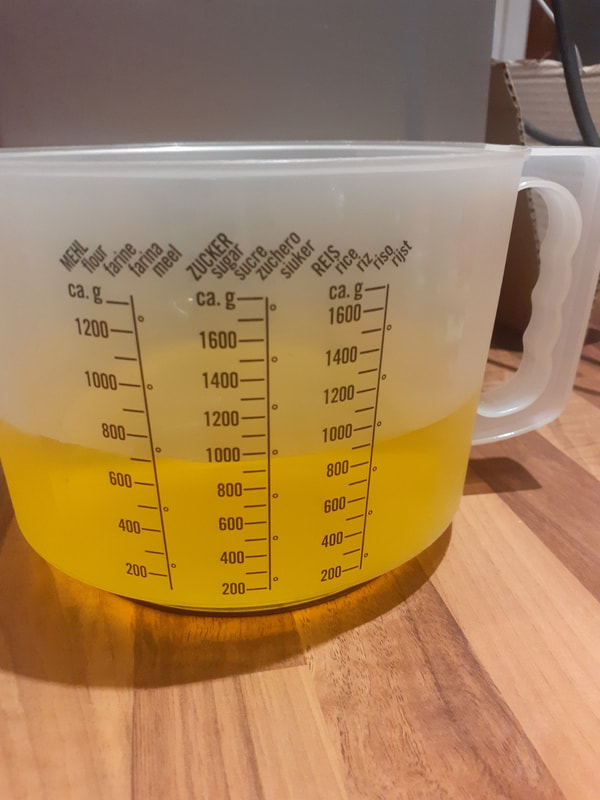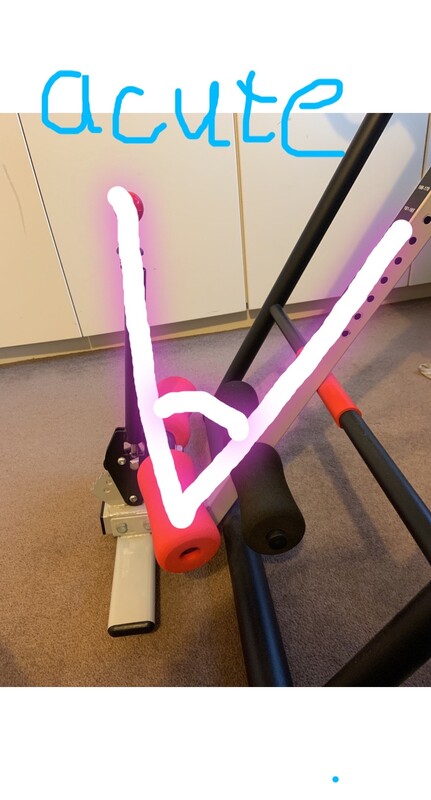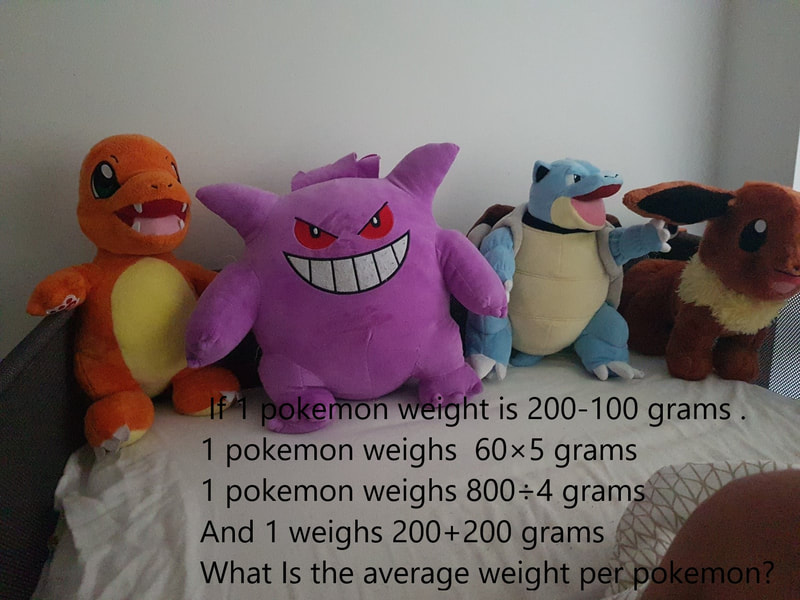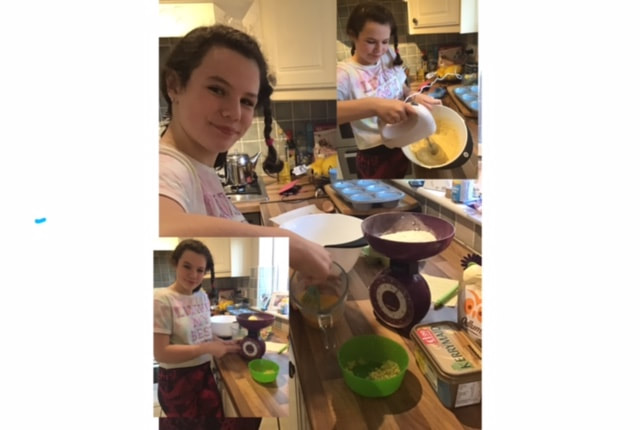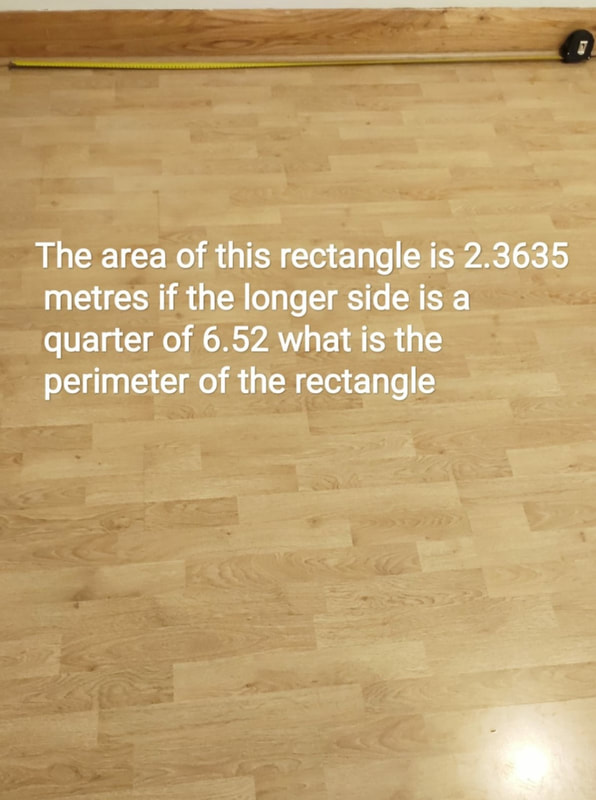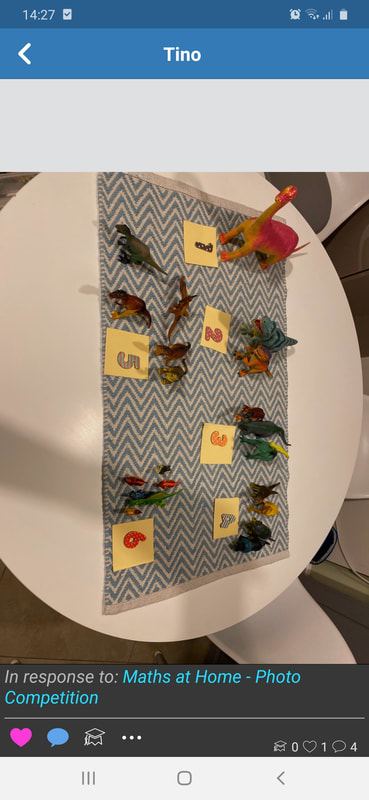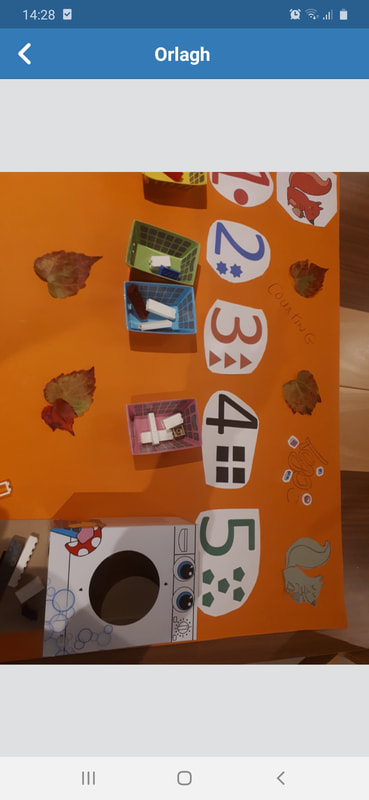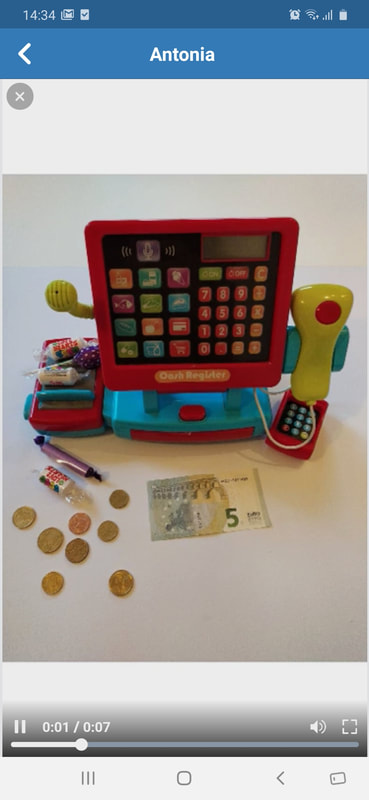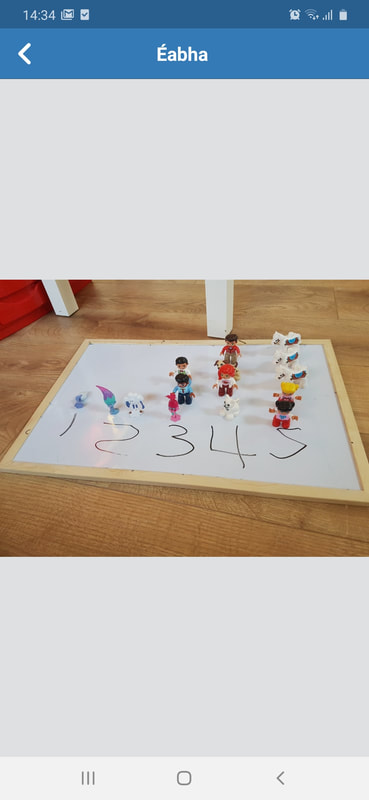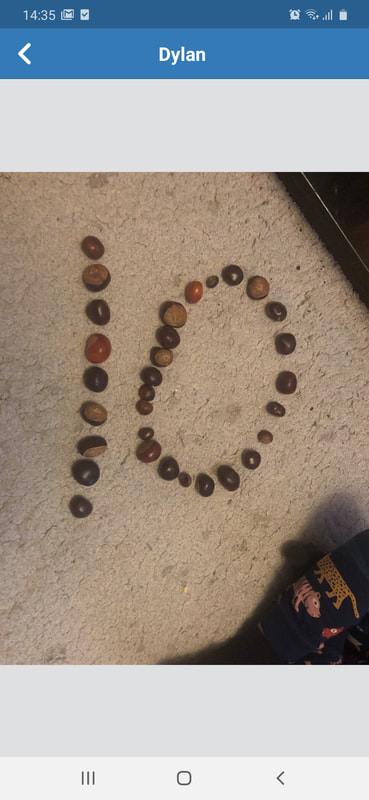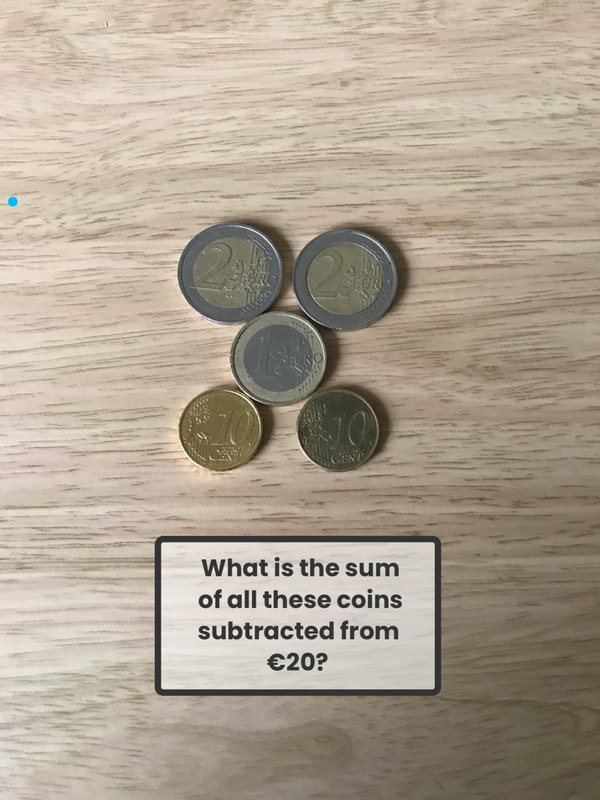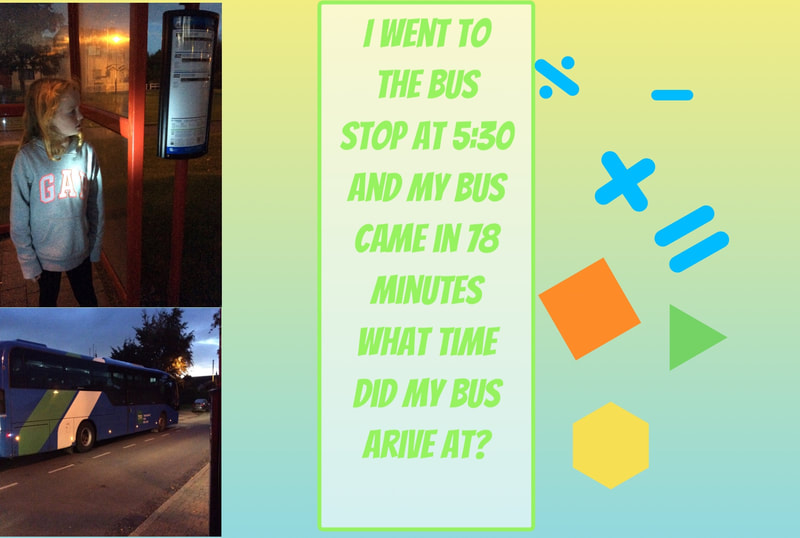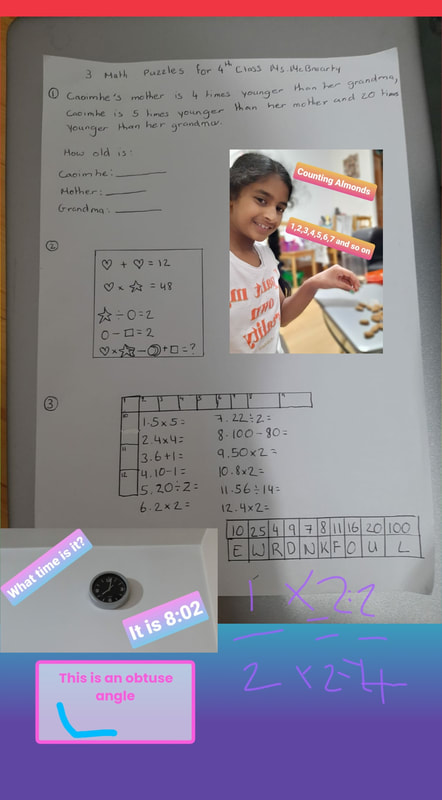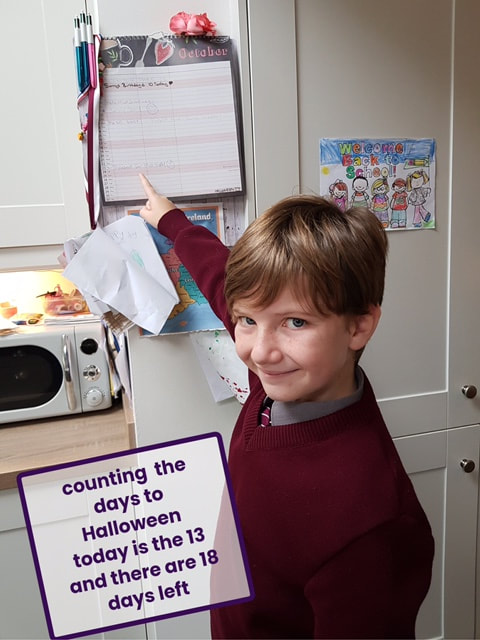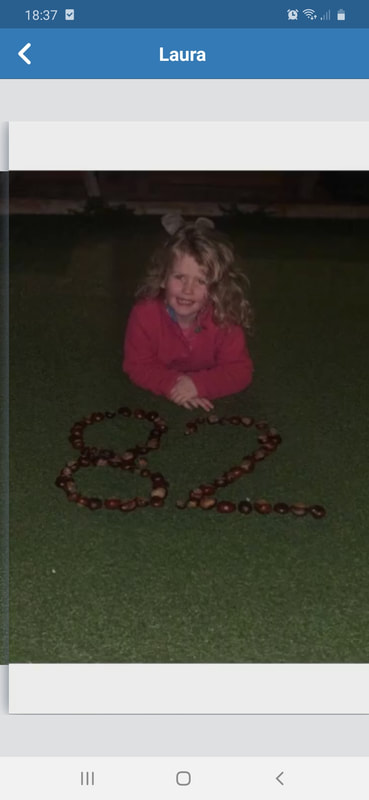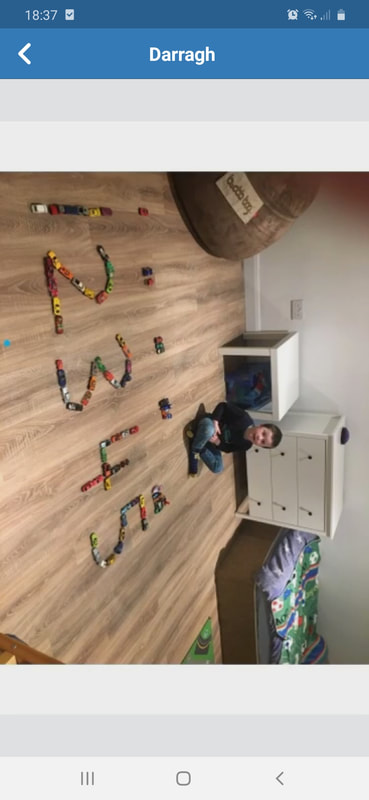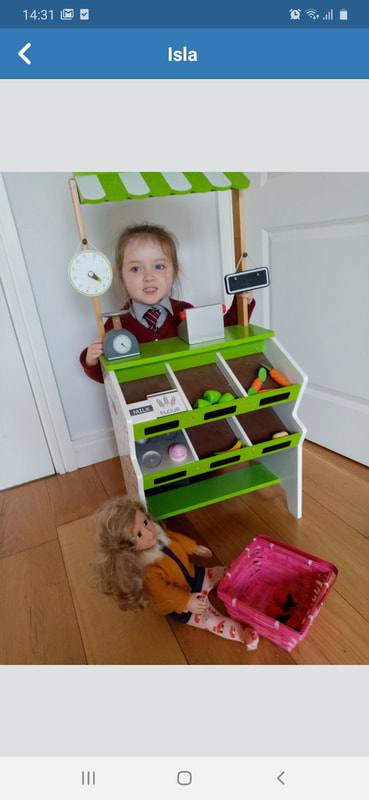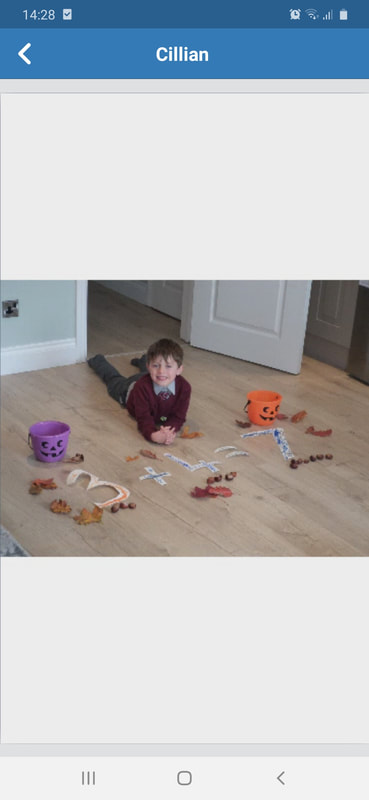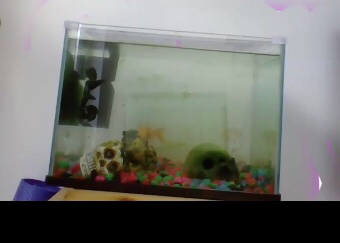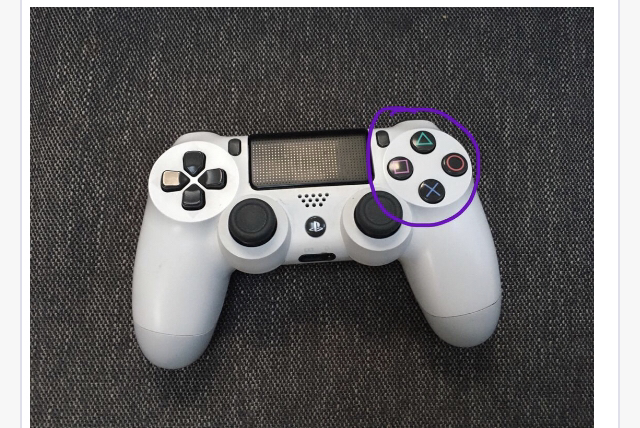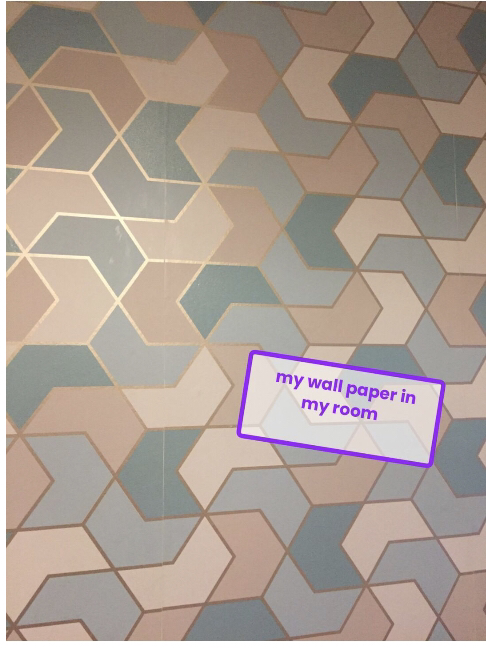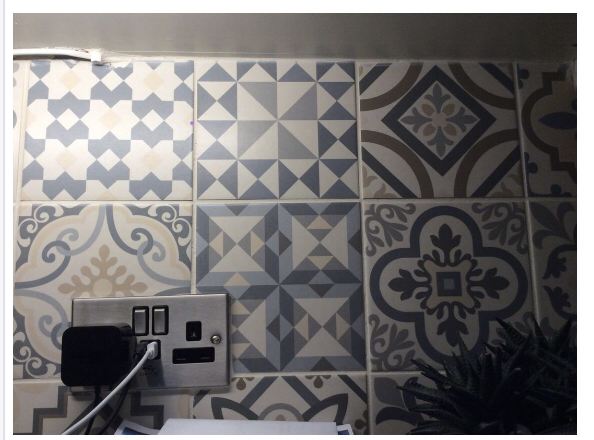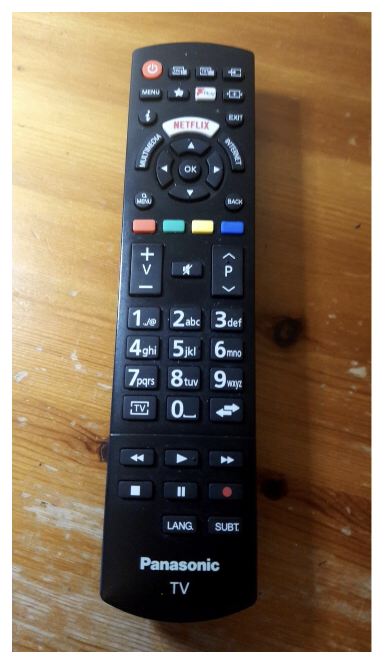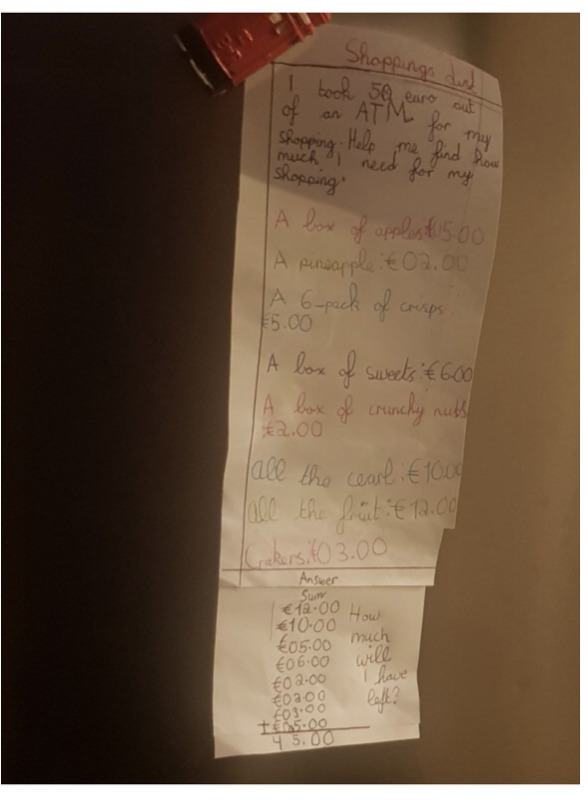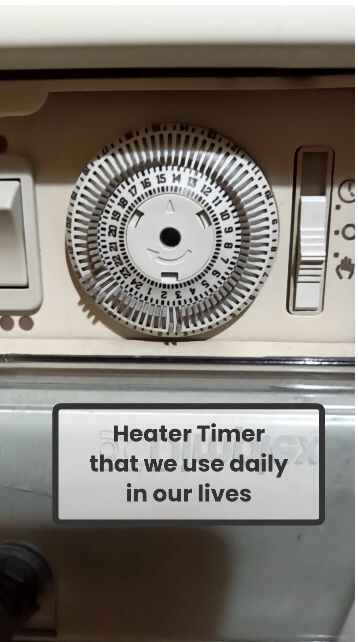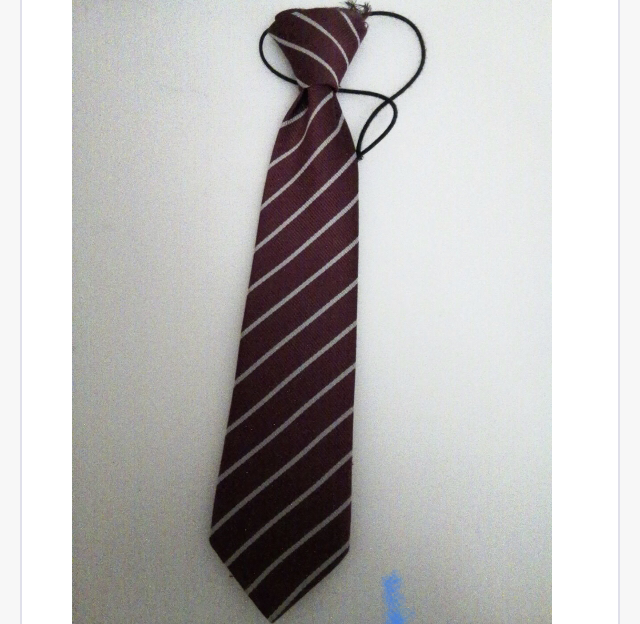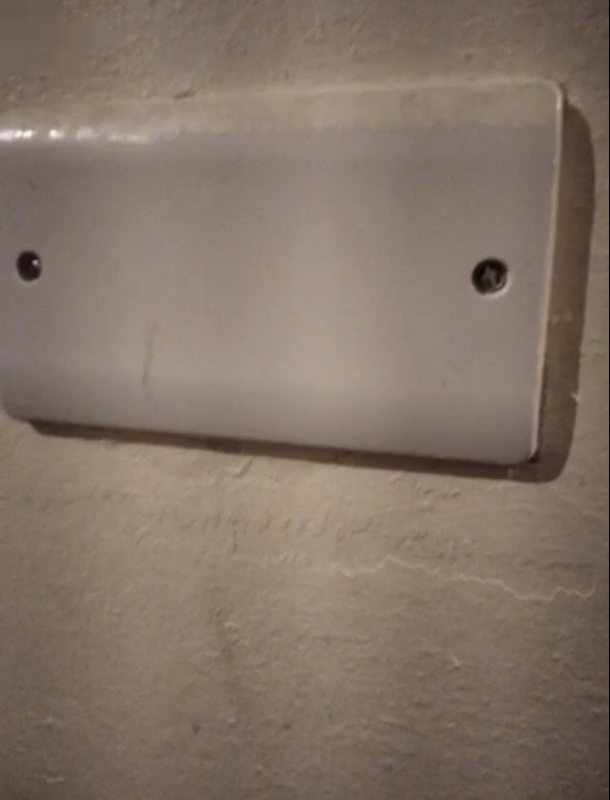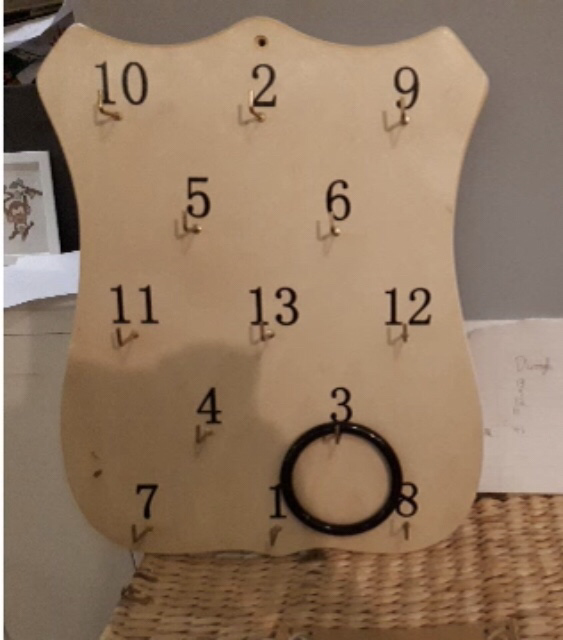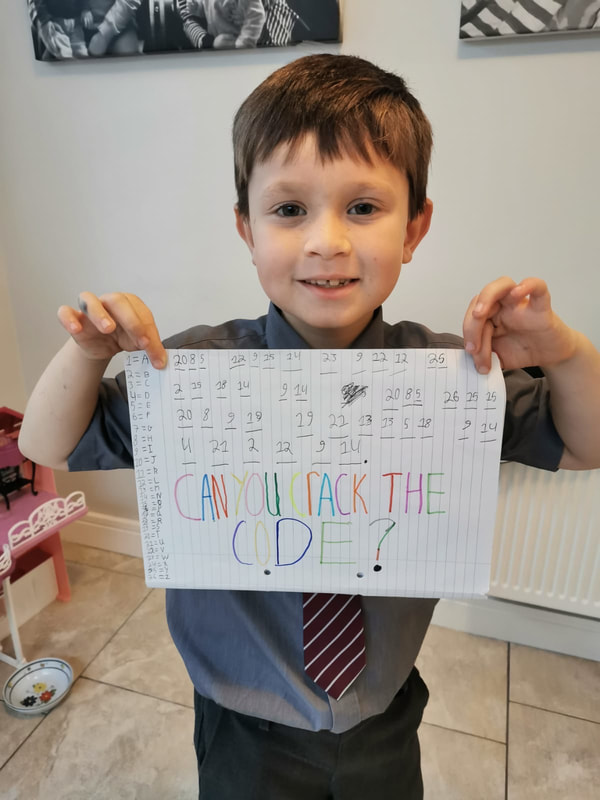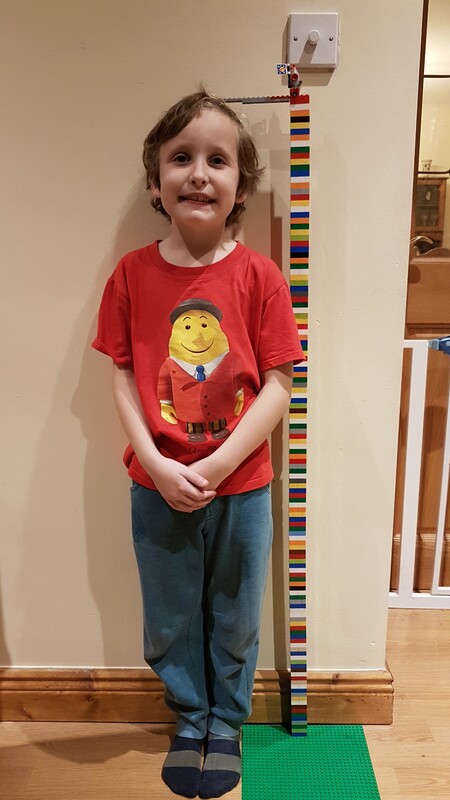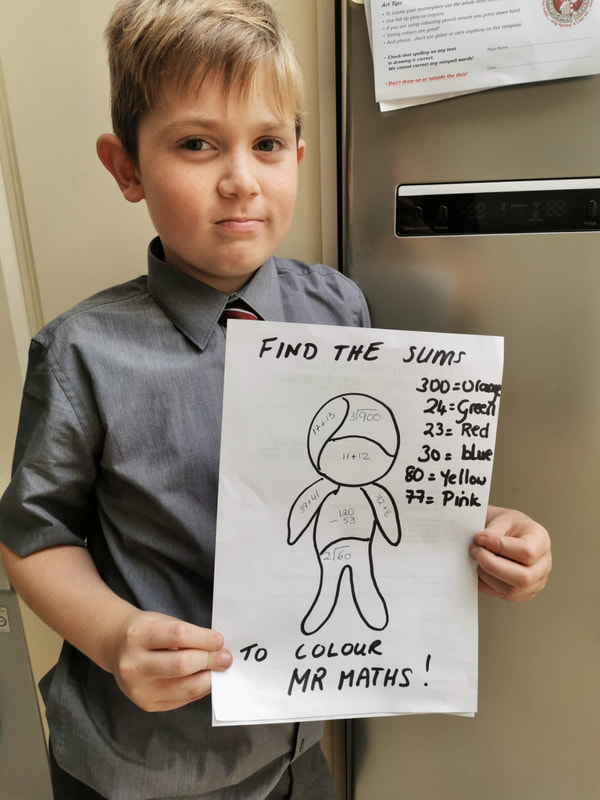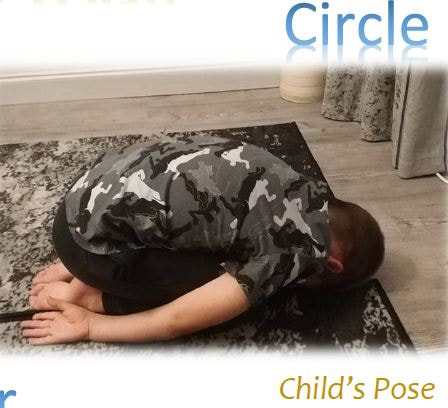We have been having great fun during maths week using our 'maths eyes', counting, creating and exploring.
Have a look at all of the activities we participated in throughout the week on our maths week page below.
Many thanks to Ms. Dowling who coordinated the week.
Have a look at all of the activities we participated in throughout the week on our maths week page below.
Many thanks to Ms. Dowling who coordinated the week.
Maths Week 2023
16th - 20th October
Be sure to have a look at the Maths Week Website
www.mathsweek.ie/2023
for great ideas, activities and
games to play at home.
for great ideas, activities and
games to play at home.
Many pupils in the school used their Maths Eyes at home to look for maths being used in the 'real world.'
Having Maths Eyes changes your view of maths from something you just do in school to something that is real and meaningful. Maths Eyes provides parents with opportunities to talk about maths outside of homework or schoolwork.
Check out these great pictures that were sent into Ms. Dowling:
|
|
|
Number Bingo
Gavin from The Rediscovery Centre completed a workshop with Third Class. They were Maths Detectives and had to solve the crime using different Maths activities.
Fourth Class surveyed some other classes and displayed the results on a bar chart.
Playing Maths Games on the IPads
Day of the Dead - 2d Shape Art
Creating 2d Shape Symmetrical Designs
Rugby World Cup Maths Problem
Fun Word Problems
Check out these Maths Week Posters and Questions
(Taken from www.mathsweek.ie/2023/maths-week-posters-2023/)
Looking at this poster... can you answer the following questions?
Have a look at this Rugby Poster and answer the questions below!
Question 1: In the pool stages, each team must play each other team in the group once. How many games are needed in each group?
Question 2: The top two in each group (8 teams) go into the quarterfinals for the knockout stage. How many games are there in the knockout stage? (There is a game between the two beaten semi-finalists to find 3rd Place team)
Question 3: A try is 5 points. If you score a try you get to take a conversion kick, which if it goes between the posts and above the crossbar gives 2 points. You can also kick penalty goals and drop goals, both of which give 3 points. How many different ways are there for a team to score 12 points?
Question 4: How many possible different orders could the group finish in (assuming there are no tied positions).
Rugby World Cup: POOL B Ireland
South Africa
Scotland
Tonga
Romania
Question 5: A rather ponderous pundit is asked for a predication for the finishing order in Group 1 in the World Cup and gives the following:
Ireland will finish ahead of Tonga.
Romania will finish two places behind Scotland.
Tonga will finish two places behind South Africa.
Scotland will finish behind Ireland.
Ireland will finish three places ahead of Tonga.
It’s not a very direct answer but can you work out the pundit’s prediction?
Question 6: In a rugby match, Team A scores 3 tries and successfully converts 2 of them. How many points did Team A score in total?
Question 7: In a knockout stage match, Team B scores 2 tries and successfully converts one of them. How many points did they earn from those scoring events?
Question 8: If a rugby team scores a total of 17 points in a match and wins by 5 points, how many tries and conversions did they score, assuming they didn't kick any penalty goals or drop goals?
Question 9: If a rugby team wins a match by scoring 24 points and they score 4 tries, how many successful conversions did they have?
Question 2: The top two in each group (8 teams) go into the quarterfinals for the knockout stage. How many games are there in the knockout stage? (There is a game between the two beaten semi-finalists to find 3rd Place team)
Question 3: A try is 5 points. If you score a try you get to take a conversion kick, which if it goes between the posts and above the crossbar gives 2 points. You can also kick penalty goals and drop goals, both of which give 3 points. How many different ways are there for a team to score 12 points?
Question 4: How many possible different orders could the group finish in (assuming there are no tied positions).
Rugby World Cup: POOL B Ireland
South Africa
Scotland
Tonga
Romania
Question 5: A rather ponderous pundit is asked for a predication for the finishing order in Group 1 in the World Cup and gives the following:
Ireland will finish ahead of Tonga.
Romania will finish two places behind Scotland.
Tonga will finish two places behind South Africa.
Scotland will finish behind Ireland.
Ireland will finish three places ahead of Tonga.
It’s not a very direct answer but can you work out the pundit’s prediction?
Question 6: In a rugby match, Team A scores 3 tries and successfully converts 2 of them. How many points did Team A score in total?
Question 7: In a knockout stage match, Team B scores 2 tries and successfully converts one of them. How many points did they earn from those scoring events?
Question 8: If a rugby team scores a total of 17 points in a match and wins by 5 points, how many tries and conversions did they score, assuming they didn't kick any penalty goals or drop goals?
Question 9: If a rugby team wins a match by scoring 24 points and they score 4 tries, how many successful conversions did they have?
This article is taken from www.mathsweek.com
Maths Teacher, Diane Murphy gives advice on how to incorporate learning in a relaxed and enjoyable way into normal household activities. Perhaps some of you are not comfortable with teaching maths to your child – methods may have changed since you were at school or perhaps you were never comfortable with maths and as a result, avoid teaching the subject at home.
We will provide 5 ways that parents can easily teach maths in a meaningful way – away from the textbook and with a hands-on approach. Children will apply their basic maths knowledge to everyday household tasks. They may not know they are doing so but they will be thinking mathematically, making links with the maths curriculum and see the relevance of maths in their everyday world.
Why is Maths Important?
Maths is an important skill for all members of society to embrace. Maths is all around; it underpins almost everything we do! Whether you are completing the household shop, doing the laundry, or preparing dinner and setting the table – mathematical thinking is involved. By including children in these everyday jobs, you provide them with material and opportunities that will encourage learning in maths. If you talk to your children about simple maths concepts such as size, weight, distance, time and counting, they can hear maths language and see how it is used. We want to give parents and carers the peace of mind that you can provide meaningful teaching and learning in maths.
1. Laundry
Sorting and grouping is the task of identifying a common feature to form a group. This basic maths skill is important in learning to organise knowledge and ideas. Children need to learn to discriminate differences, to reason and analyse, and to select items to form groups. This can be practiced very easily by asking the following questions:
Counting is one of those maths skills that can be incorporated into almost everything we do. Reinforcing the correct number sequence is important because it allows numbers to be used to describe and compare sets. You can practice this by asking the following:
2. Kitchen
The kitchen can provide lots of opportunities for rich mathematical experiences – as a parent you may be already sharing these with your children and not even knowing you are teaching the maths curriculum. Young children can help by setting the table, organising the shelves, cooking, and baking and apply the basic maths skills of sorting, grouping, matching, and counting. Develop their maths skills by asking the following when you are setting the table
SORTING:
MATCHING:
COMPARING:
COUNTING:
3. Shopping
Before leaving for the shop:
When at the shop – take photos of any special offers, try buy items that have a certain percentage free and hold on to the receipt after paying for the items.
When home:
4. Play Time
Of course, not all maths has to be applied to jobs around the house – recreational maths is maths that is carried out for entertainment and often involves mathematical puzzles and games.
5. Gardening
This activity will see older school children using problem solving strategies to create a scaled map of their garden. They will practice the skills that they have learned in the classroom and apply them to their world. They will observe their surroundings and then select and use appropriate techniques to complete this task. Children will make estimates, then accurately measure the dimensions of the garden, and present the project as a scaled map inclusive of symbols.
Children should be prompted to ask questions and make assumptions – qualities of a great mathematician!
Making progress
In summary:
Maths Teacher, Diane Murphy gives advice on how to incorporate learning in a relaxed and enjoyable way into normal household activities. Perhaps some of you are not comfortable with teaching maths to your child – methods may have changed since you were at school or perhaps you were never comfortable with maths and as a result, avoid teaching the subject at home.
We will provide 5 ways that parents can easily teach maths in a meaningful way – away from the textbook and with a hands-on approach. Children will apply their basic maths knowledge to everyday household tasks. They may not know they are doing so but they will be thinking mathematically, making links with the maths curriculum and see the relevance of maths in their everyday world.
Why is Maths Important?
Maths is an important skill for all members of society to embrace. Maths is all around; it underpins almost everything we do! Whether you are completing the household shop, doing the laundry, or preparing dinner and setting the table – mathematical thinking is involved. By including children in these everyday jobs, you provide them with material and opportunities that will encourage learning in maths. If you talk to your children about simple maths concepts such as size, weight, distance, time and counting, they can hear maths language and see how it is used. We want to give parents and carers the peace of mind that you can provide meaningful teaching and learning in maths.
1. Laundry
Sorting and grouping is the task of identifying a common feature to form a group. This basic maths skill is important in learning to organise knowledge and ideas. Children need to learn to discriminate differences, to reason and analyse, and to select items to form groups. This can be practiced very easily by asking the following questions:
- Can you make a pile of all the towels?
- Can you make a pile for colours, a different pile for dark colours and another pile for the whites?
- Match pairs of socks. (identical objects)
- Match pyjama tops and bottoms. (related objects)
- Do we have more black socks or more white socks?
- Who do you think has the most t-shirts in the washing basket – you or me? Let us check and see!
- Is this white towel the same as that white towel? (Bigger, smaller, longer, shorter)
- Build another pile of socks with the same number of socks as this one
Counting is one of those maths skills that can be incorporated into almost everything we do. Reinforcing the correct number sequence is important because it allows numbers to be used to describe and compare sets. You can practice this by asking the following:
- How many towels are on the line?
- How many pairs of socks have we matched? (push them aside while counting)
- How many clothes pegs do we have?
- How many clothes pegs do you think we will need to hang three towels?
2. Kitchen
The kitchen can provide lots of opportunities for rich mathematical experiences – as a parent you may be already sharing these with your children and not even knowing you are teaching the maths curriculum. Young children can help by setting the table, organising the shelves, cooking, and baking and apply the basic maths skills of sorting, grouping, matching, and counting. Develop their maths skills by asking the following when you are setting the table
SORTING:
- Ask your child to sort the place mats, depending on colour or size
- Give all the cutlery to the child and ask them to separate them into different groups – forks, spoons, knives etc and get them to talk about their arrangements
- Get them to gather all the plastic plates together
MATCHING:
- Match this fork with another fork exactly like it
- Match this napkin to one exactly like it
- Each person at the table should have a knife and a fork – will you place one fork and one knife at each setting
- Pop an unlit nightlight into each candle holder
- Every chair should have one cushion on it, can you find a chair with more than one cushion?
- Everyone has ice in their glass – can you spot someone who has more ice than you?
COMPARING:
- What is different between Dad’s slice of bread and yours?
- Investigate the different sizes of serving bowls on the table
- Demonstrate the portion sizes: big portion for parents, medium portion for children, small portion for baby
COUNTING:
- How many people will be sitting at the table tonight?
- How many cups are on the table? When you are placing cups on the table count them as you do so.
- How many more do we need?
- Ask the child to give two slices of bread to everyone
- Count out enough spoons for everyone for dessert
- Estimate how many cookies are in the jar (less than 20), count them and check.
3. Shopping
Before leaving for the shop:
- Sort the cupboards by matching similar objects and identifying anything low in stock or excess stock.
- Group all the sauces together and arrange them in order of size, colour, shape
- Compare items according to length, width, height, weight, quantity, thickness, or size
- Classify the shopping list in terms of Dairy, Meat, Sweets and goodies, fruit, veg – discuss where each item should go, (add items to clearly defined set)
- Ask children to count how many items are on the veg list – compare that to the goodies list – discuss
- For older students encourage them to work with budgets. Give them a list of items that the house needs and a budget to work with – encourage research through catalogues and through internet searches.
When at the shop – take photos of any special offers, try buy items that have a certain percentage free and hold on to the receipt after paying for the items.
When home:
- Ask younger children to count how many shopping bags you have
- Ask them to help sort the shopping into piles for fridge, cupboard, bathroom.
- Estimate how much the shop came to
- Give older students the receipt with the totals removed – ask them to estimate the total cost by rounding to the nearest euro or pound. Show actual total and calculate percentage difference x 100
- With the items that came with a certain percentage free – ask the child to calculate how much of the product is free?
- Show picture of deals on offer in the shop. What does 3 for the price of 2 mean? what is 50% extra free? Is it better to buy a big jar or two small jars?
- Show a receipt from the petrol station – if petrol is €1.42 per litre and you spent €30 how many litres did get? If a full tank takes 65 litres how much would that cost? If you travel 17 km to shops at an average of 60km per hour – how long will it take you to travel to shops?
4. Play Time
Of course, not all maths has to be applied to jobs around the house – recreational maths is maths that is carried out for entertainment and often involves mathematical puzzles and games.
- Provide toys that encourage your child to explore maths concepts: card games, puzzles, dominoes, board games with dice, blocks, tangrams. Many of the maths week daily activities involve coins, cards and dice.
- Play games of make-believe that involve maths ideas. For example, playing shop involves counting items and money. Playing doctor’s and nurses encourages taking temperature and measuring height and weight. Playing post office provides opportunities to organise envelopes, boxes, and tubs by size.
- Incorporate arts and crafts into the maths lesson. Check out the maths week’s daily activities for loads of fun maths activities that your family can do with everyday things that you might have at home…. and a little imagination.
5. Gardening
This activity will see older school children using problem solving strategies to create a scaled map of their garden. They will practice the skills that they have learned in the classroom and apply them to their world. They will observe their surroundings and then select and use appropriate techniques to complete this task. Children will make estimates, then accurately measure the dimensions of the garden, and present the project as a scaled map inclusive of symbols.
Children should be prompted to ask questions and make assumptions – qualities of a great mathematician!
Making progress
- By planting these seeds of mathematical thinking from an early age means that your child will be more likely to grow to love and appreciate the subject.
- Negative attitudes towards maths can seriously impair progress and these activities are a fun, no-pressure way of promoting a positive attitude towards the subject (and keep young people occupied).
- Wherever possible, try to draw on the children’s interests. For example, if they love to play with Lego then be sure to try incorporate Lego into the maths learning whenever possible (measure, geometry, statistics, etc)
In summary:
- Be positive about maths, even when you are finding it difficult. As a parent you are the most important influence on students. Maths can be challenging but that is why people love it. Encourage a growth mindset (link) and reward effort and resilience rather than speed and intelligence.
- Show your children that maths is all round, make maths part of your everyday lives. Encourage curiosity and do not worry about not knowing the material yourself – share the struggle with your child, work through it together. Getting over the struggle is where the magic happens.
- Make maths fun! Play games that involve numbers and calculations and where possible draw on your child’s interests.
Maths Week 2022
17th - 21st of October
We Love Maths!
Our Raffle and Estimation Winners!
Scoil Mhuire's Photo Competition
The theme for the competition was ‘Maths For All’
… so everyone had to think of the different times they use maths in
their everyday life and take a picture of it.
A total of 89 children sent in a Maths photo - Well Done!
All of these children received a raffle ticket.
… so everyone had to think of the different times they use maths in
their everyday life and take a picture of it.
A total of 89 children sent in a Maths photo - Well Done!
All of these children received a raffle ticket.
Ms. Doran's Class Love Maths!
Ms. O'Callaghan's Class - Number 6
Ms. McCormack's Class played 'Closer to the Target' & 'Compare to Win'
Ms. Milner's Class - Making Shapes in P.E.
Ms. O'Dea's - Made 'Shapenteins'
Whole School - Distance
Every class ran laps of the yard for 10 minutes. They calculated the total number of laps completed by the class. They estimated what the whole school total might be!
The whole school ran an amazing 2010 laps over the week! Was your estimation close?
The whole school ran an amazing 2010 laps over the week! Was your estimation close?
Ms. Doyle's Fourth Class - Maths Games on the Ipad
Ms. McCormack's Class - Calendars
Ms. Flynn's Class - Daily Maths Puzzles
Ms. Haughney's Class - Figure Me Out
Whole School - Estimation
Every child in the school had to estimate how many conkers were in the box. There were two different boxes - one for the junior end of the school and one for the senior end. The closest estimations won a prize.
Junior Box - 101 conkers
Senior Box 166 conkers
Junior Box - 101 conkers
Senior Box 166 conkers
Ms. Milner's Class - Sudoku
Maths Trails
Many classes in the school went on a Maths Trail during the week.
Both Fourth Classes - Tangrams
Ms. O'Dea's Class - Made Patterns and Played Maths Games
Maths Poster
Taken from www.mathsweek.com
You can use this poster to explore maths with children. Playing games with children will help them develop a positive attitude towards maths. This can help develop mathematical thinking such as counting, comparing, sorting and spatial relations. Here are some suggestions:
Counting: How many of each creature can you see? How many striped fish can you find?
Matching: Can you find sea creatures that are the same?
Comparing: For example, are there more Dolphins or Starfish?
Construction/ Art and Craft / Creativity: Can you construct this scene at home or at school?
It does not need to be exactly the same but it should have the main elements. Perhaps youhave ideas of things that can be added. Work by yourself or with a friend or group.
What will you use as the background? Perhaps a box to make a diorama, or a page to make a collage or picture.
What can you use to make the fish? Can you make different sizes, types and colours of fish?
How will you make seaweed? Will all your seaweed look the same, or will they be different?
Will you add any people figures? Perhaps a diver, a pirate, an explorer or a mermaid.
Spatial Awareness – Measures: Talk about the creatures. Which ones are Colourful / Short / Long / Big / Small.
Can you see a creature that is longer / shorter / bigger / smaller than a chosen example?
Spatial Awareness – Positional Language: Talk about where different object are. For instance behind the seaweed / above another creature,/etc. Ask where a particular creature is located. Children must tell where the creature is by using positional language. For example using above / between / behind / on the left/ at the top /etc.
Describe where a particular animal is and ask the children to identify it. For example, “I’m thinking of a creature. It is behind a bubble. “
You can use this poster to explore maths with children. Playing games with children will help them develop a positive attitude towards maths. This can help develop mathematical thinking such as counting, comparing, sorting and spatial relations. Here are some suggestions:
Counting: How many of each creature can you see? How many striped fish can you find?
Matching: Can you find sea creatures that are the same?
Comparing: For example, are there more Dolphins or Starfish?
Construction/ Art and Craft / Creativity: Can you construct this scene at home or at school?
It does not need to be exactly the same but it should have the main elements. Perhaps youhave ideas of things that can be added. Work by yourself or with a friend or group.
What will you use as the background? Perhaps a box to make a diorama, or a page to make a collage or picture.
What can you use to make the fish? Can you make different sizes, types and colours of fish?
How will you make seaweed? Will all your seaweed look the same, or will they be different?
Will you add any people figures? Perhaps a diver, a pirate, an explorer or a mermaid.
Spatial Awareness – Measures: Talk about the creatures. Which ones are Colourful / Short / Long / Big / Small.
Can you see a creature that is longer / shorter / bigger / smaller than a chosen example?
Spatial Awareness – Positional Language: Talk about where different object are. For instance behind the seaweed / above another creature,/etc. Ask where a particular creature is located. Children must tell where the creature is by using positional language. For example using above / between / behind / on the left/ at the top /etc.
Describe where a particular animal is and ask the children to identify it. For example, “I’m thinking of a creature. It is behind a bubble. “
Give these Maths Puzzles a go!
Maths Week 2021
18th - 22nd of October
18th - 22nd of October
Monday: Estimation
Some classes practised their estimation skills.
Tuesday: Games
Many classes in the school played different types of maths games. They included online games, card games, hopscotch, dice games and 'Snakes and Ladders.'
Here's a great game to play at home:
Twenty Wins (Taken from www.mathsweek.ie/2021/maths-at-home-activities)
Students will develop their number sense as they try to reach a total of 20, by taking it in turns to encircle a number from 1 to 9 and adding these figures to the sum of the previous figures. They must try reach 20 themselves but also prevent their opponent from reaching 20.
What you will need: Paper, Coloured Pencils, 2 players
Instructions
Here's a great game to play at home:
Twenty Wins (Taken from www.mathsweek.ie/2021/maths-at-home-activities)
Students will develop their number sense as they try to reach a total of 20, by taking it in turns to encircle a number from 1 to 9 and adding these figures to the sum of the previous figures. They must try reach 20 themselves but also prevent their opponent from reaching 20.
What you will need: Paper, Coloured Pencils, 2 players
Instructions
- Create a number line from 1 to 9 – space the numbers some distance from each other on the page.
- Assign a different colour pencil to each player.
- Players take it in turns to encircle a number using their coloured pencil and add these figures to the sum of their previous choices – once a number has been encircled it cannot be used by the other player
- Players must try to reach 20 themselves but also prevent their opponent from reaching 20.
- If nobody can reach 20 exactly then the player who is closest to 20 wins.
- Create a record table to keep score
Wednesday: Distance
A few classes ran laps around the entire yard. Each child had to count the number of laps that they did. The teacher calculated the total of laps that their class did (some counted using tally marks on the board!). Each lap is equal to 200m. So each class was able to calculate how far they had ran altogether. Ms. Dowling and her maths group were able to add up the totals from the entire school to see how far the school ran!
Thursday: Maths Trails
Many classes completed maths trails. They explored their classroom, the school building, the garden, the sensory area, the yard and even along the Green Lane. They answered questions and drew pictures of what they could see.
Here is a sample of maths trail questions that you can do at home or when you're out on a walk:
- How many tyres on a car?
- What shape are the tyres on a car? Why?
- How many wheels on three cars?
- Find a car that has the number ‘9’ on its registration plate.
- How many days are there in a week? Find this number on a registration plate.
- Estimate and check how many steps you would take walking across the garden.
- Estimate and check how many steps to the end of the road.
- What shapes can you see?
- Find one example of symmetry.
- Face the fence. Make one complete turn. Where are you facing? Now make one half turn. Where are you facing?
- Why, do you think, are the bricks in the wall in the shape of a rectangle?
- Find lines that are parallel/vertical/horizontal.
- Face the shed. Turn one right angle to the right. What are you facing now?
- Find an example of a right angle in the area.
- Draw shapes that you can see.
Friday: Maths Art
There are lots of examples of art that contain mathematic elements. The children have completed a number of wonderful pieces of Maths Art.
Sixth class completed a workshop called 'Maths Rocks’
Code of Kells Workshop
Sixth class completed the Code of Kells workshop. This event was organised by Leixlip Library with the Adapt Centre for Maths Week .
Scoil Mhuire's Photo Competition
The theme for the competition is ‘Maths For All’
… so think of the different times you use maths in
your everyday life and take a picture of it.
… so think of the different times you use maths in
your everyday life and take a picture of it.
- Snap and send it to [email protected]
- Each entry will receive a raffle ticket.
- Can send an individual or a family entry.
- Closing date for entries is Thursday 21st October.
- The photo will be displayed on the school website.
We did lots of fun Maths Activities
Check out the website:
www.mathsweek.ie/2021
for great ideas, activities and
games to play at home.
Can you solve these puzzles?
Taken from mathsweekireland instagram page
Maths Week 2020
12th - 16th of October
The school had many activities to mark Maths Week 2020.
All the children had an opportunity to engage in a number of different activities.
It was great fun!
All the children had an opportunity to engage in a number of different activities.
It was great fun!
'Maths at Home' Photo Competition
Students were invited to take a picture of Maths at home and send it into their teacher. Here are some of the many entries that we had. Well done to everyone who sent in a picture!!
Maths Week 2019
14th - 18th October
The school held many activities to mark Maths Week 2019. All the children had an opportunity to engage in a number of different events. It was great fun!
Monday - Estimation
In the junior section, the children had to estimate how many coloured balls were in the bag. A few clues were given. There were some excellent estimations. The winner was only 1 off! Well done!
In the senior section, the children had to estimate the area of the two yards (excluding the alcoves!). In each class we revised how to find the area of a space. The answer had to be given in metres squared. Three children in sixth class managed to estimate the exact answer! WOW!
In the senior section, the children had to estimate the area of the two yards (excluding the alcoves!). In each class we revised how to find the area of a space. The answer had to be given in metres squared. Three children in sixth class managed to estimate the exact answer! WOW!
Tuesday - Data
A number of members from the Student Council carried out surveys in the school.
There were a few different questions:
Junior and Senior Infants - Which fruit do you prefer?
First and Second Class -Which colour do you prefer?
Third and Fourth Class - Which hobby do you prefer?
Fifth and Sixth Class - Which bar do you prefer?
We made graphs and pie charts from the information gathered.
There were a few different questions:
Junior and Senior Infants - Which fruit do you prefer?
First and Second Class -Which colour do you prefer?
Third and Fourth Class - Which hobby do you prefer?
Fifth and Sixth Class - Which bar do you prefer?
We made graphs and pie charts from the information gathered.
Wednesday - Length
In the junior section, the children had to throw a bean bag as far as they could. We measured the distance with a trundle wheel. It was a great competition with four children throwing the bean bag over 14m. The joint winners threw the beanbag a brilliant 14.5m!
In the senior section, the children had to throw a javelin. This became a very close competition. Just like the junior section, it ended up being a draw. Well done to the two winners who managed to throw the javelin an amazing 16m.
In the senior section, the children had to throw a javelin. This became a very close competition. Just like the junior section, it ended up being a draw. Well done to the two winners who managed to throw the javelin an amazing 16m.
Thursday - Tangrams
Junior and Senior Infants got an opportunity to play with the seven Tangram pieces to create different pictures.
The two competition sections were first to third class and fourth to sixth class. Each child was given a Tangram set and were asked to make a perfect square (using all seven pieces). The quickest child to make the square (without any clues) was deemed the winner. In the senior section, the winner managed to make it in less than 2 minutes. This amazing achievement was a clear winner! Well done!
There are many websites online where you can make Tangram pictures!
The two competition sections were first to third class and fourth to sixth class. Each child was given a Tangram set and were asked to make a perfect square (using all seven pieces). The quickest child to make the square (without any clues) was deemed the winner. In the senior section, the winner managed to make it in less than 2 minutes. This amazing achievement was a clear winner! Well done!
There are many websites online where you can make Tangram pictures!
Friday - Tessellation
Some classes coloured in a Tessellation picture. They explored how the different shapes fit perfectly together without any spaces. They coloured the shapes and pictures in different patterns.
'Maths is Everywhere' Photo Competition
Students were invited to take a Maths picture at home and send it into Ms. Dowling. Here are some of the many entries that we had. Well done to everyone who sent in a picture and got their name in the raffle. There were over 90 pictures sent in!
